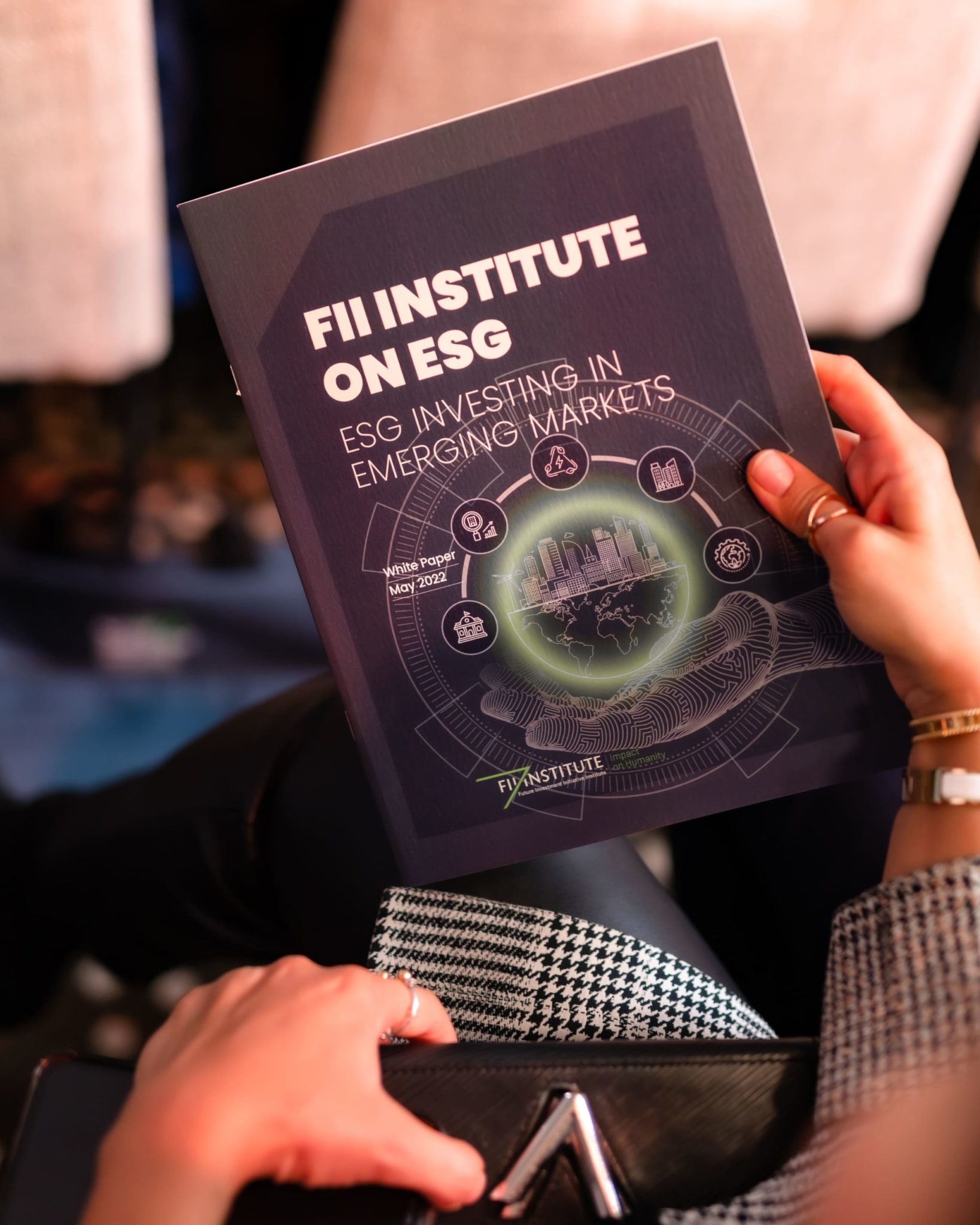
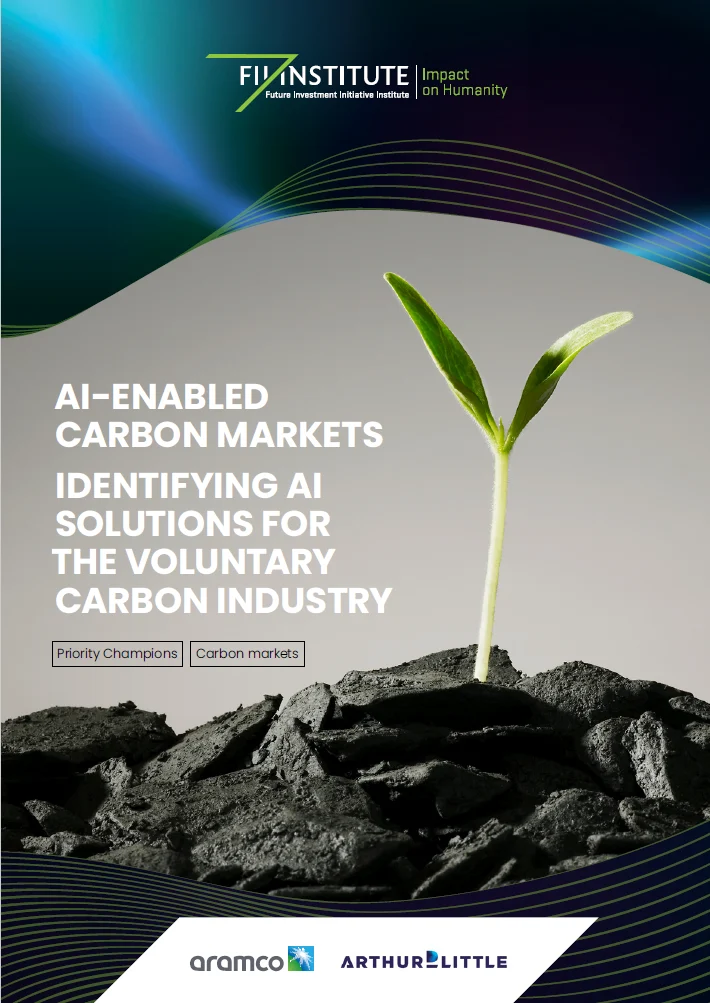
AI Enabled Carbon Markets: As the world grapples with climate change, the urgency for innovative solutions to reduce carbon emissions has never been greater. Our latest report delves into the transformative potential of AI in carbon markets, revealing how it can enhance transparency, combat greenwashing, and optimize pricing strategies.
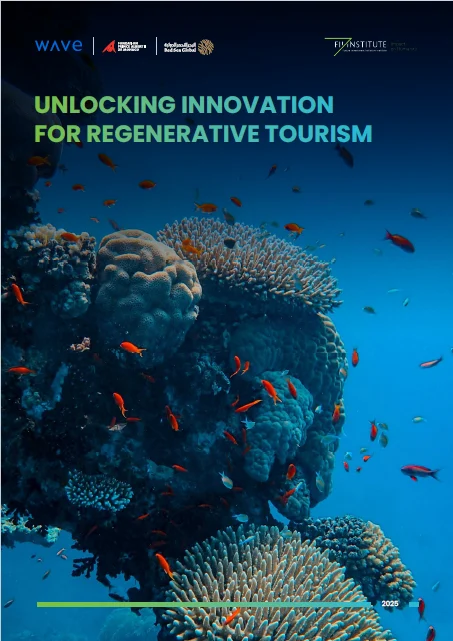
Regenerative tourism is positioned at the intersection of economic growth, nature conservation, and community resilience, with 50% of global tourism being coastal. While hospitality leaders recognize the market's potential, many express the need for more data and clarity to confidently engage in this evolving landscape. The report uncovers real-world case studies and corporate use cases that showcase successful regenerative practices, yet highlights significant barriers to widespread adoption. Curious about how regenerative tourism can reshape the future of travel and investment? Discover the insights, challenges, and opportunities that could redefine your understanding of sustainable tourism in this comprehensive report.
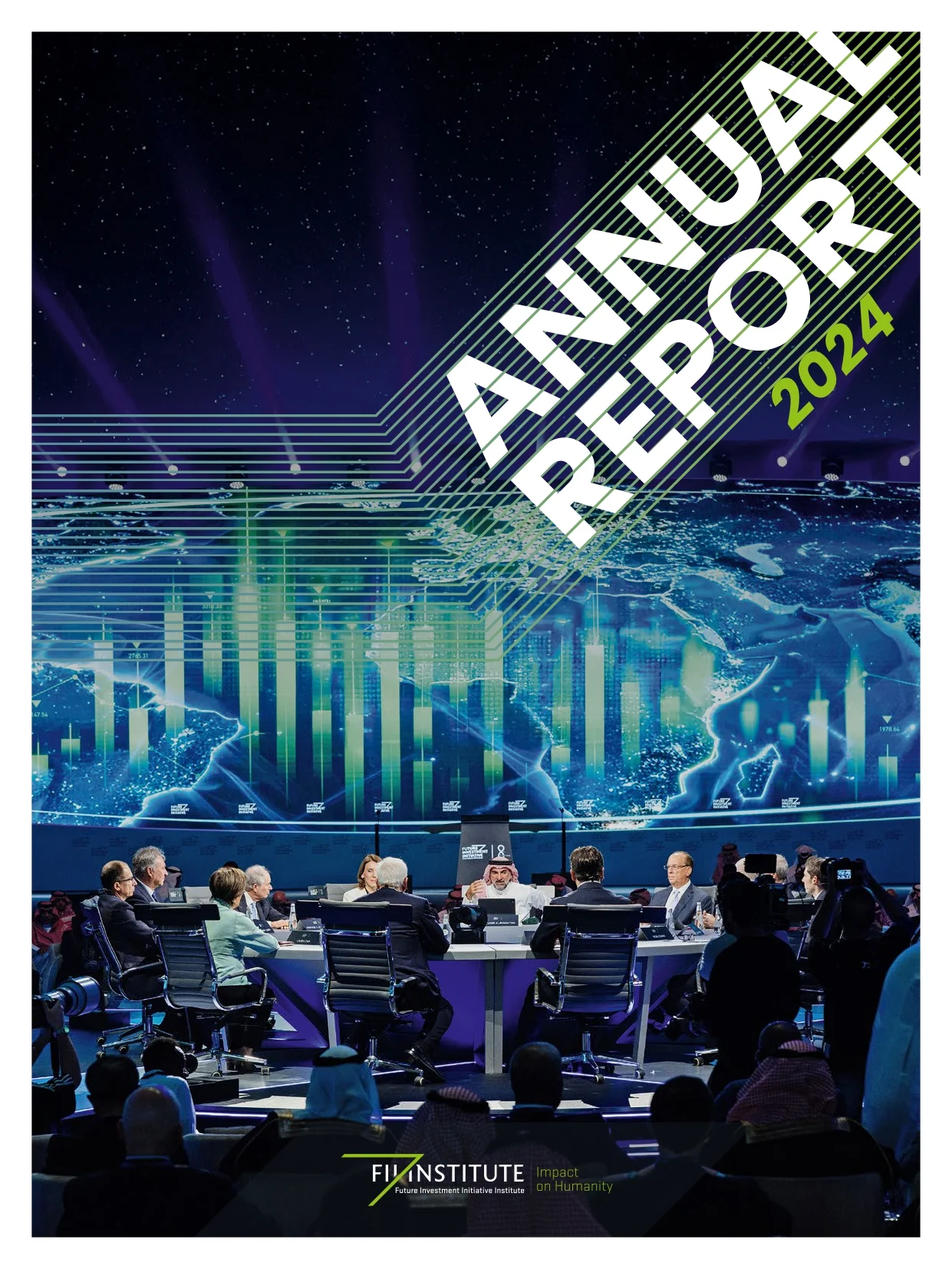
The FII Institute's Annual Report 2024 highlights its unwavering commitment to creating a sustainable future through impactful initiatives.
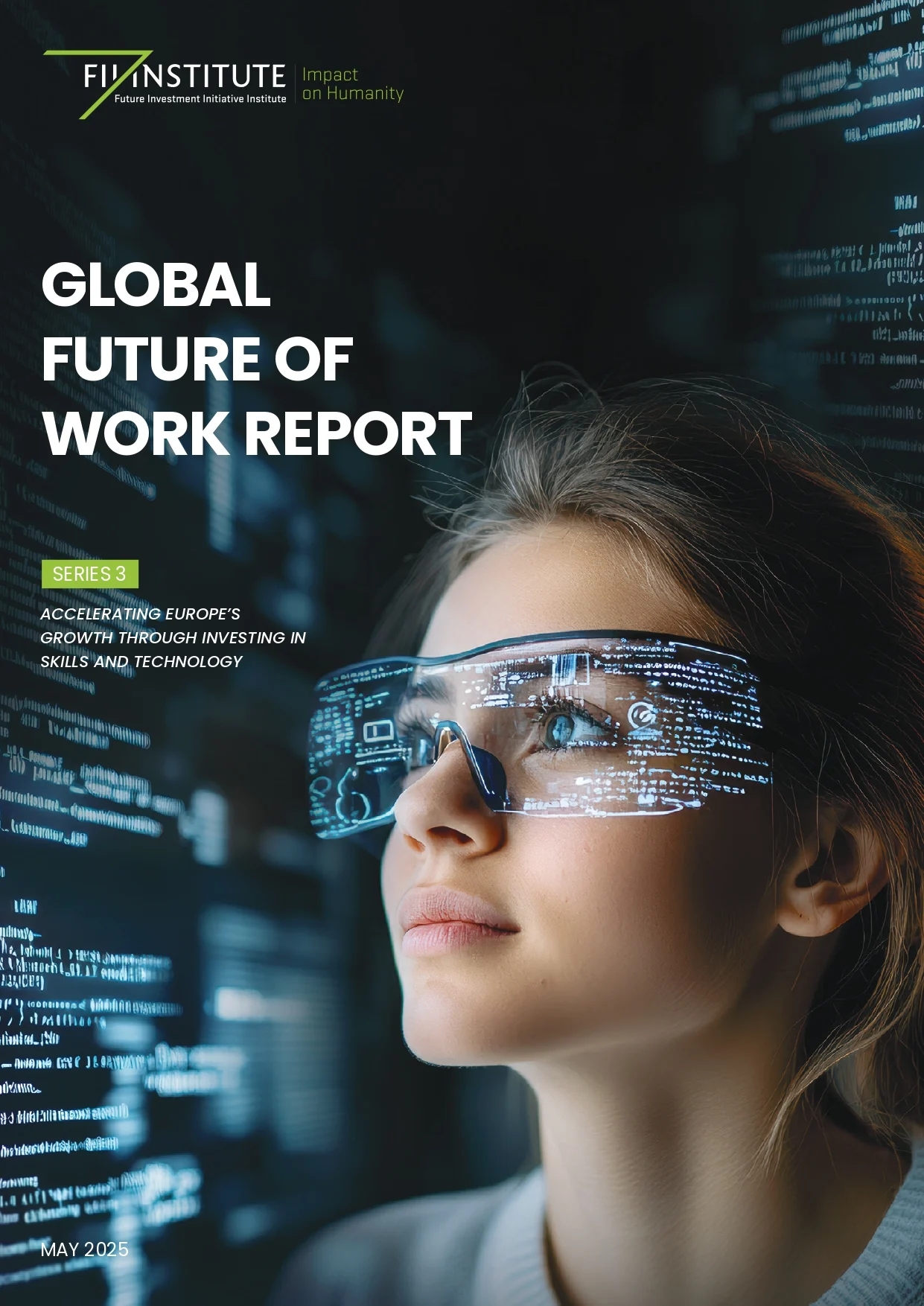
The FII Institute proudly announces the launch of the third edition of the Global Future of Work Report in the special edition of the FII PRIORITY Europe Summit. This third edition delves into the labor markets of Europe, encompassing the 27 EU member states and Norway, while exploring the influence of advanced technologies on the future of work. The report highlights key challenges in technology adoption, emerging skills demands, and the need for adaptable education systems, providing actionable insights to foster growth and develop future-ready labor markets.
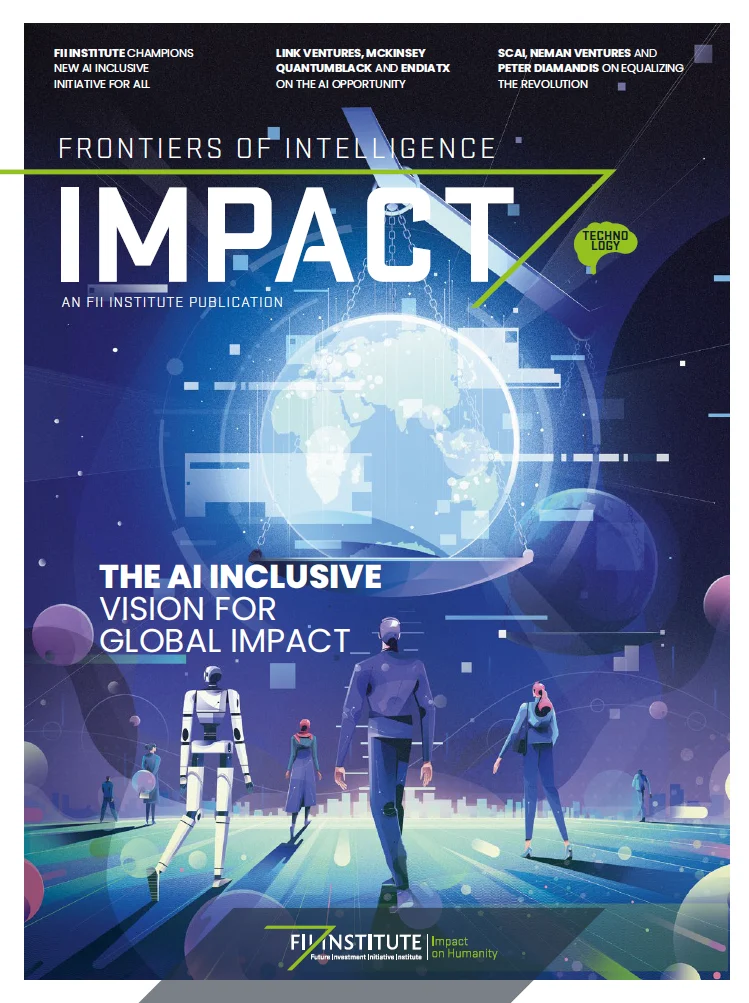
The FII Institute's latest impact report emphasizes the importance of inclusivity in the AI revolution, advocating for equitable benefits across all levels of society. It outlines the AI Inclusive initiative, which aims to address societal challenges through collaboration, innovation, and knowledge exchange. The report highlights the potential of AI to drive economic growth and social impact, particularly in emerging markets, while stressing the moral imperative of ensuring that advancements in technology do not leave any community behind.
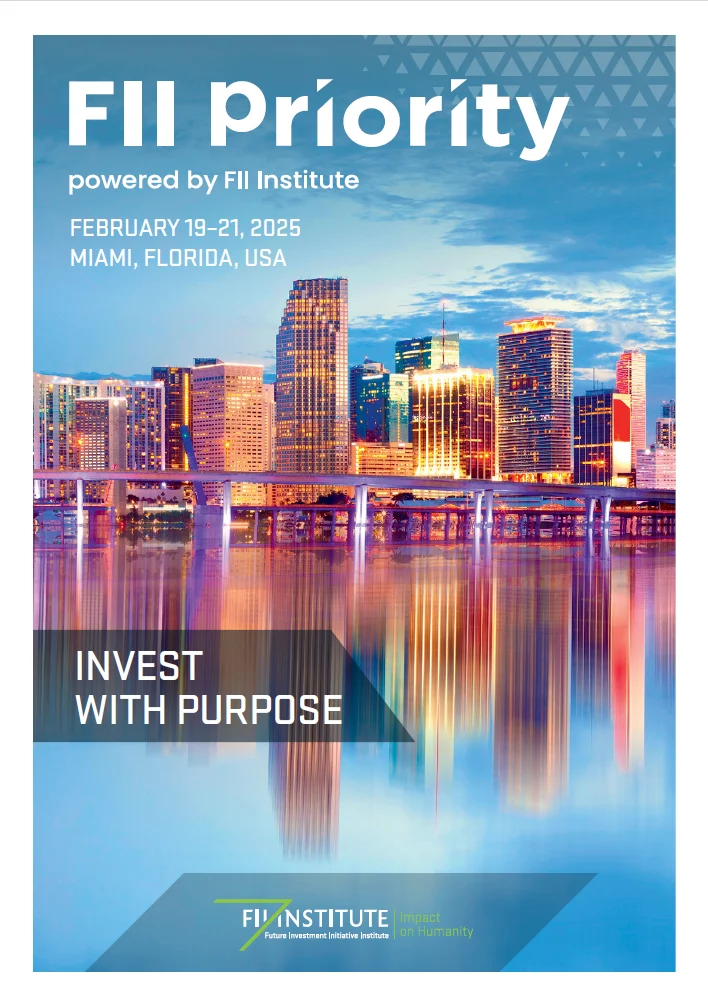
The FII PRIORITY Miami Summit 2025 marked a transformative moment in global economic collaboration, featuring key discussions on artificial intelligence, sustainable investment, and geopolitical shifts.
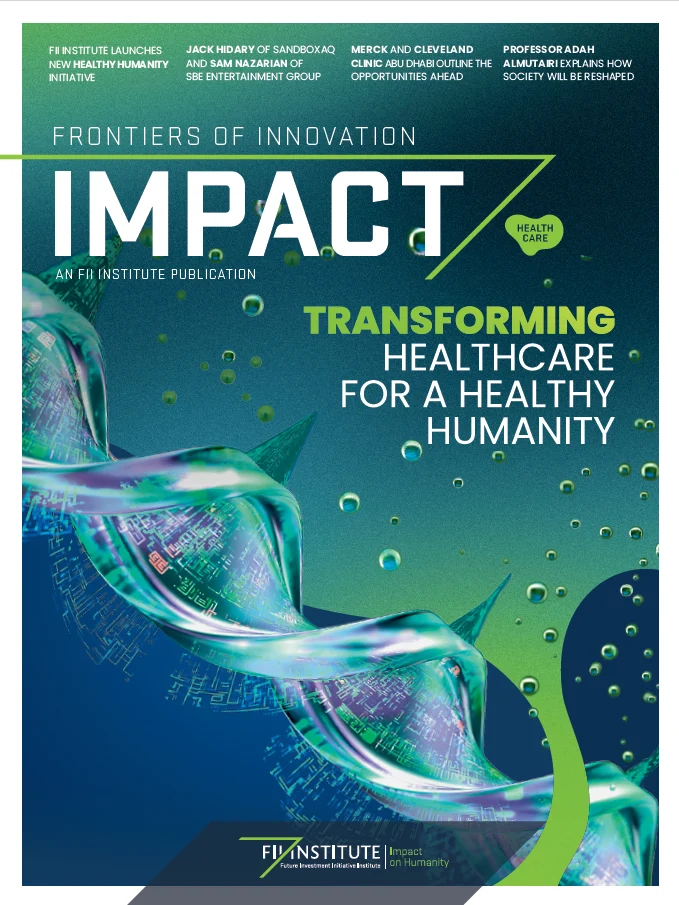
The FII Institute's Healthy Humanity initiative emphasizes the urgent need for preventive healthcare, innovation, and equity to address global health challenges. By harnessing advanced technologies like AI and quantum computing, the initiative aims to enhance early disease detection, improve access to diagnostics, and promote healthier lifestyles, ultimately benefiting economies and societies.
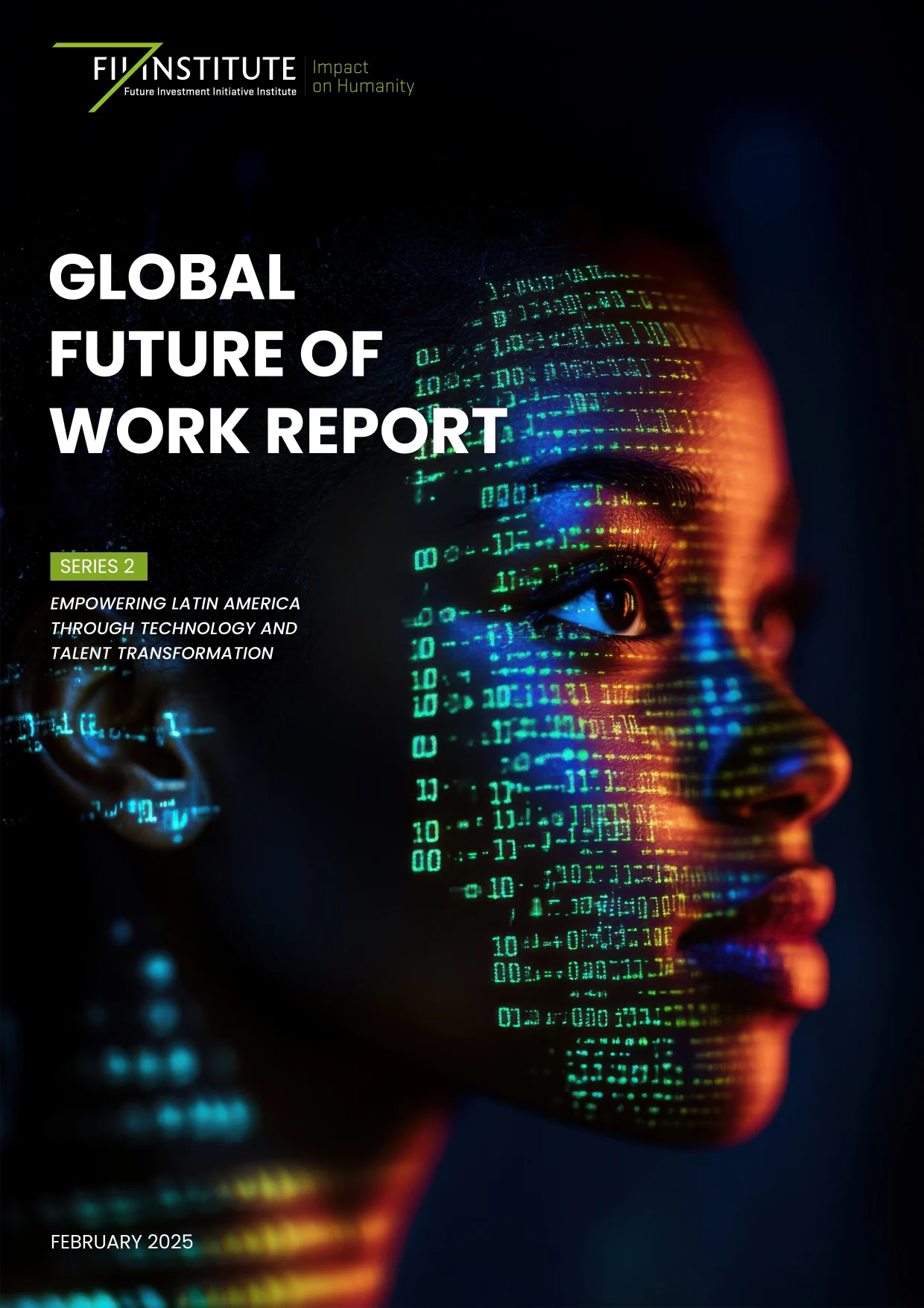
The Global Future of Work Report | Series 2 provides an in-depth analysis of 19 Latin American and Caribbean countries, alongside the United States and Canada. Drawing from primary research across six Latin American nations, the U.S., and Canada, the report highlights Latin America’s declining economic momentum and widening productivity and human capital gaps compared to its northern neighbors.
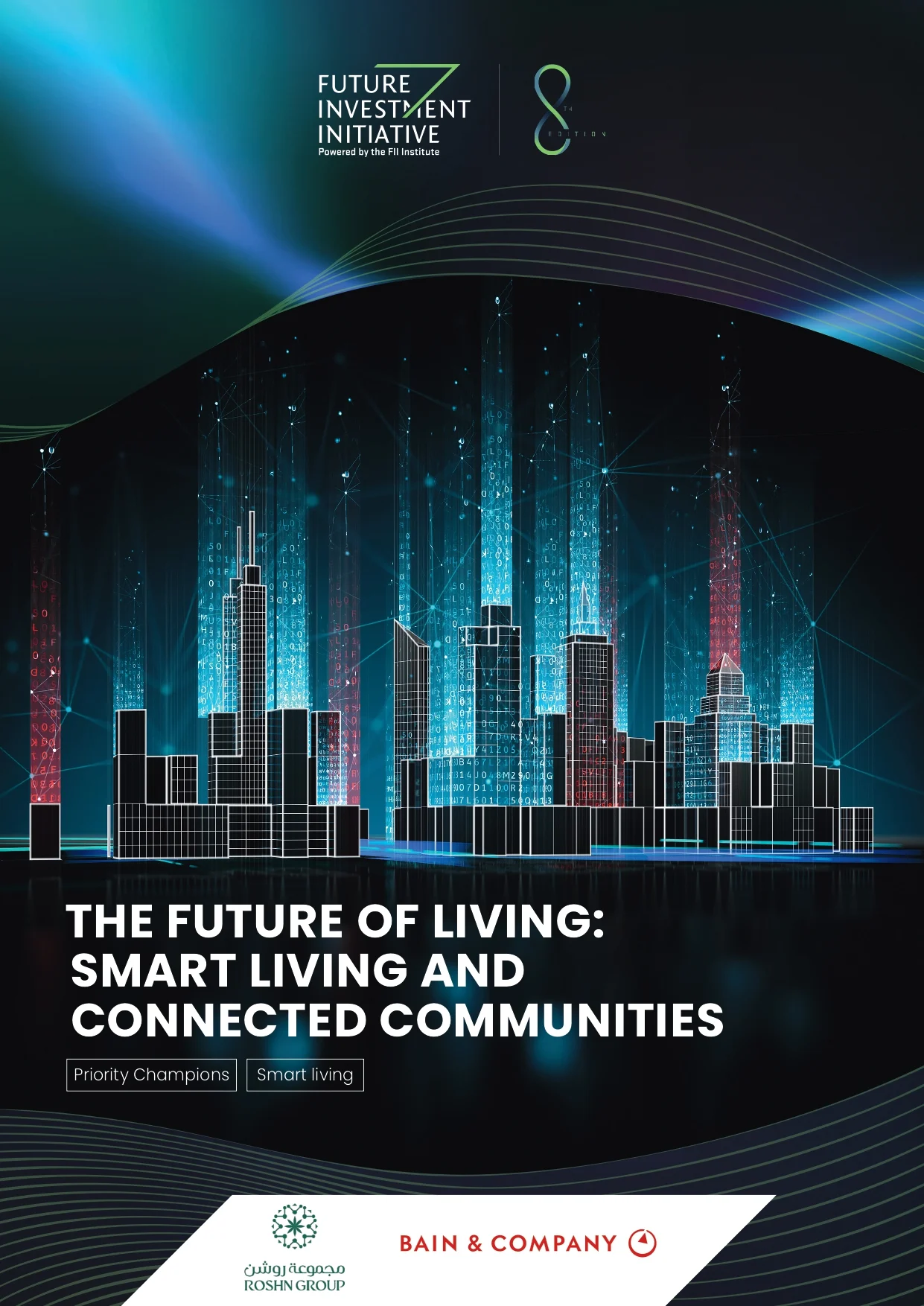
This priority champion publication in collaboration with Roshn Group and Bain & Company delves into the transformative potential of smart living and connected communities, highlighting the integration of advanced technologies to enhance comfort, efficiency, and sustainability. It addresses current industry challenges and behavioral trends, offering strategic insights to accelerate the adoption of innovative solutions. By exploring case studies and frameworks, this work sheds light on the future of urban living, emphasizing the importance of human-centric design and community engagement in creating sustainable environments.
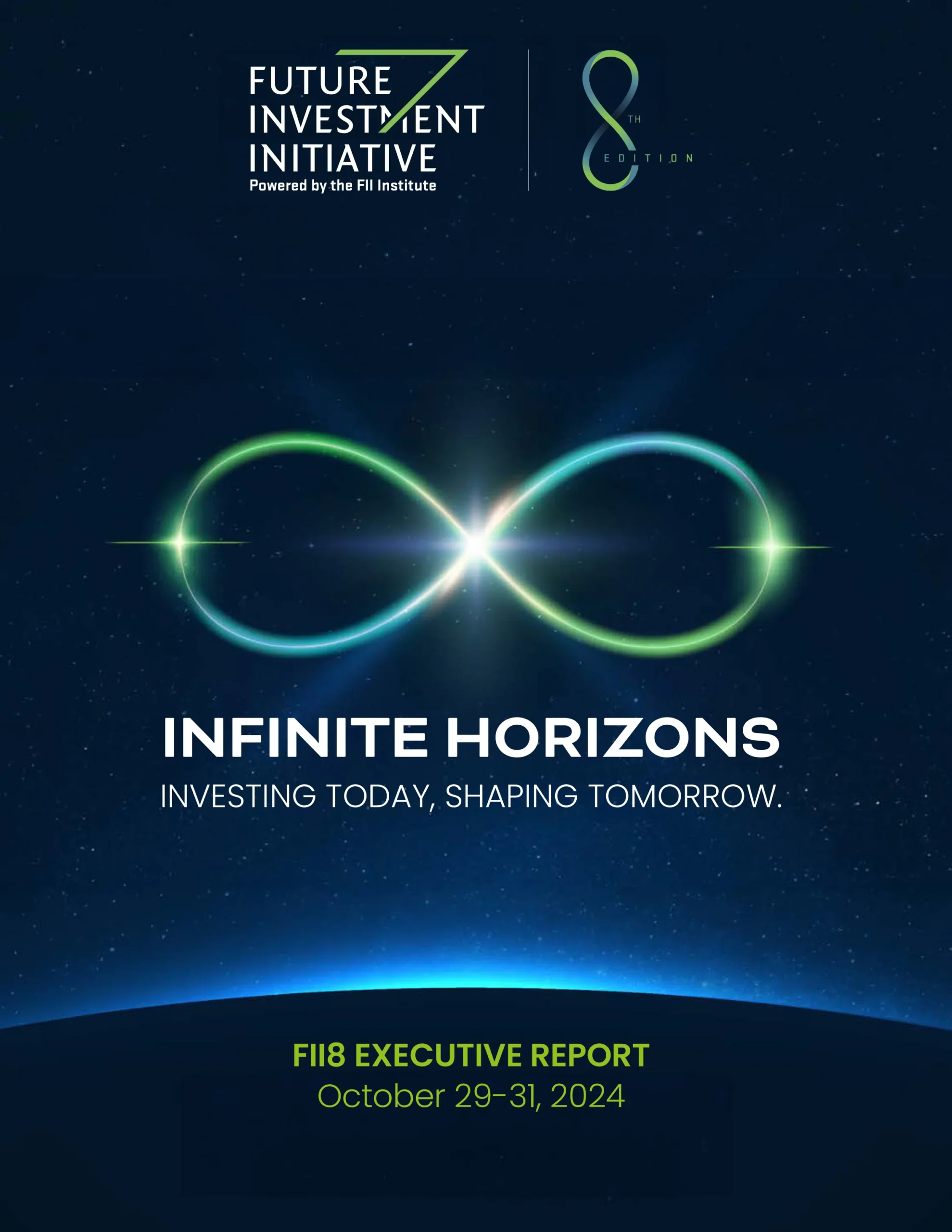
FII8 Post Event Report: Explore key insights, highlights, and takeaways from FII8 in our post-event report—featuring influential speakers, groundbreaking discussions, and the future of global investment.

The priority champion report in partnership with WAVE, Prince Albert II Of Monaco Foundation and Red Sea Global outlines the critical role of oceans in sustainable economic growth, emphasizing their potential to generate renewable energy, ensure food security, and create millions of jobs. It highlights the urgent need to address anthropogenic stressors like overfishing and […]

Industry 5.0 marks a shift beyond technological adoption, focusing on individual empowerment, human-centricity, personalization, decentralization, resilience, sustainability and transparency. The priority champion report in partnership with Franklin Templeton and Oliver Wyman discusses the transition to Industry 5.0, emphasizing individual empowerment, human-centricity, and sustainability, while highlighting the evolution of investment management through technological advancements and decentralized […]

The report in partnership with Kearney highlights the critical role of Public-Private Partnerships (PPPs) in addressing urban challenges such as resource constraints, social inequality, and climate change.
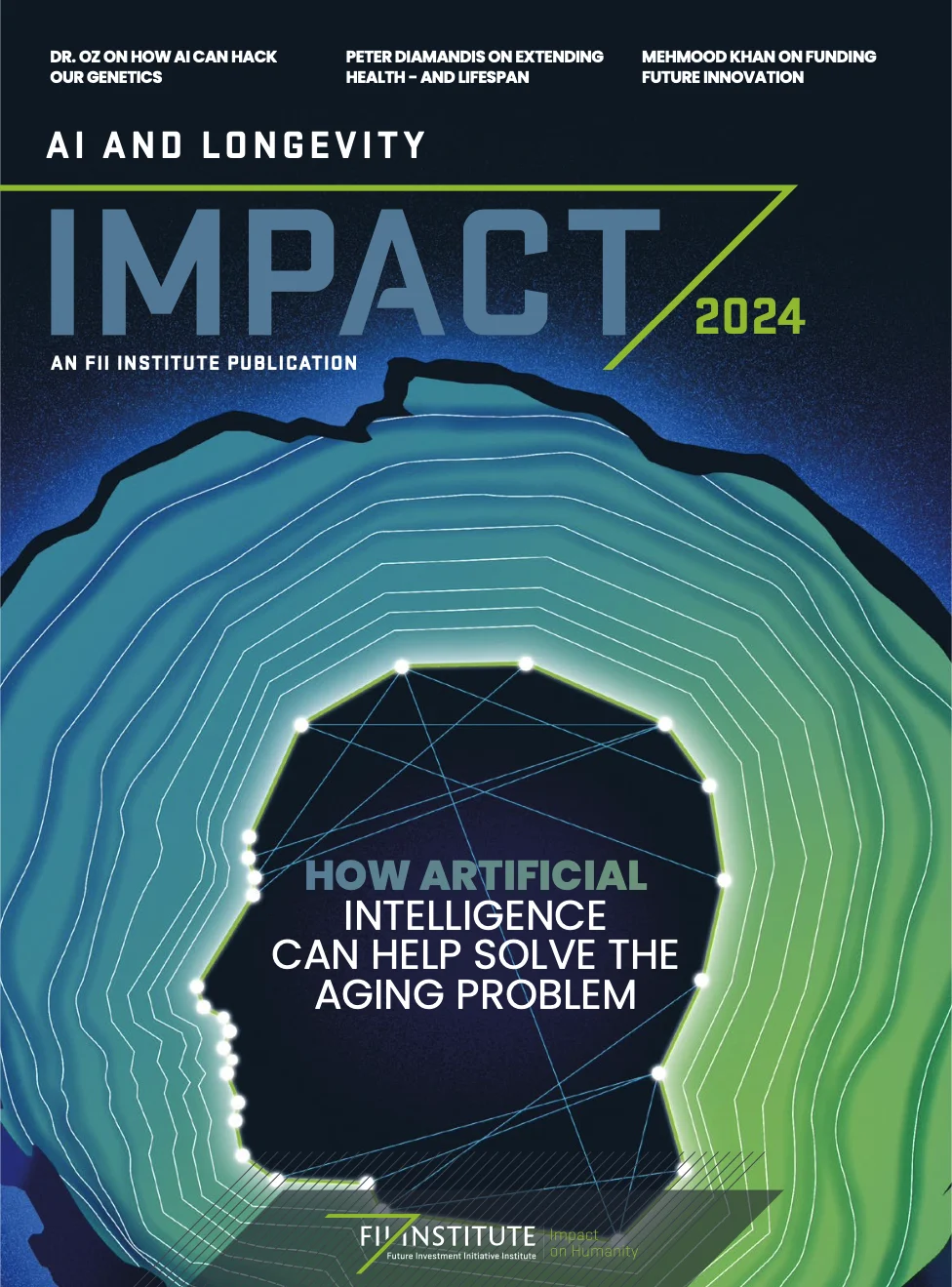
The AI & Longevity Impact report highlights the transformative role of AI in healthcare, emphasizing its potential to enhance drug discovery, personalize medical treatments, and improve understanding of complex biological systems.
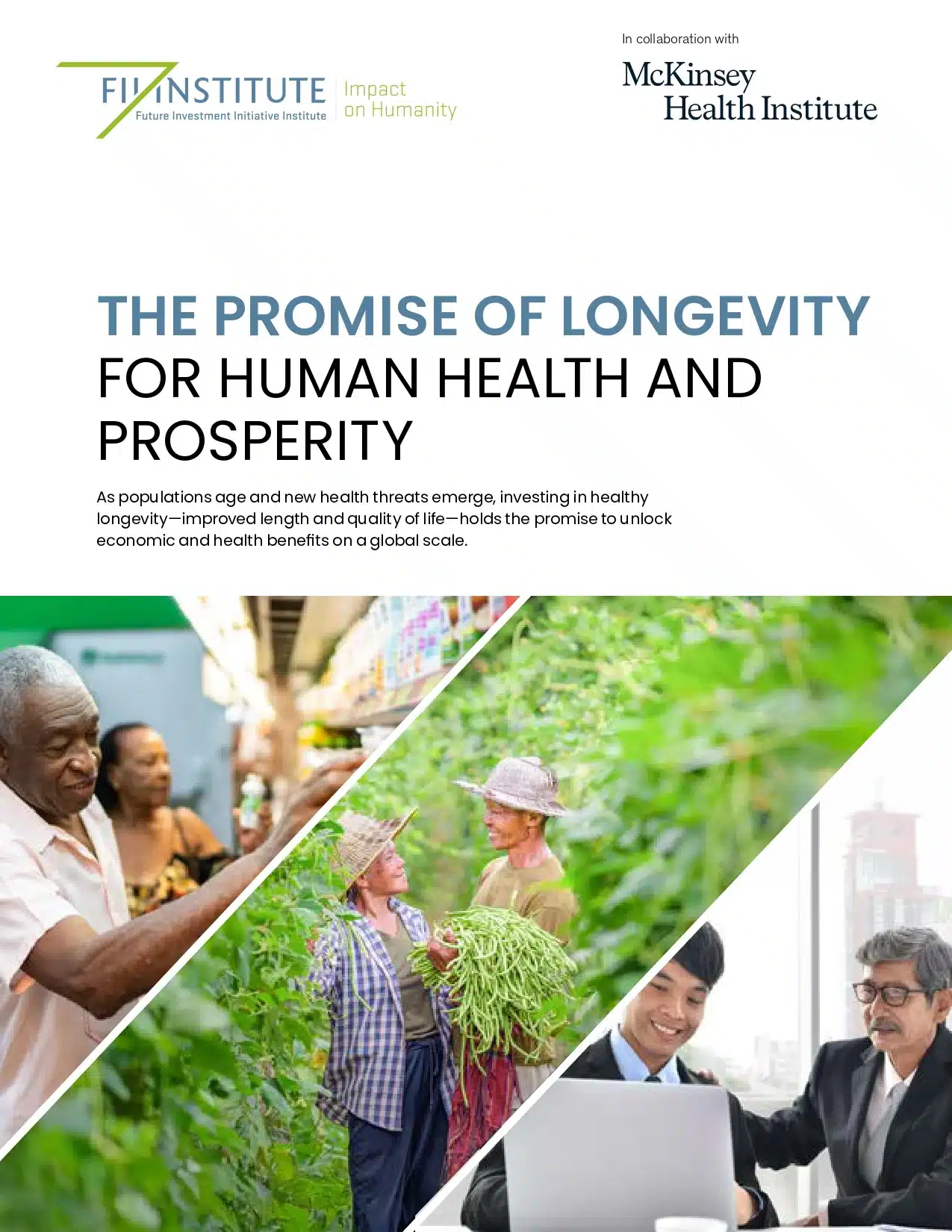
The FII Healthy Longevity Compass, by FII Institute in collaboration with McKinsey Health Institute (MHI), explores how strategic investments in longevity would enhance quality of life, stimulate economic growth, and promote a more equitable society.
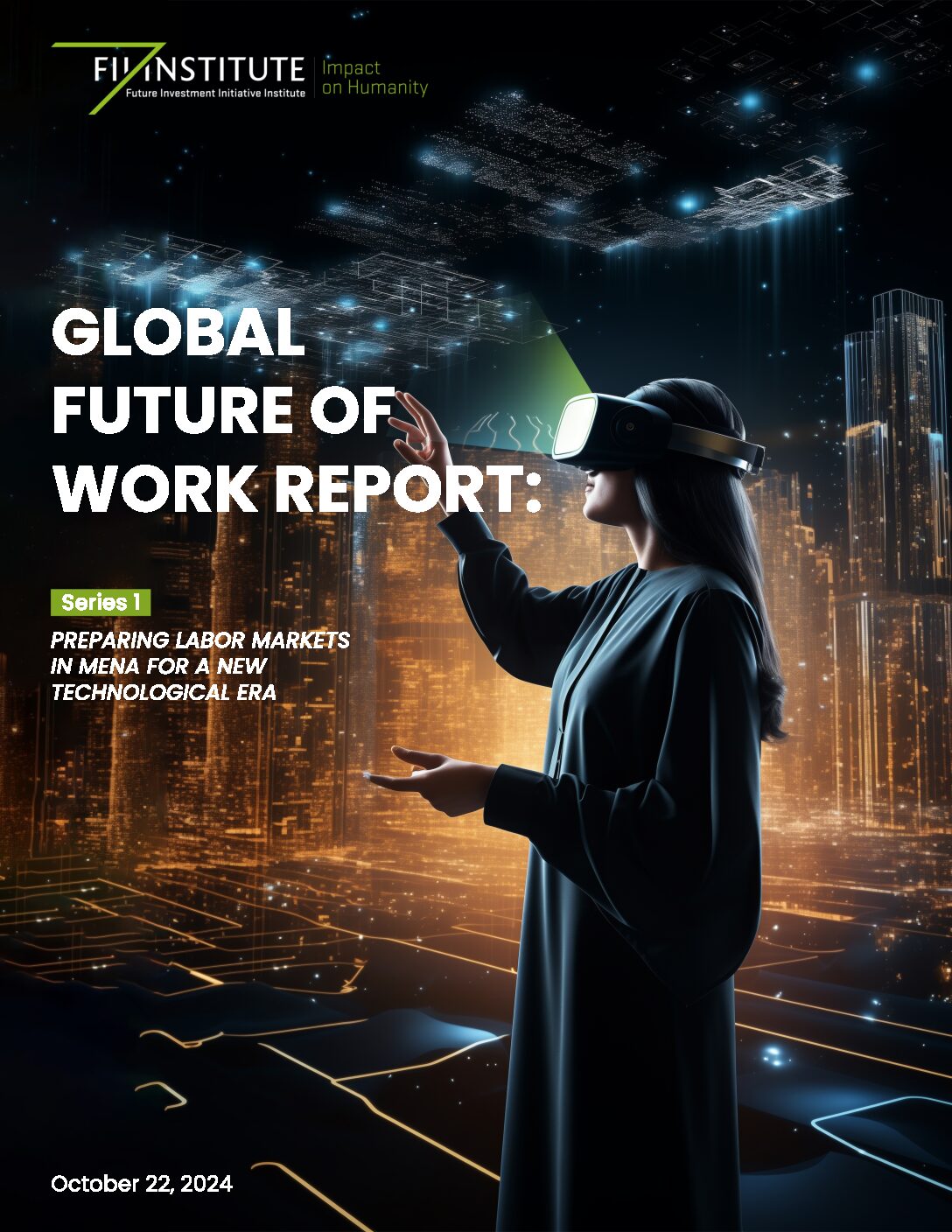
FII Institute announced its Global Future of Work Compass which aims to identify the risks and opportunities faced by companies around the globe. As a first phase, a survey was conducted across 9 MENA countries to assess the region's technological readiness.
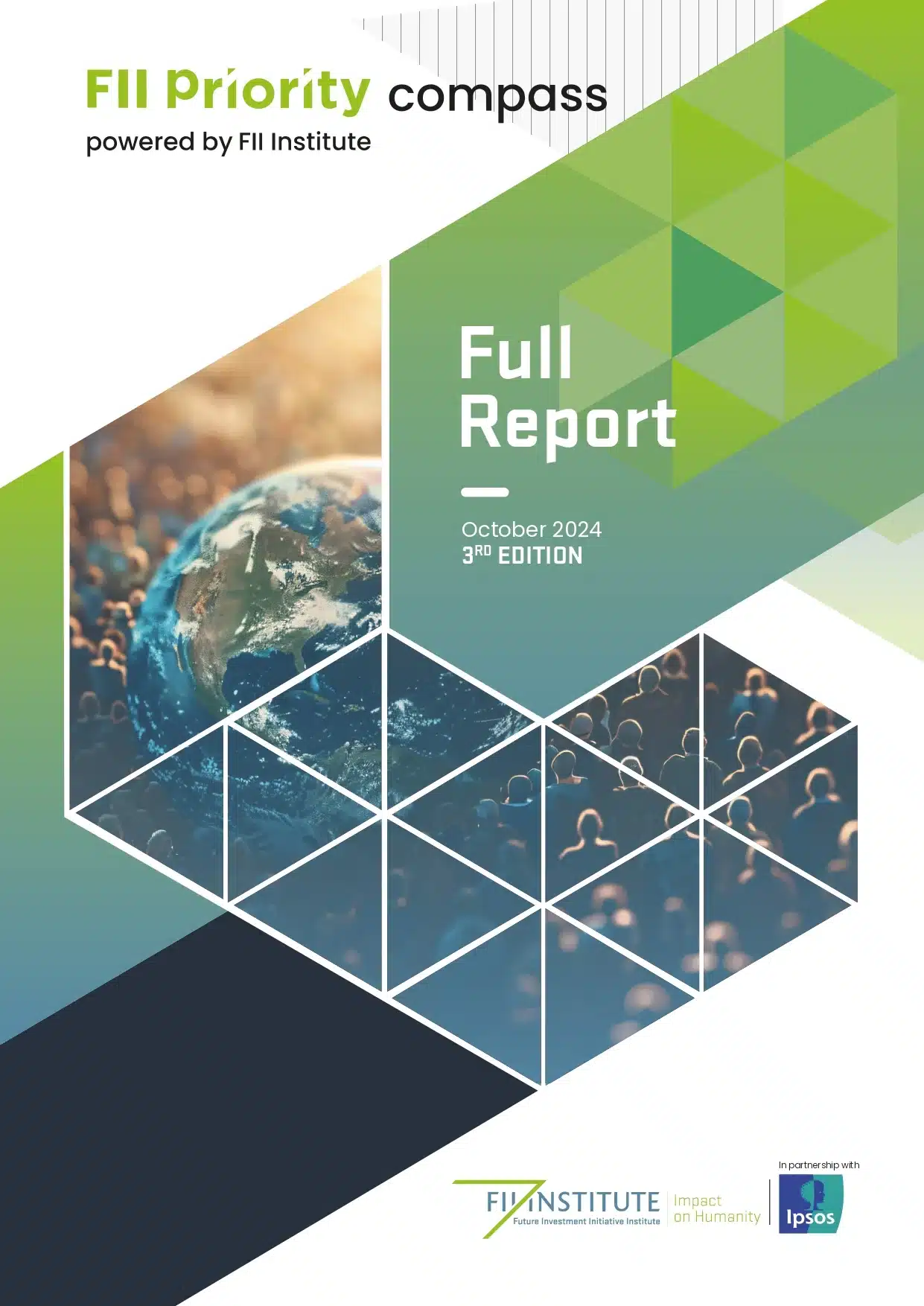
FII Institute revealed the third edition of its FII PRIORITY Compass to deep dive into humanity’s top priorities in 2024. In partnership with Ipsos, FII Institute surveyed 50,000+ respondents in 24 countries representing 62.5% of the global population. For the third year in a row, FII Institute uncovers global citizens’ concerns and provides original data to help world leaders and decision makers set the way to concrete solutions. Download the FII PRIORITY Compass 2024 report and explore key insights on global citizens priorities on: https://fiiprioritycompass.org/
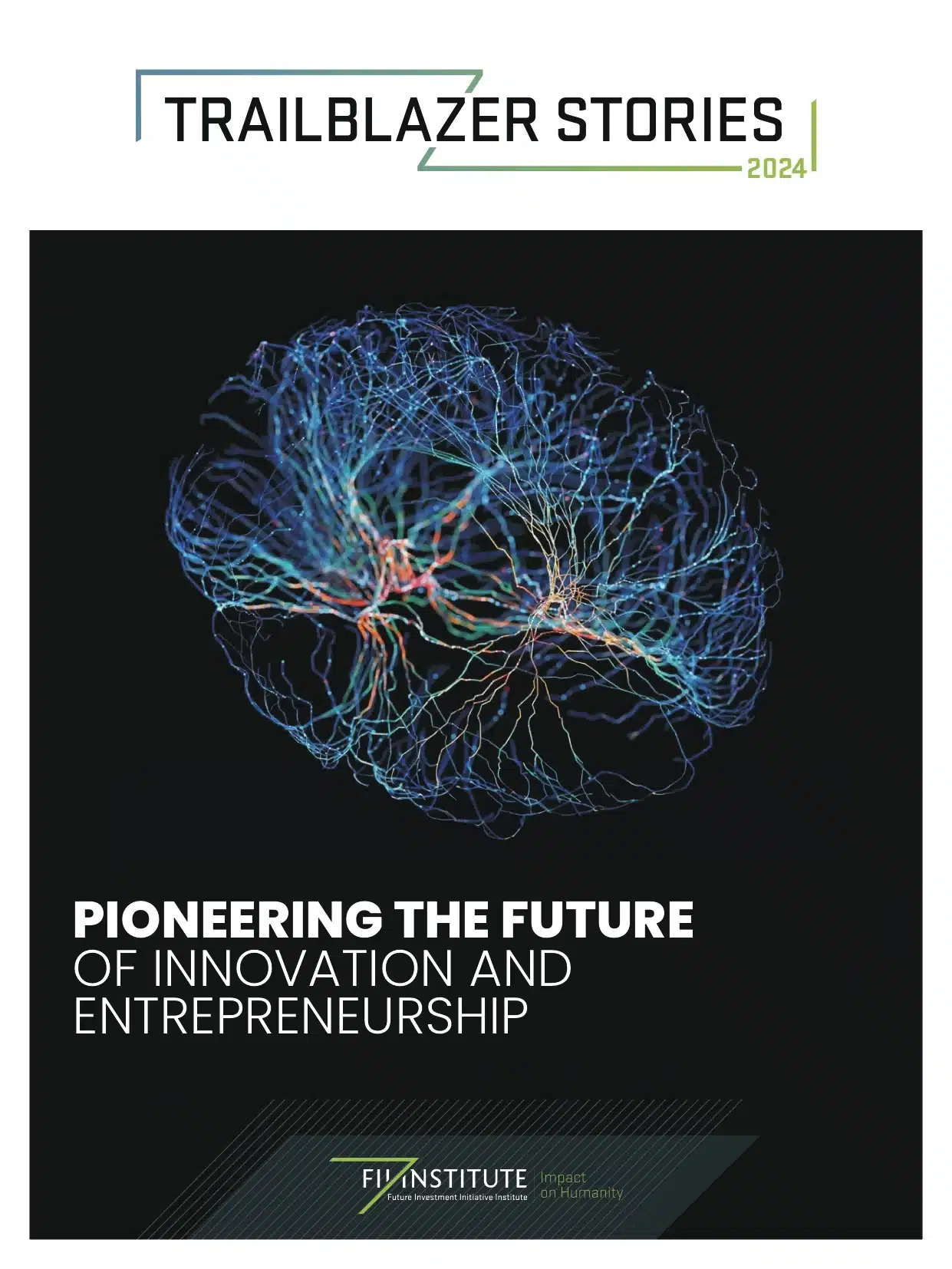
Discover the groundbreaking "Trailblazer Stories" publication, where visionary startups are reshaping our world by tackling some of the most pressing global challenges.
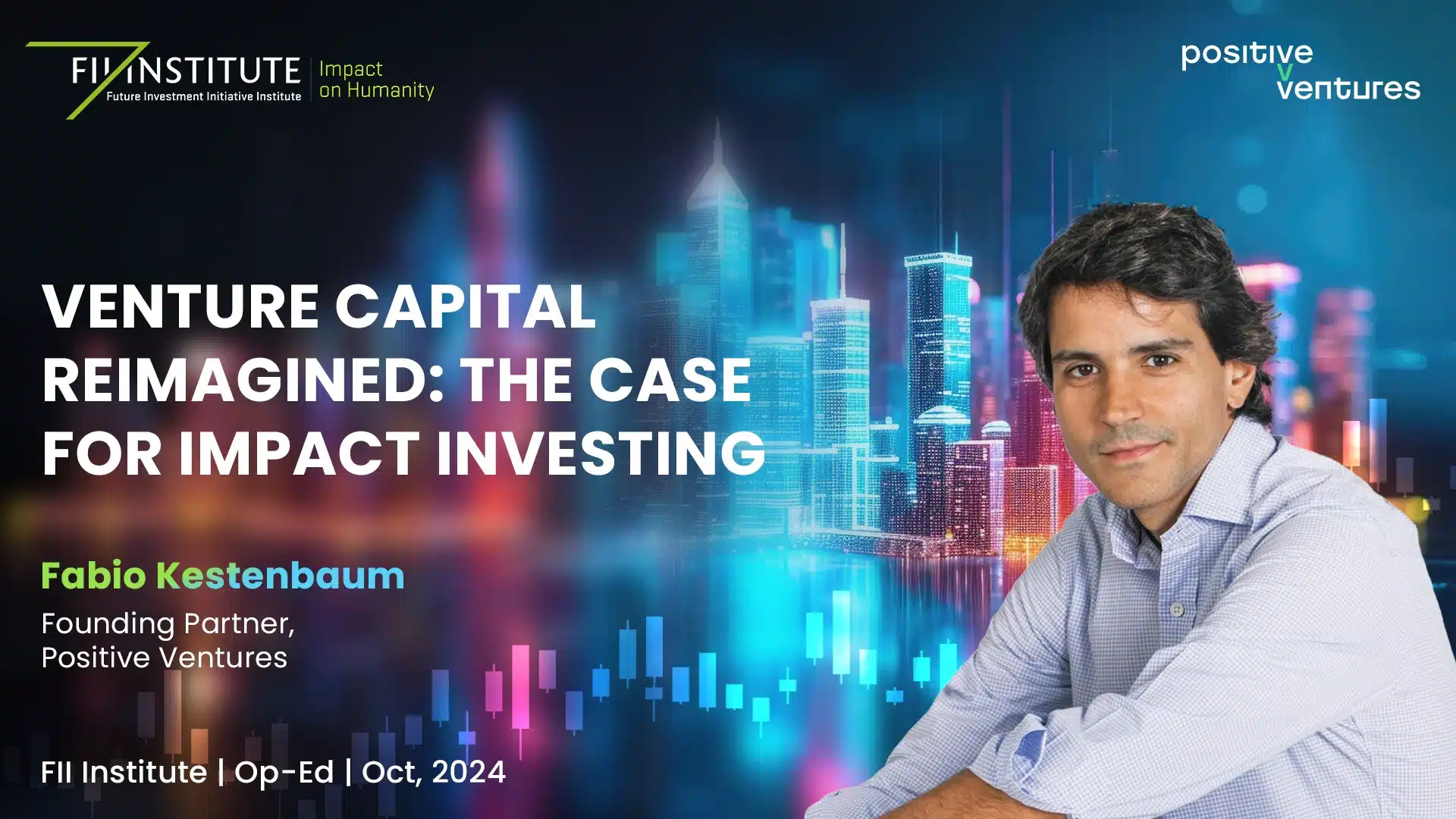
Discover how Positive Ventures, led by Founding Partner Fabio Kestenbaum, is revolutionizing venture capital through impact investing.
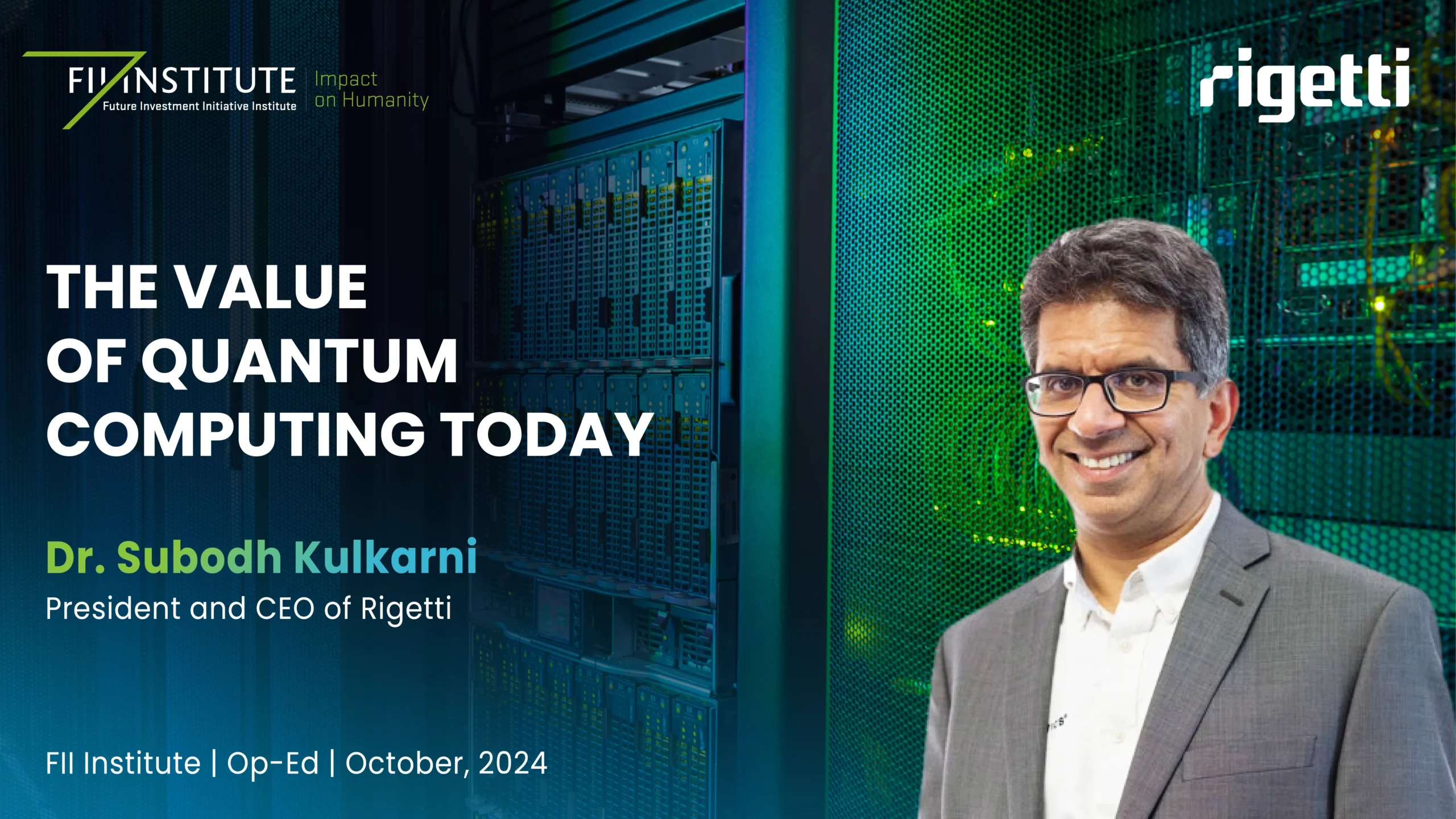
The oped piece sheds light on the urgent need for investment in quantum technology and workforce development, as well as the importance of collaboration between academia, government, and industry to harness quantum computing's capabilities effectively.
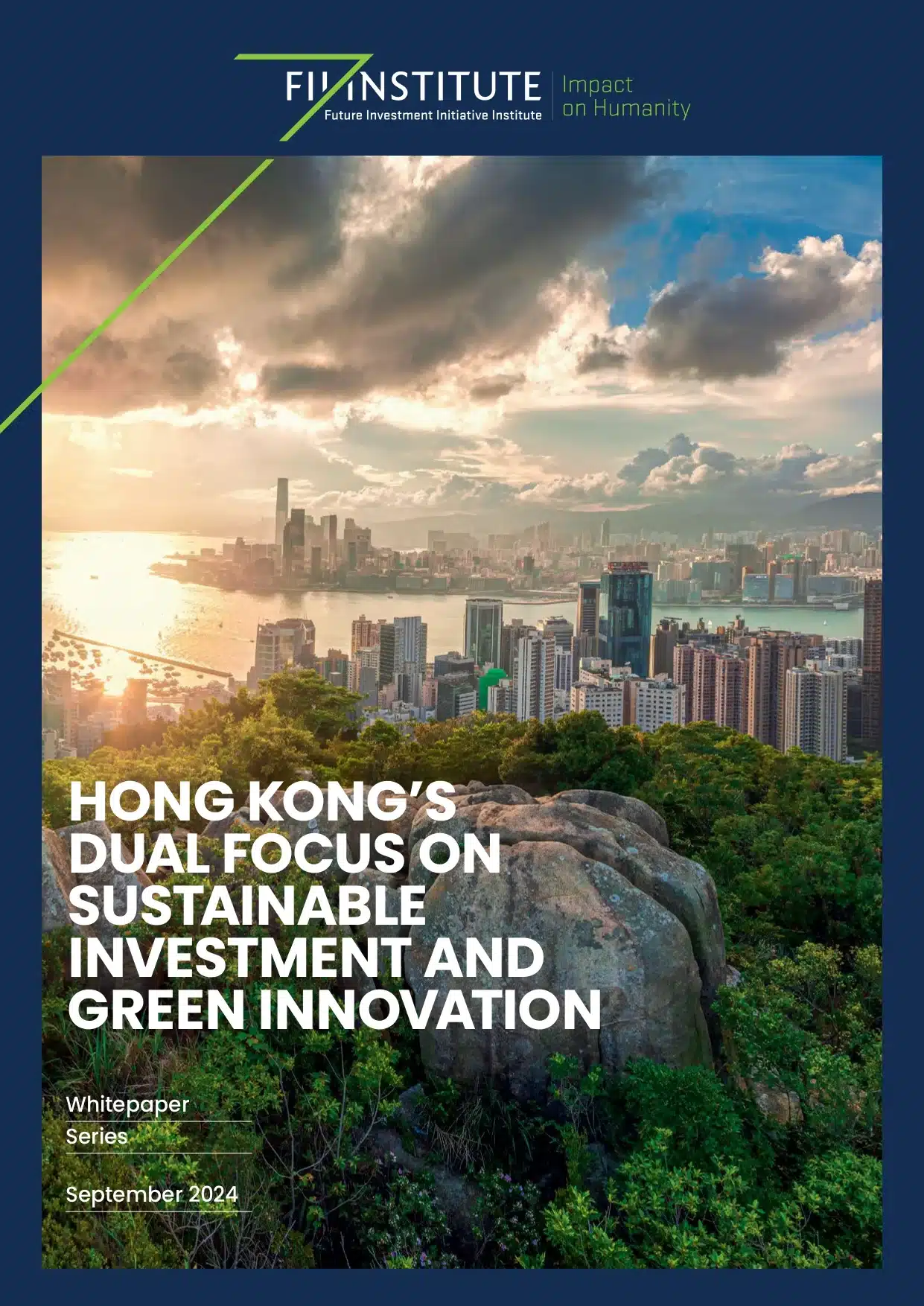
Explore our latest whitepaper, "Hong Kong’s Dual Focus on Sustainable Investment and Green Innovation," which highlights the city's robust efforts in enhancing its green finance ecosystem.
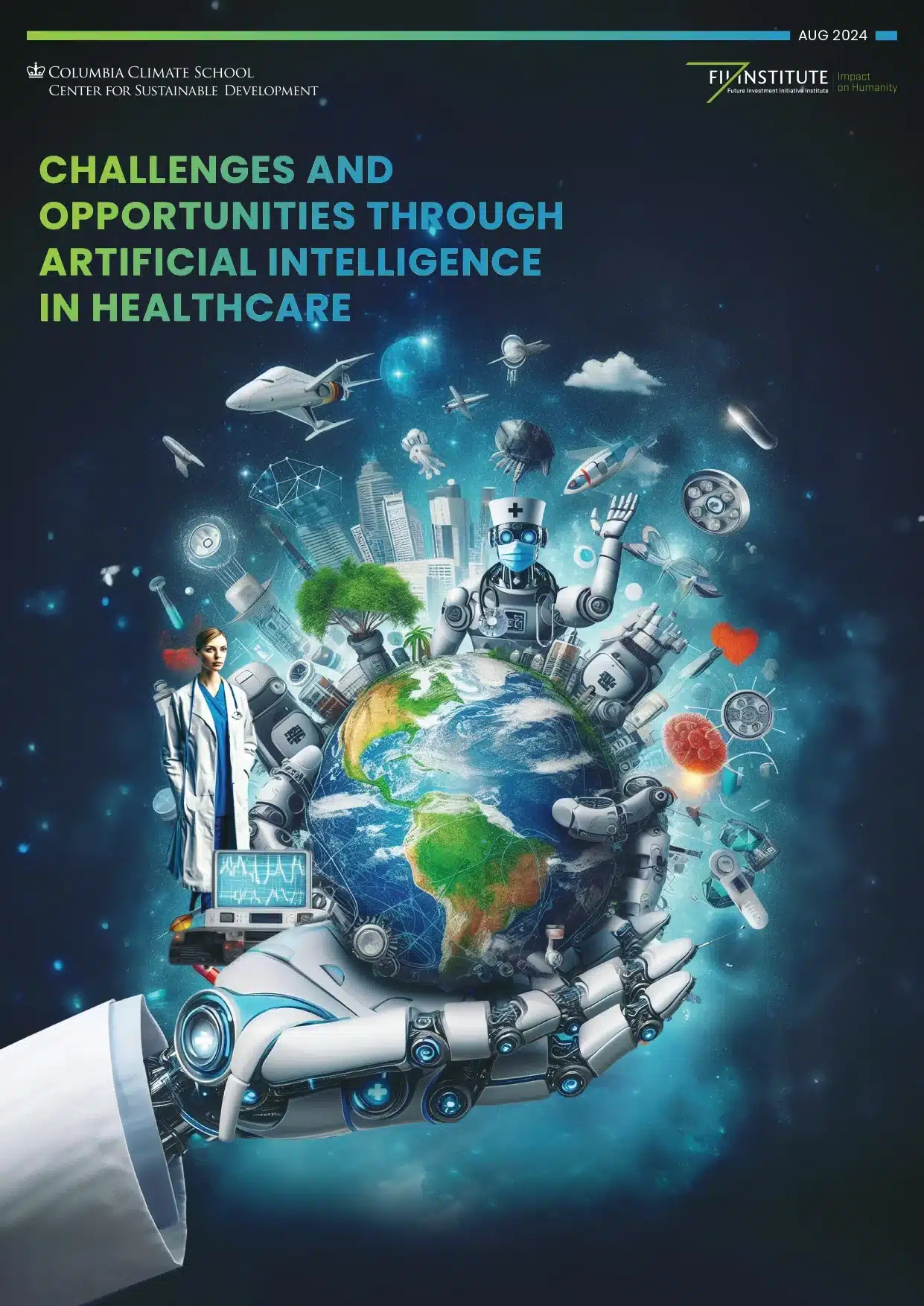
It explores the transformative impact of Artificial Intelligence (AI) in healthcare. The publication delves into the opportunities AI presents for improving diagnostics, personalizing treatments, and enhancing operational efficiency, while also addressing challenges such as workforce shortages, rising costs, and ethical concerns.
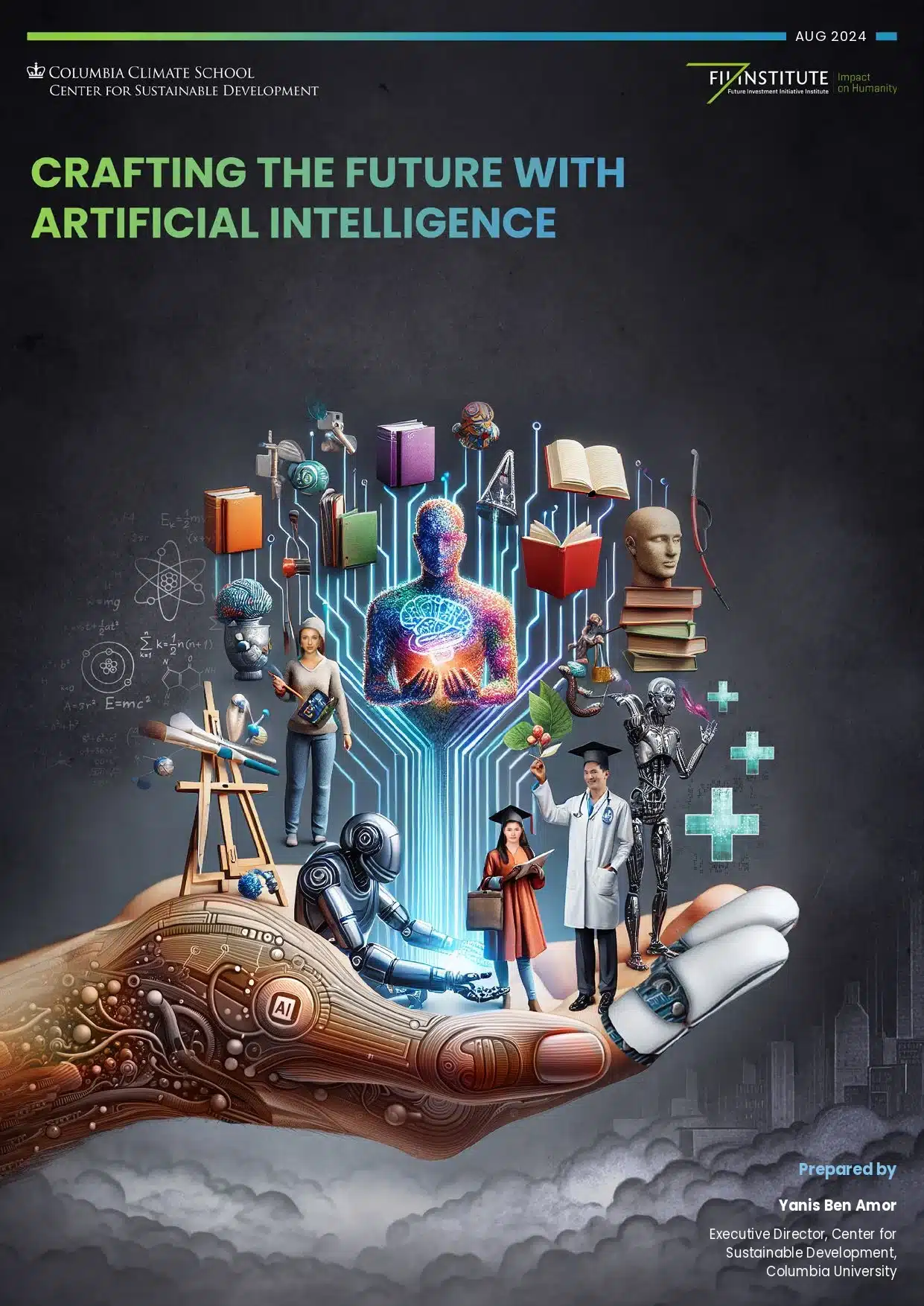
FII Institute launched the second series of publication exploring the profound implications of Artificial Intelligence (AI) in collaboration with Columbia Climate School Center for Sustainable Development on macroeconomics, healthcare, and workforce development.
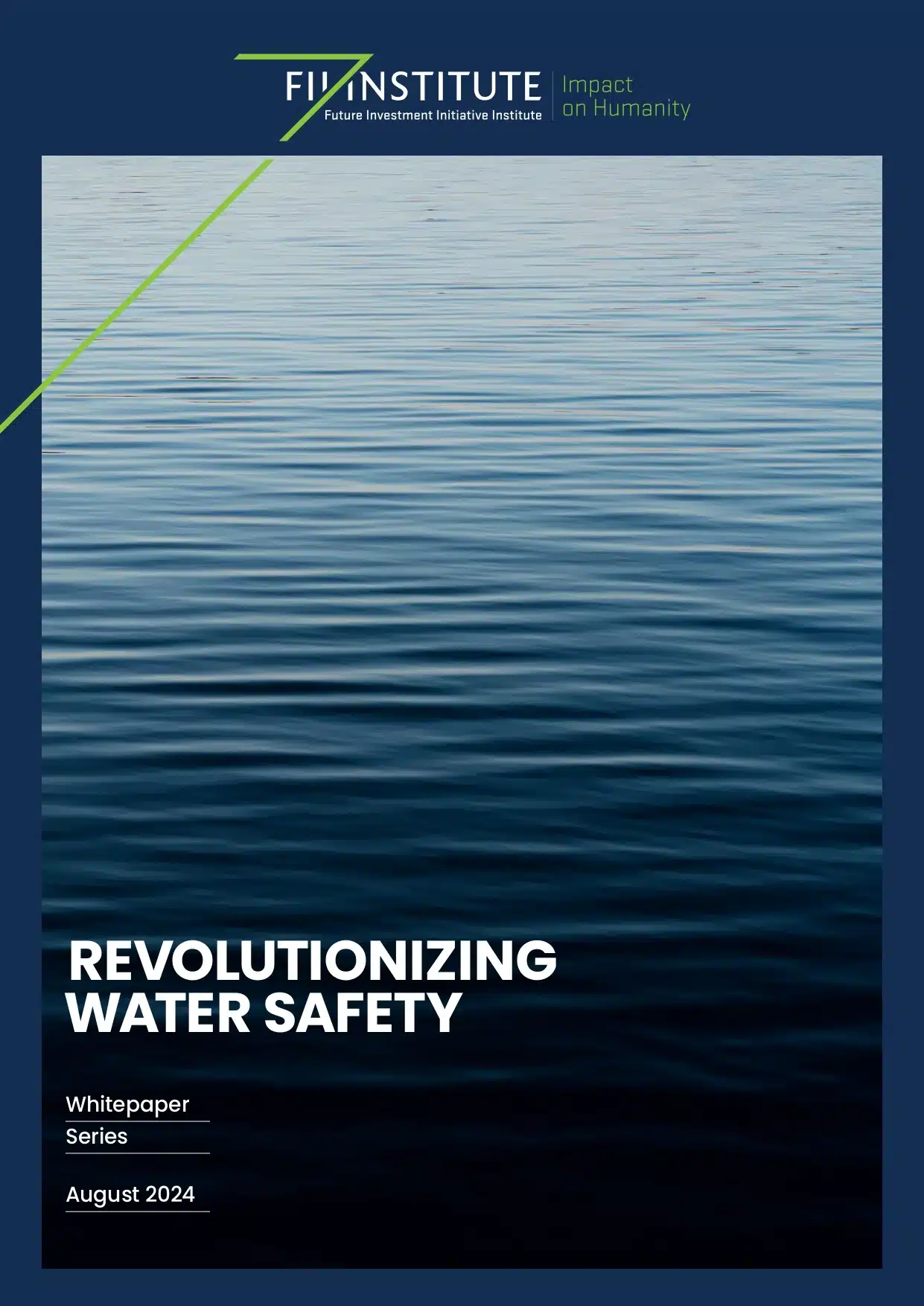
Discover the groundbreaking insights from our latest report, "Revolutionizing Water Safety," in partnership with Hydroquo+. This comprehensive analysis highlights the urgent need for innovative solutions to combat the global water crisis, focusing on the transformative potential of real-time monitoring technologies like the Autonomous Microbiological Alert Sensor (AMAS). Join us in exploring how these advancements can enhance water safety, protect public health, and ensure sustainable access to clean water for all.
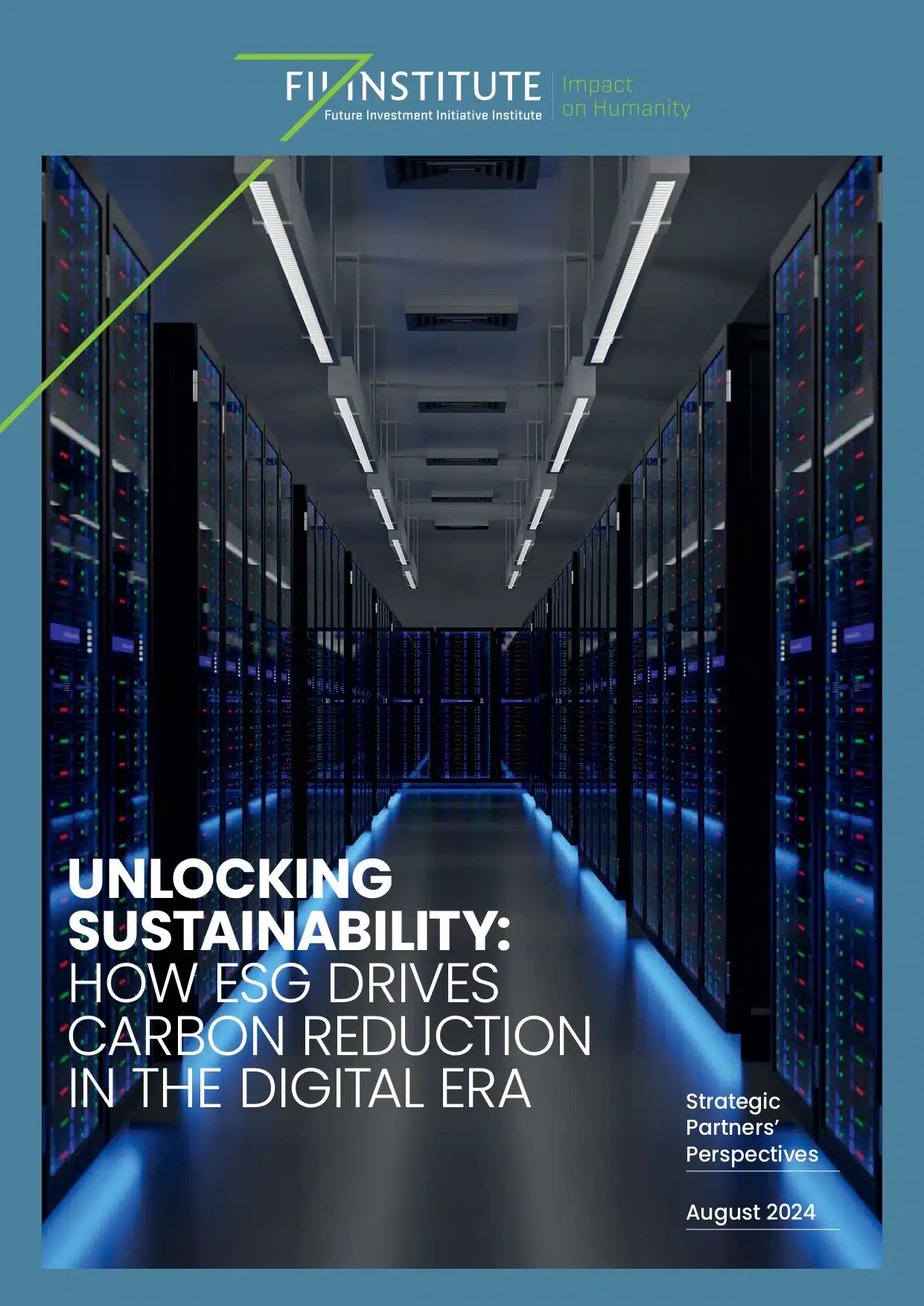
The FII Institute proudly presents its latest report in partnership with our strategic partner, THIQAH which delves into the critical intersection of digital transformation and environmental sustainability. This publication highlights the urgent need for businesses to integrate Environmental, Social, and Governance (ESG) principles into their strategies to combat the growing carbon footprint and e-waste crisis. By showcasing innovative solutions and promoting green technologies, the report aims to inspire collective action towards a sustainable future for humanity. Join us in exploring how we can harness digital advancements to create a brighter, greener world!
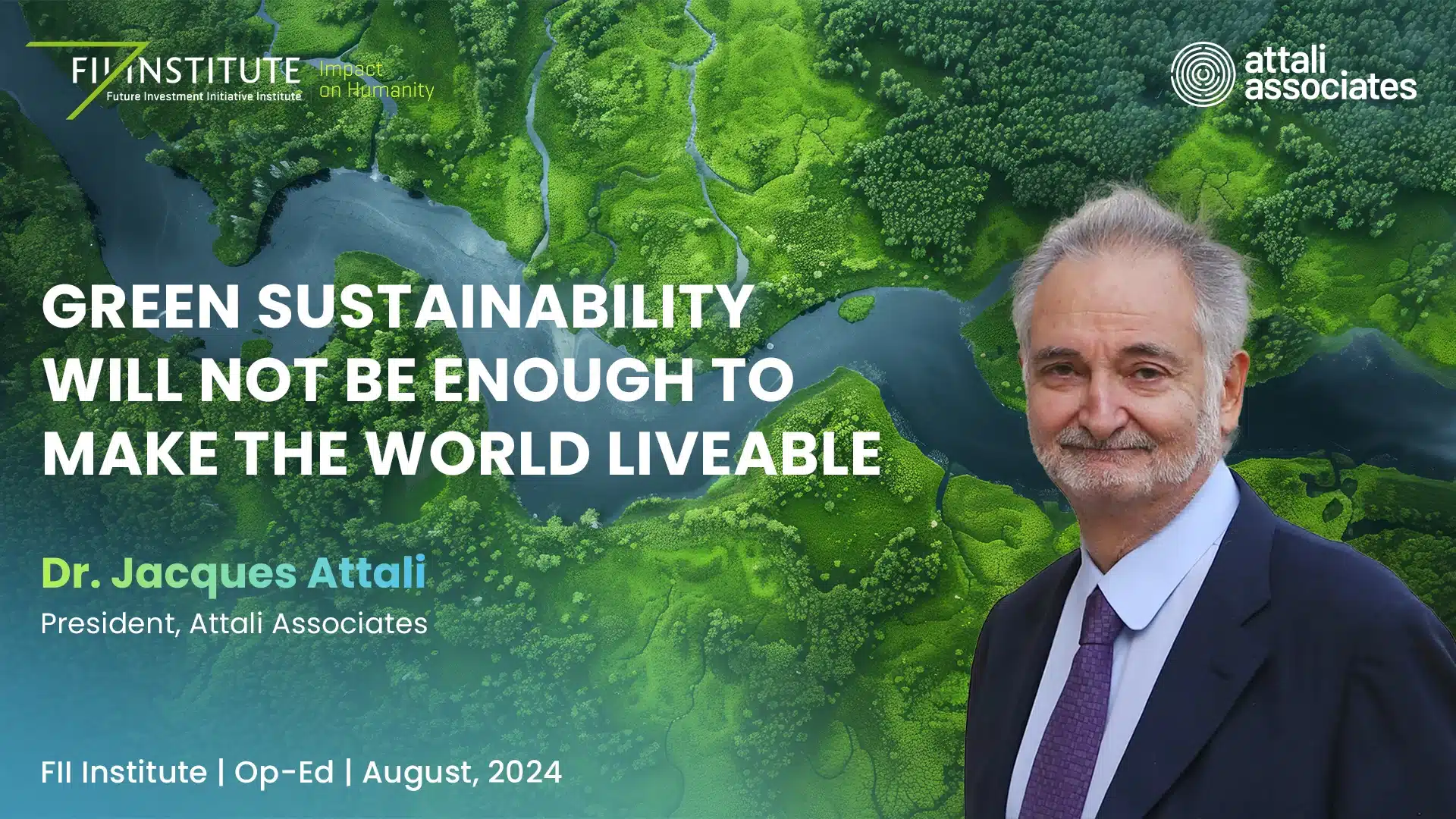
We must address the urgent reality of climate change and its dire consequences in 2050. If humanity does not achieve carbon neutrality, one-third of humanity will be living in too hot and inundated areas by then. Therefore, reaching carbon neutrality in 2050 is a goal and a necessity.
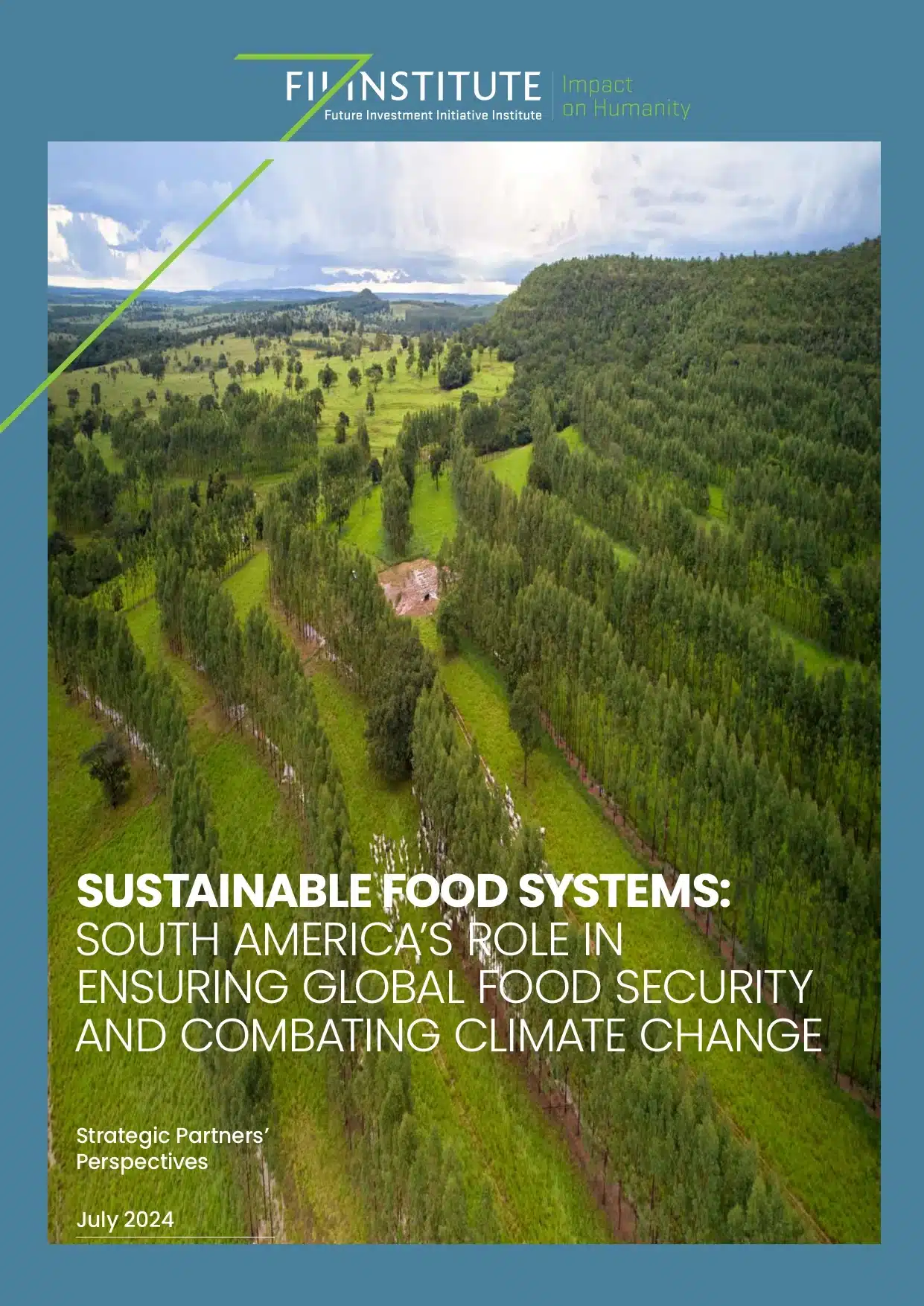
Immerse yourself and discover how this SP Perspectives' White paper report in collaboration with Minerva Foods can benefit you by gaining valuable insights into sustainable livestock production, carbon sequestration, and the potential of nature-based carbon credit markets.
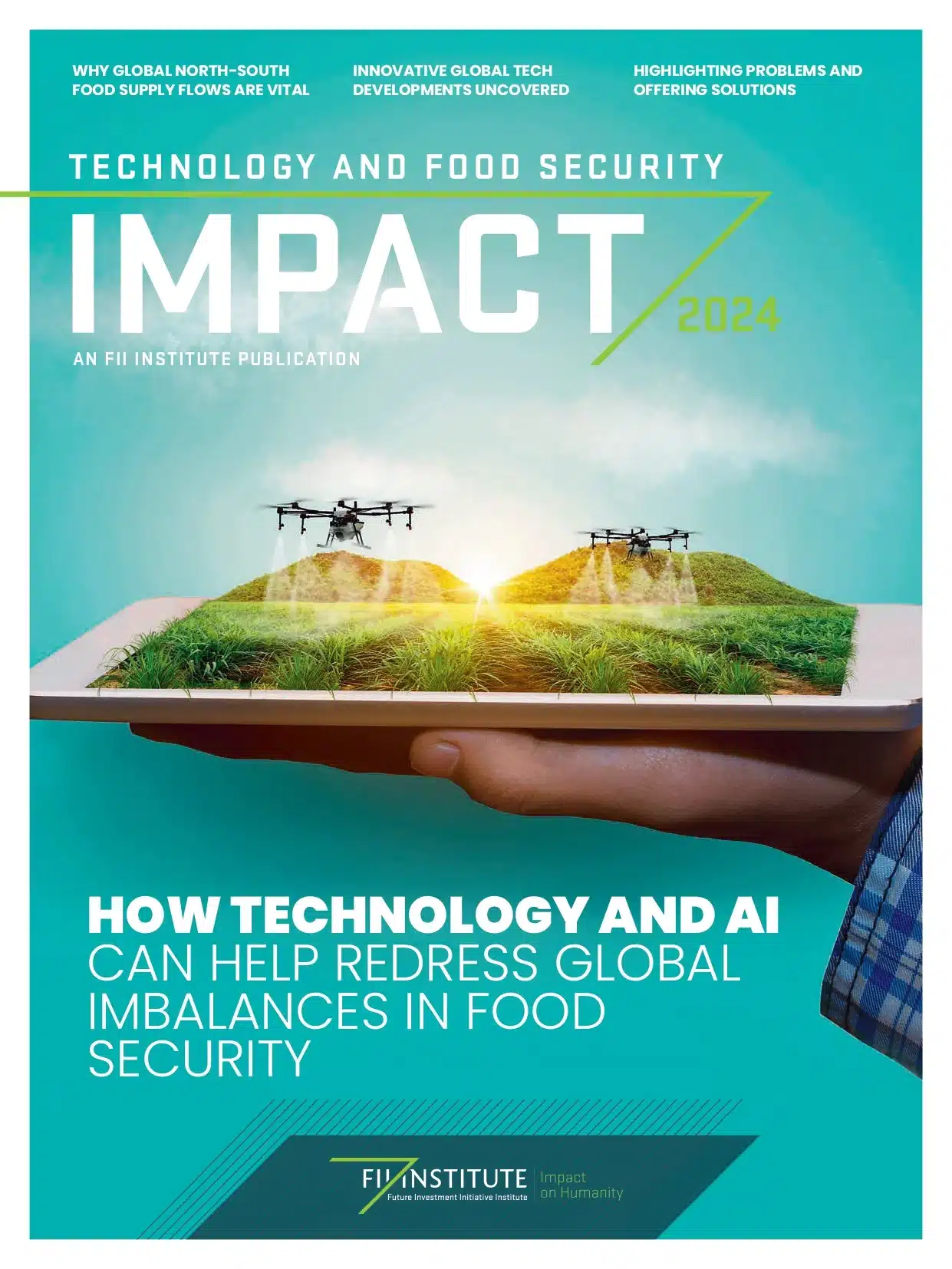
This comprehensive report delves into the transformative impact on tech-driven solutions and sustainable practices such as precision farming, AI analytics, and blockchain on agriculture in the face of climate change and population growth.
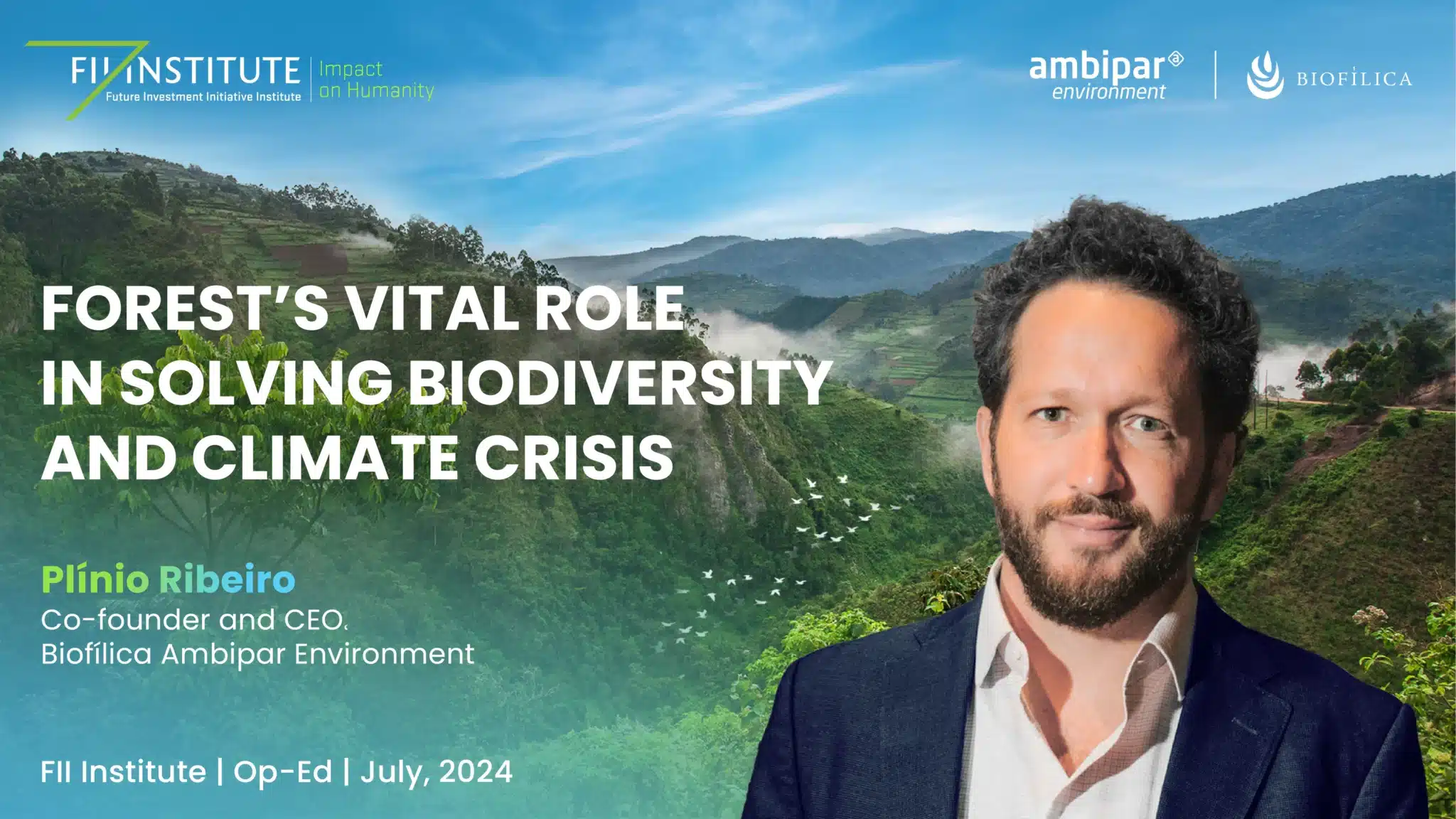
Find out critical insights from the recent op-ed launched in partnership with Plínio Ribeiro, highlighting the vital role of forests in addressing the biodiversity and climate crisis.
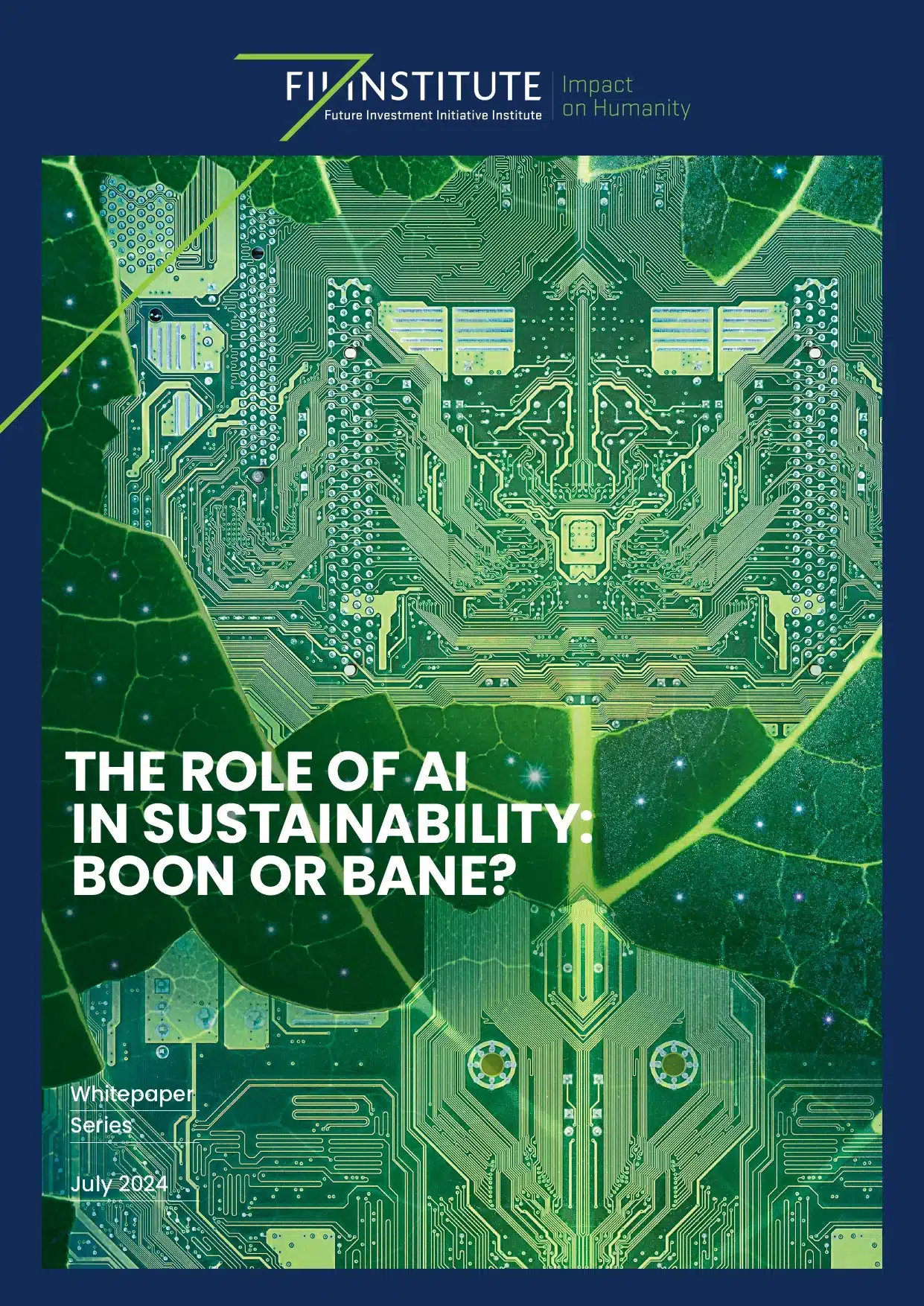
As we grapple with climate change and dwindling resources, can artificial intelligence truly be the game-changer we need for sustainability? The Future Investment Initiative (FII) Institute, in collaboration with Arthur D. Little, presents a groundbreaking white paper exploring the pivotal role of Artificial Intelligence (AI) in driving sustainability.
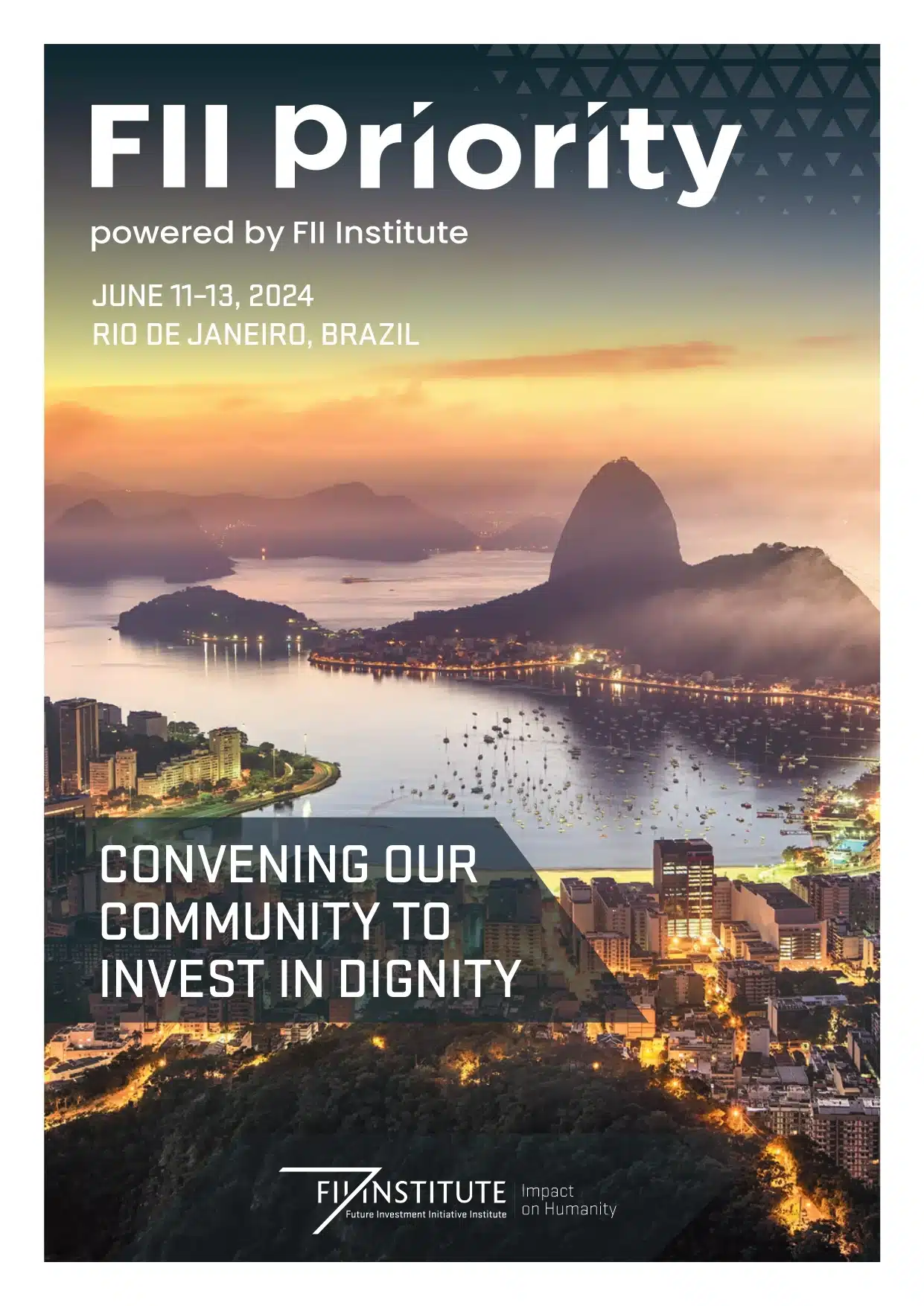
Under the theme, "Invest in Dignity," FII PRIORITY Summit in Rio de Janeiro delved into the enduring global megatrends that continue to shape our world, emphasizing the importance of staying ahead of technological disruptions and investing in sustainable solutions. Revisit those critical conversations and explore the key takeaways in our FII PRIORITY Summit in Rio de Janeiro Post Event Report.
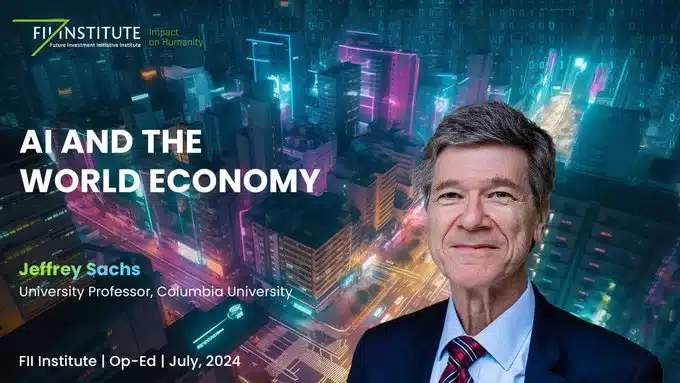
In his op-ed, Professor Jeffrey Sachs explores the transformative power of technology through the ages, culminating in the current era of digital globalization driven by artificial intelligence. Sachs outlines the profound societal shifts brought about by past technological breakthroughs and emphasizes the urgent need for economic and political institutions to adapt to the rapid advancements in AI.
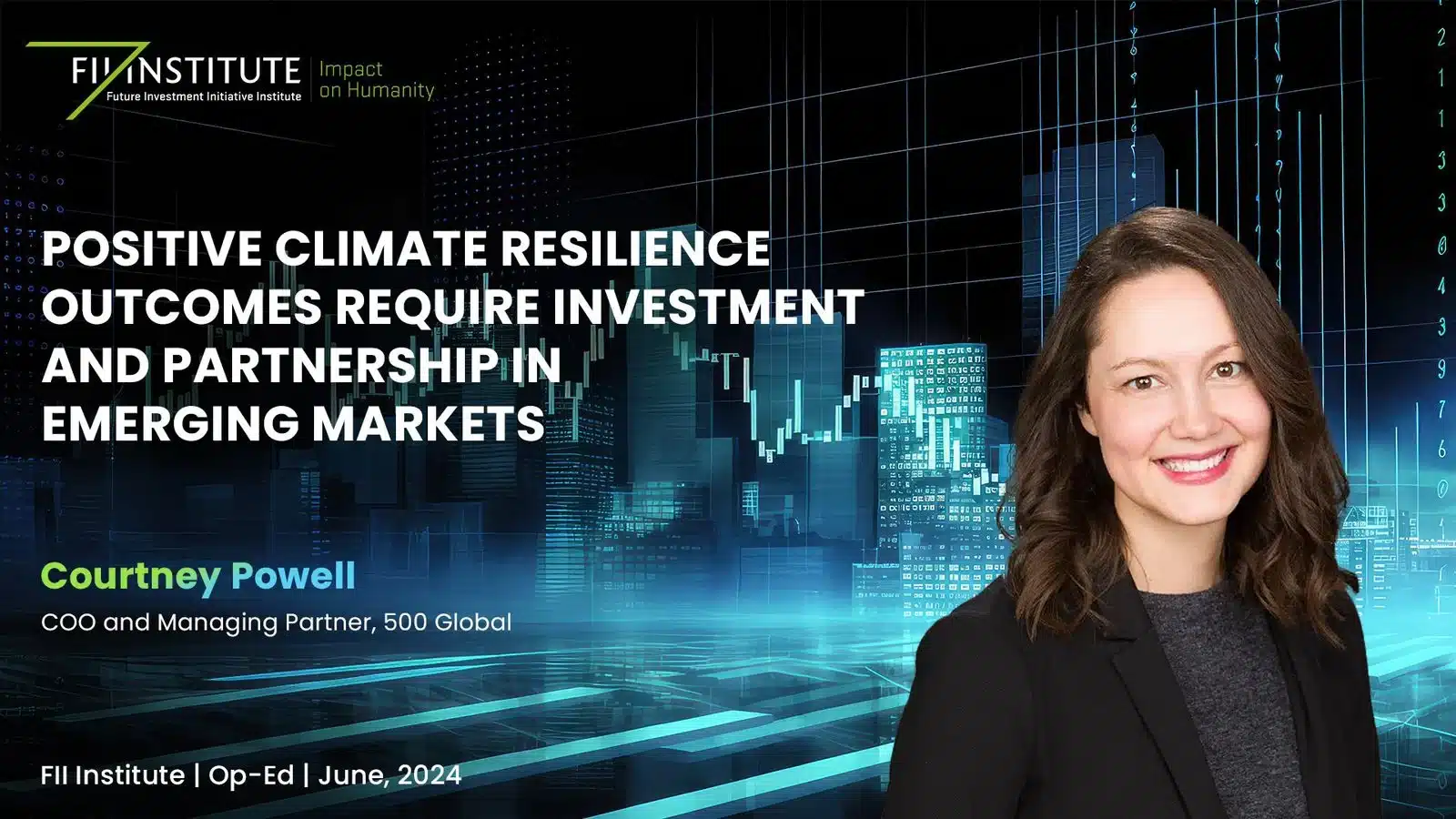
In her op-ed, Courtney Powell emphasizes the urgency of addressing climate challenges through innovation and collaboration. She highlights the critical role of venture capitalists in funding startups that can develop technologies to mitigate climate impacts, particularly in emerging markets.
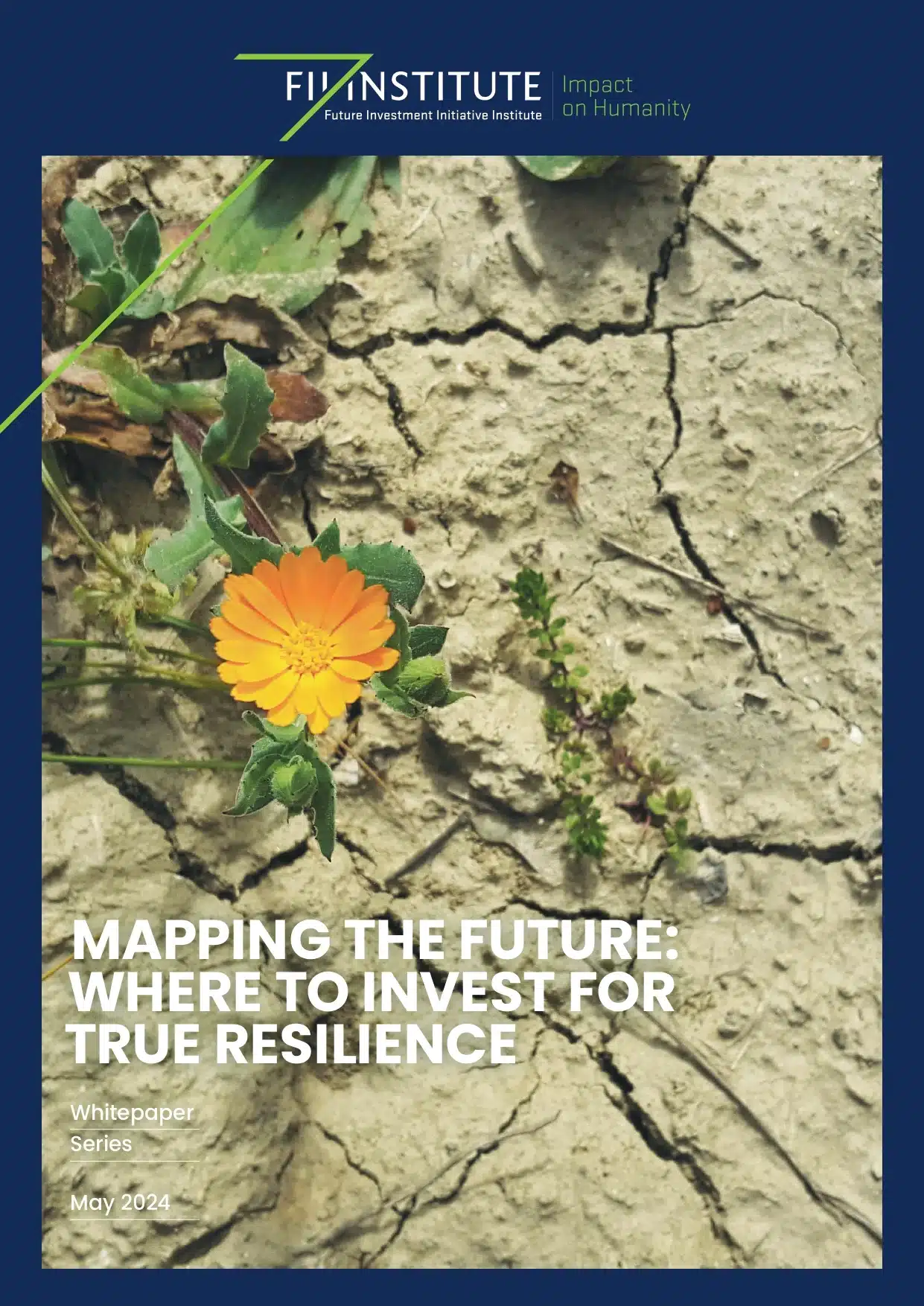
Have you ever wondered how geopolitics, demographics, technology, and climate are shaping the global economic landscape? Our latest whitepaper, "Mapping the Future: Where to Invest for True Resilience," delves into the dynamic forces of geopolitics, demographics, technology, and climate that are reshaping the global economic landscape.
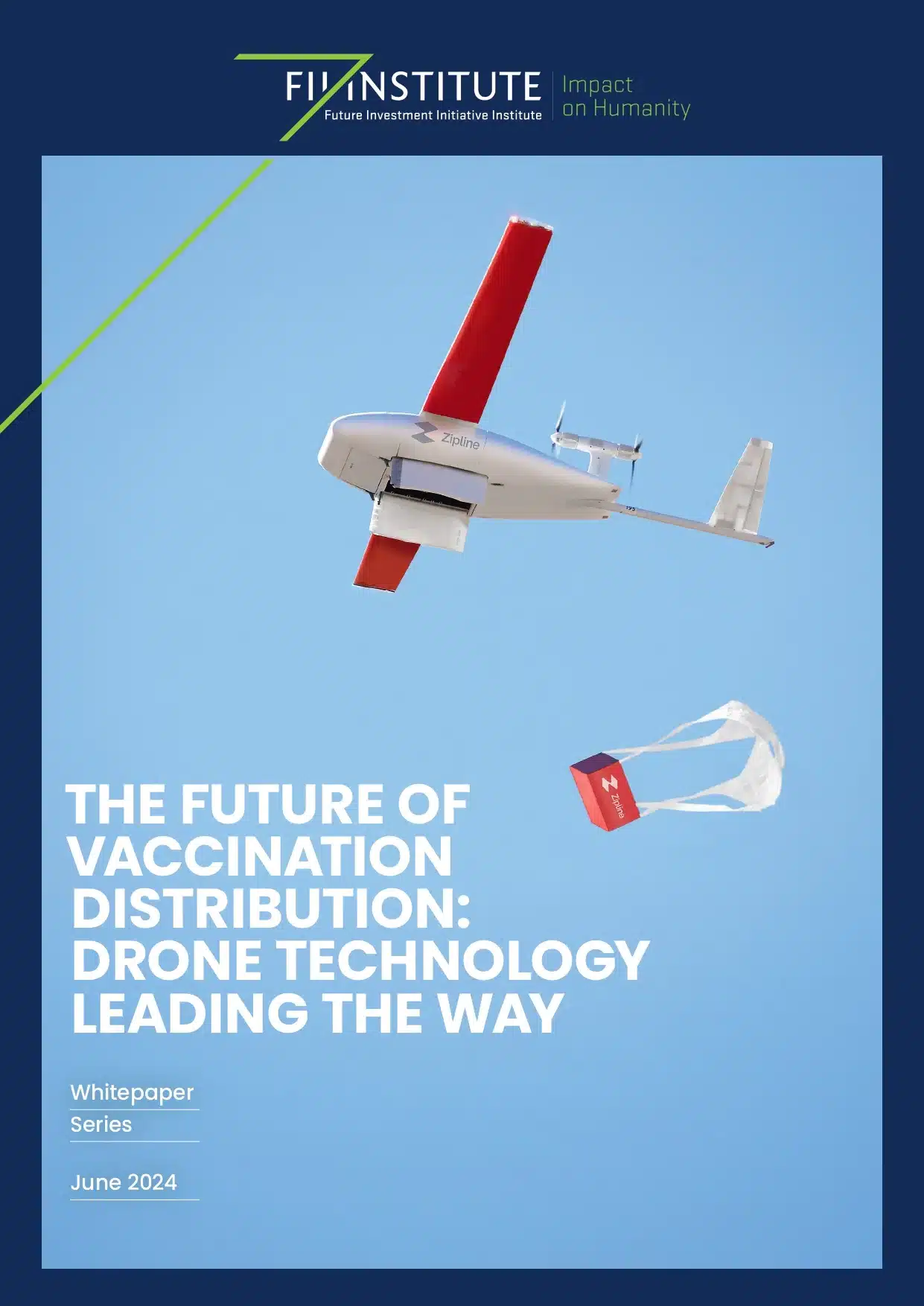
We are thrilled to share the latest groundbreaking whitepaper report in collaboration with Gavi, Rwanda, the UPS Foundation and Zipline, that dives deep into the future of vaccination distribution, highlighting the pivotal role of drone technology in revolutionizing healthcare delivery worldwide.
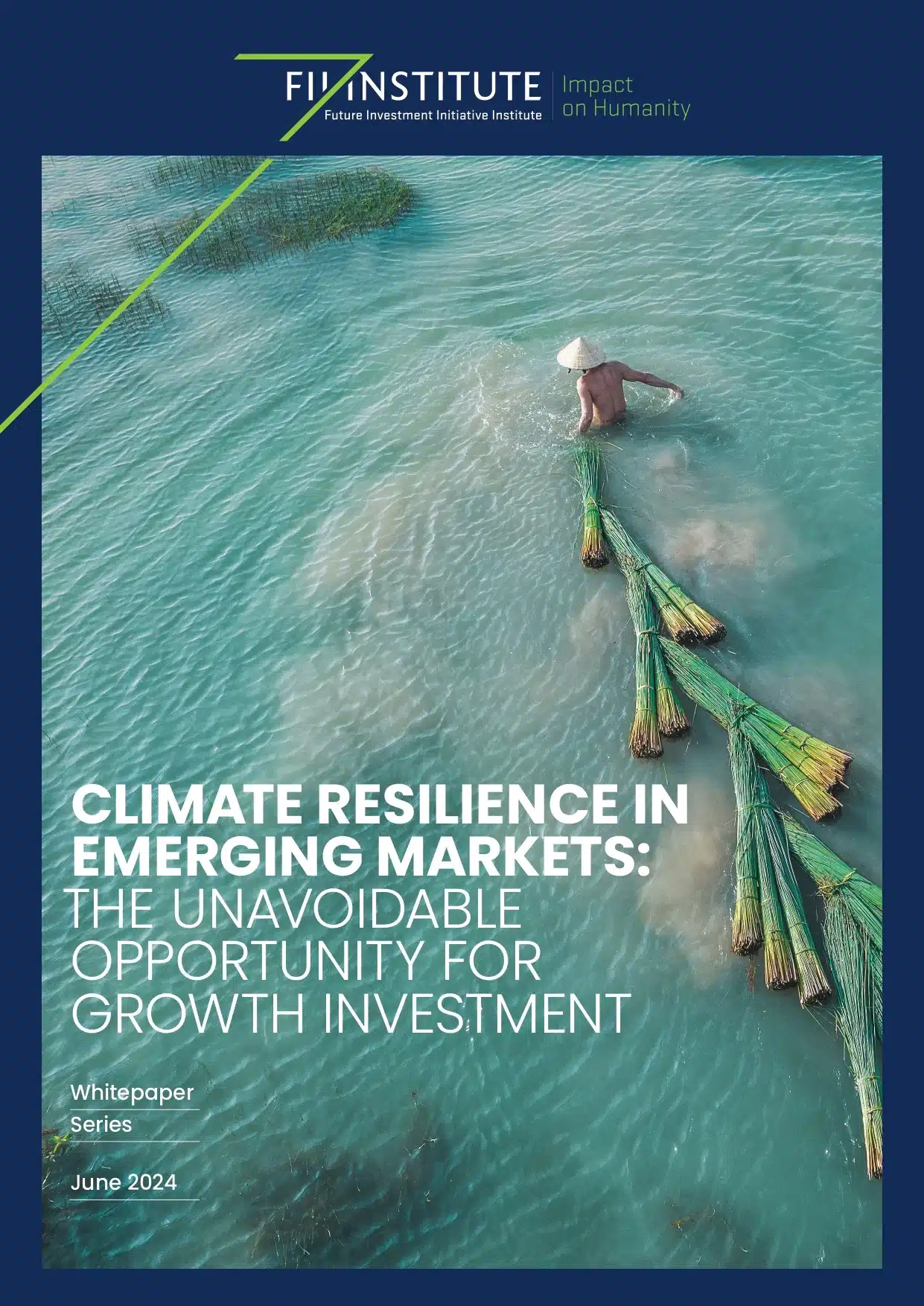
Join us on a journey to explore our latest launch of white paper report "CLIMATE RESILIENCE IN EMERGING MARKETS: THE UNAVOIDABLE OPPORTUNITY FOR GROWTH INVESTMENT" that delves into how climate change is reshaping the investment landscape and driving growth in technologies that build resilience and adaptation.
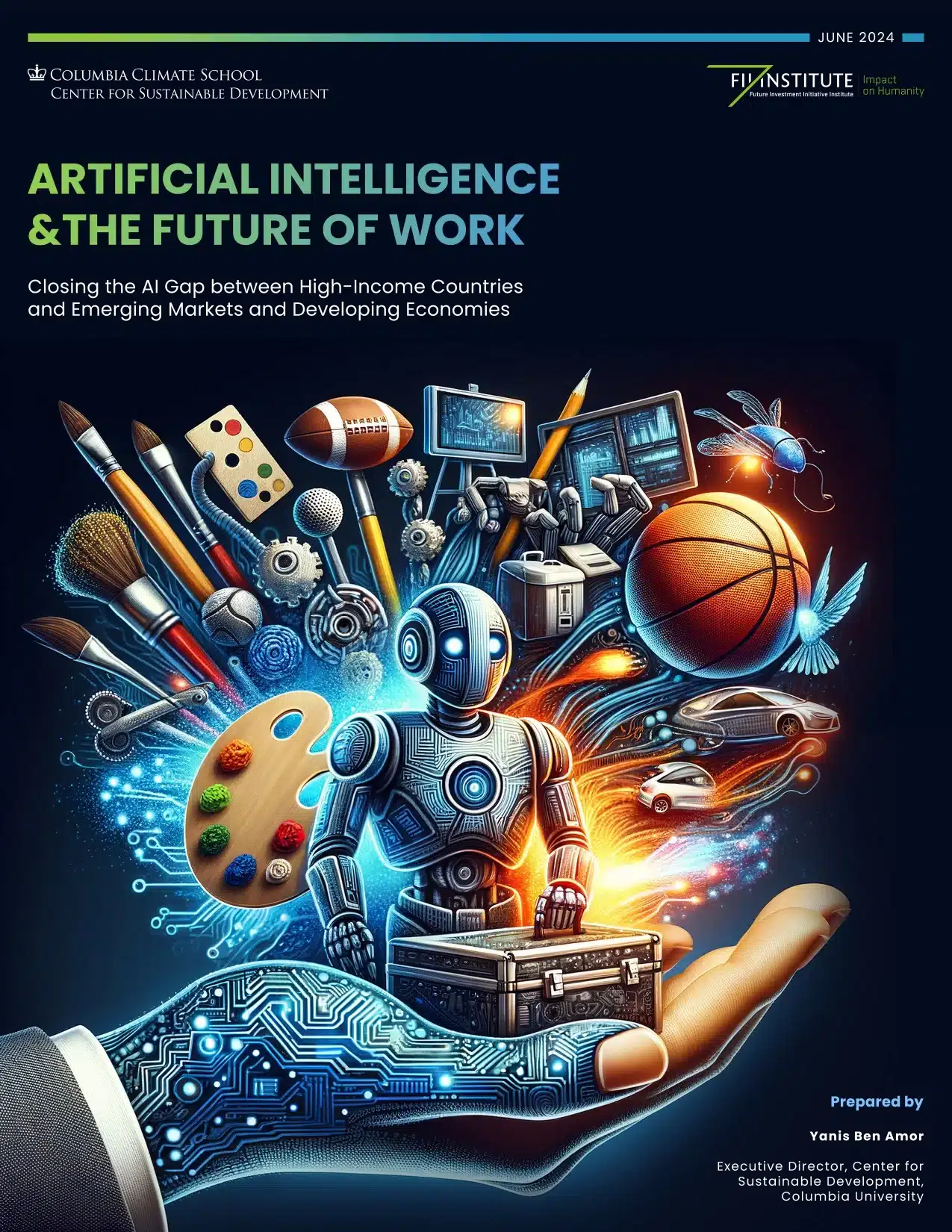
Explore how emerging technologies like AI are reshaping the way we learn, teach, and work, emphasizing the importance of preparing for the future job market. It aims to bridge the digital gap between regions and ensure that all learners and educators have access to the latest advancements in AI.
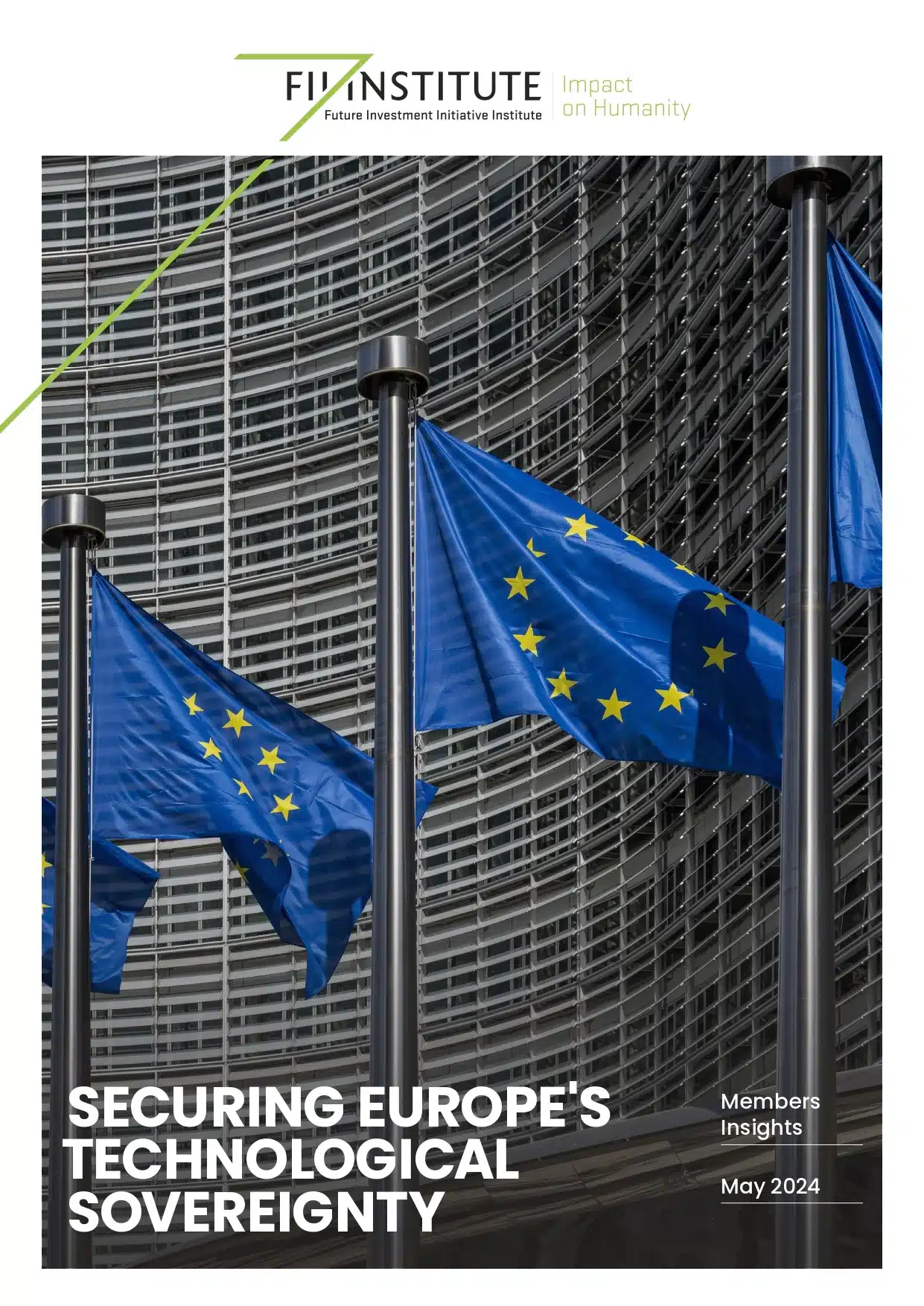
Learn more about the transformative power of entrepreneurship, investment, and cutting-edge technologies in securing Europe's technological future.

In our Impact Report “How AI Can Innovate and Improve ESG & Sustainable Finance Performance," we join forces with subject matter experts from our strategic partners at HSBC and Franklin Templeton and delve deeper into the complexities of sustainable finance and explore innovative solutions to navigate this intricate landscape.

FII Institute is delighted to unveil the 2023 Annual Report to our community. We invite you to explore the report to gain insights into our initiatives, impact, and future goals.

State Street’s experts Mostapha Tahiri and Brian Franz present a comprehensive examination of the transformative possibilities that AI has when it comes to data-driven institutional investment decisions around the globe.
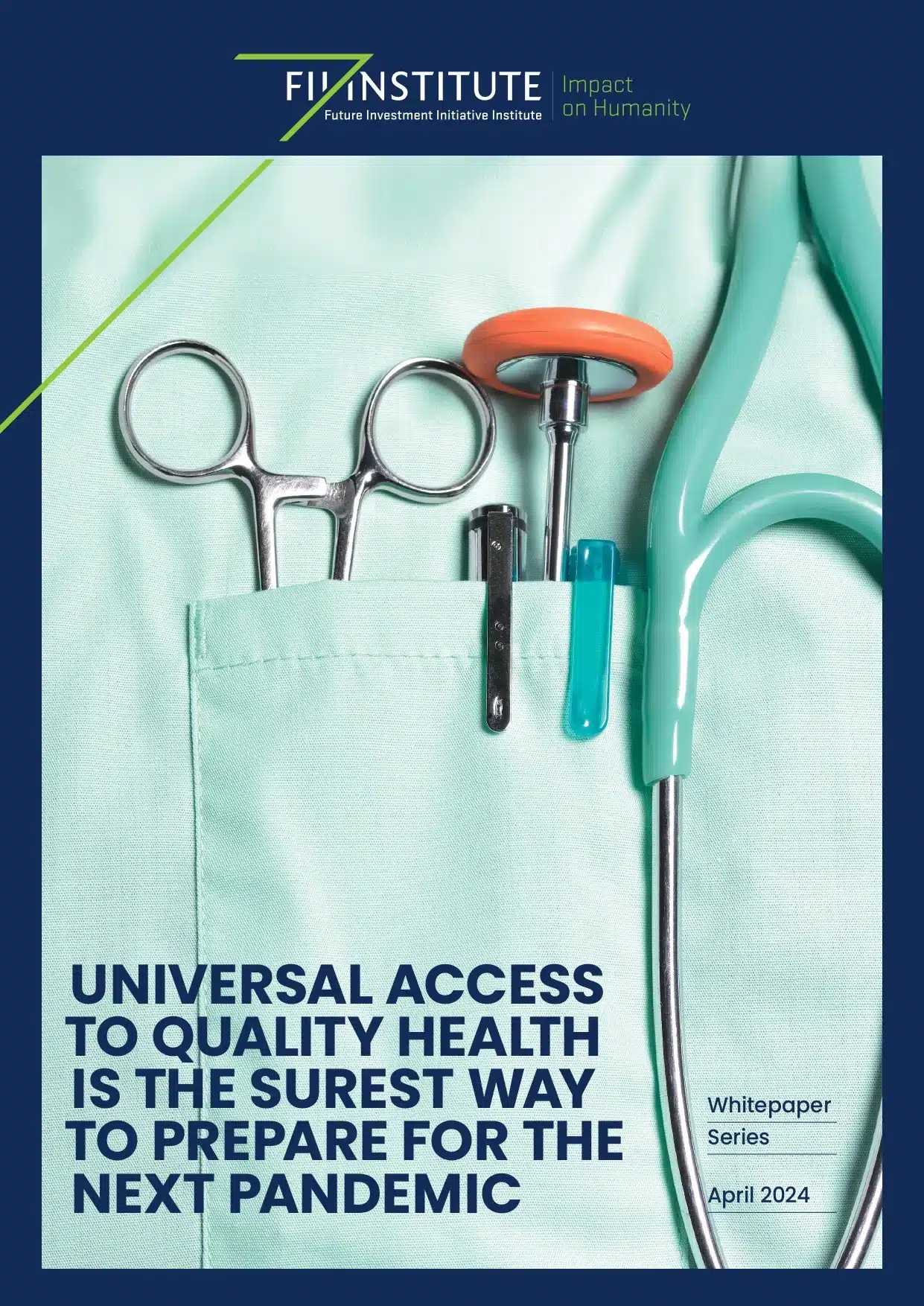
Explore our publication that delves into the critical learnings from the COVID-19 pandemic and its unprecedented impact on our world. This compelling piece sheds insights on the undeniable connection between our health and the global dynamics that govern it, emphasizing the vital need for comprehensive health systems capable of preventing disease outbreaks from escalating into global crises.
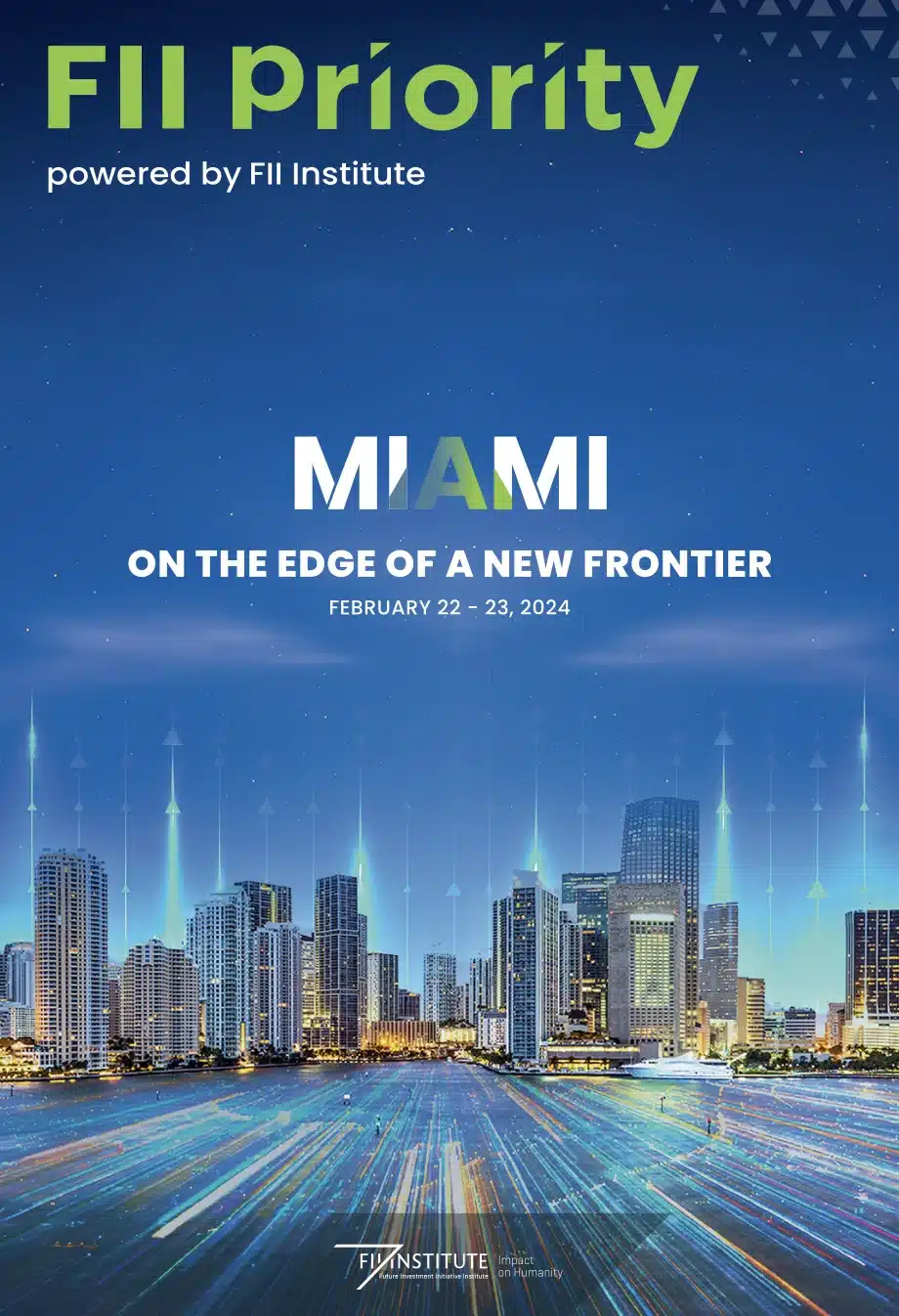
Explore the key outcomes and takeaways of the FII PRIORITY Miami 2024 summit, which brought together over 1200 delegates and over 120 speakers to have an Impact on Humanity.
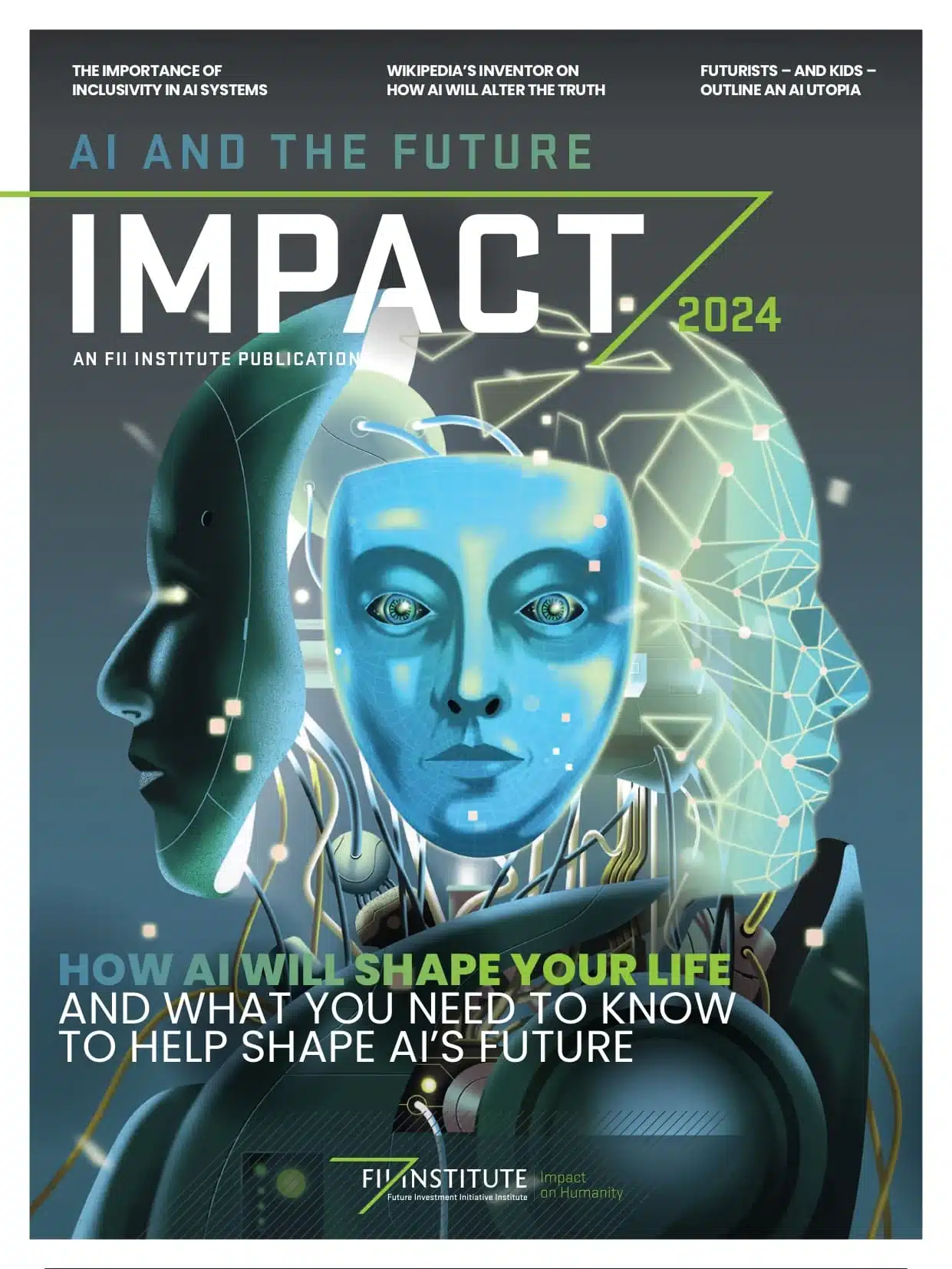
Our AI and the Future Impact Report explores the transition from the once speculative idea of artificial intelligence to its current reality as a transformative force in human-machine interaction, thanks to advanced generative AI models.
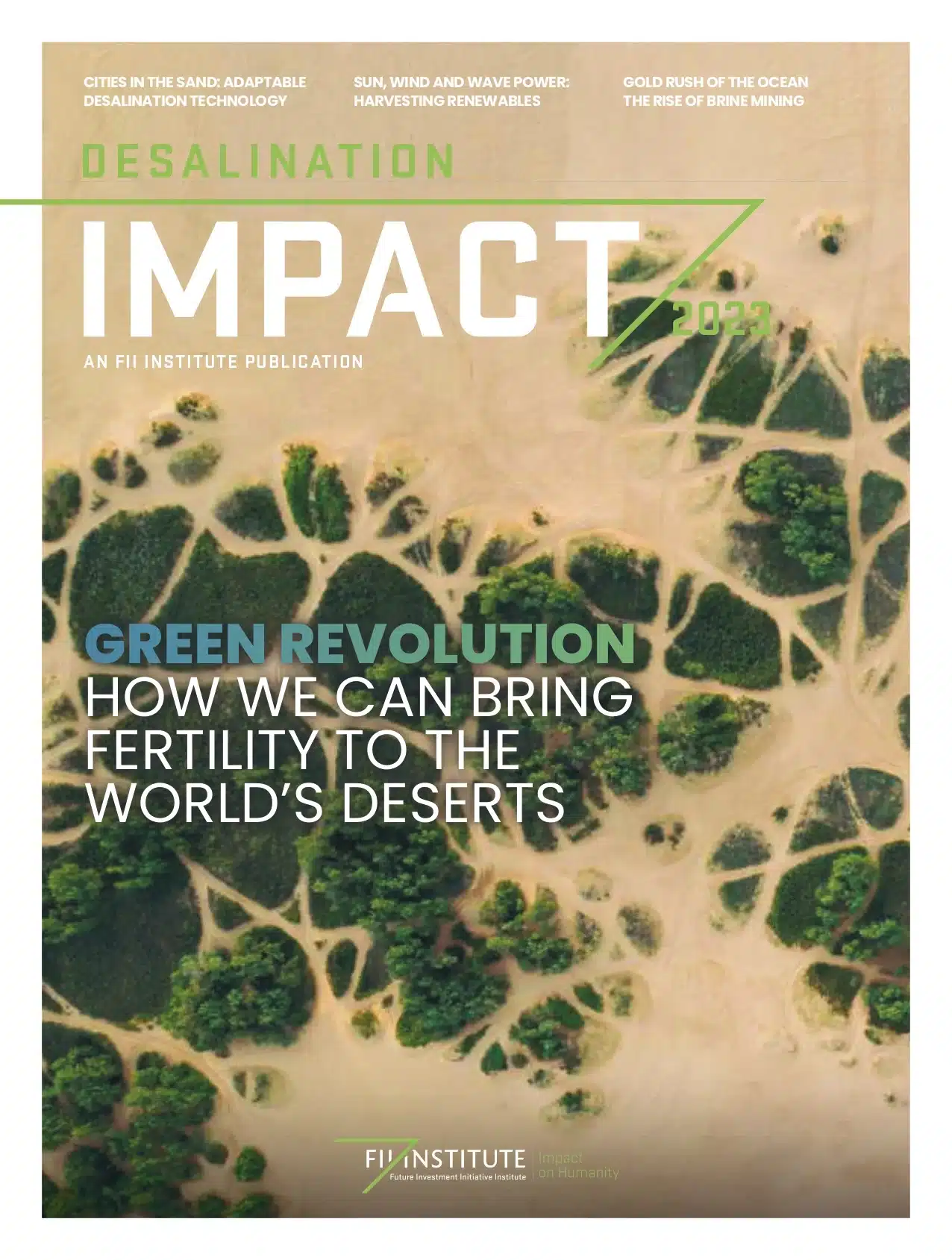
Check out our Desalination Impact Report to explore how desalination stands out as a game-changing technology that has proven valuable in making an Impact on Humanity.
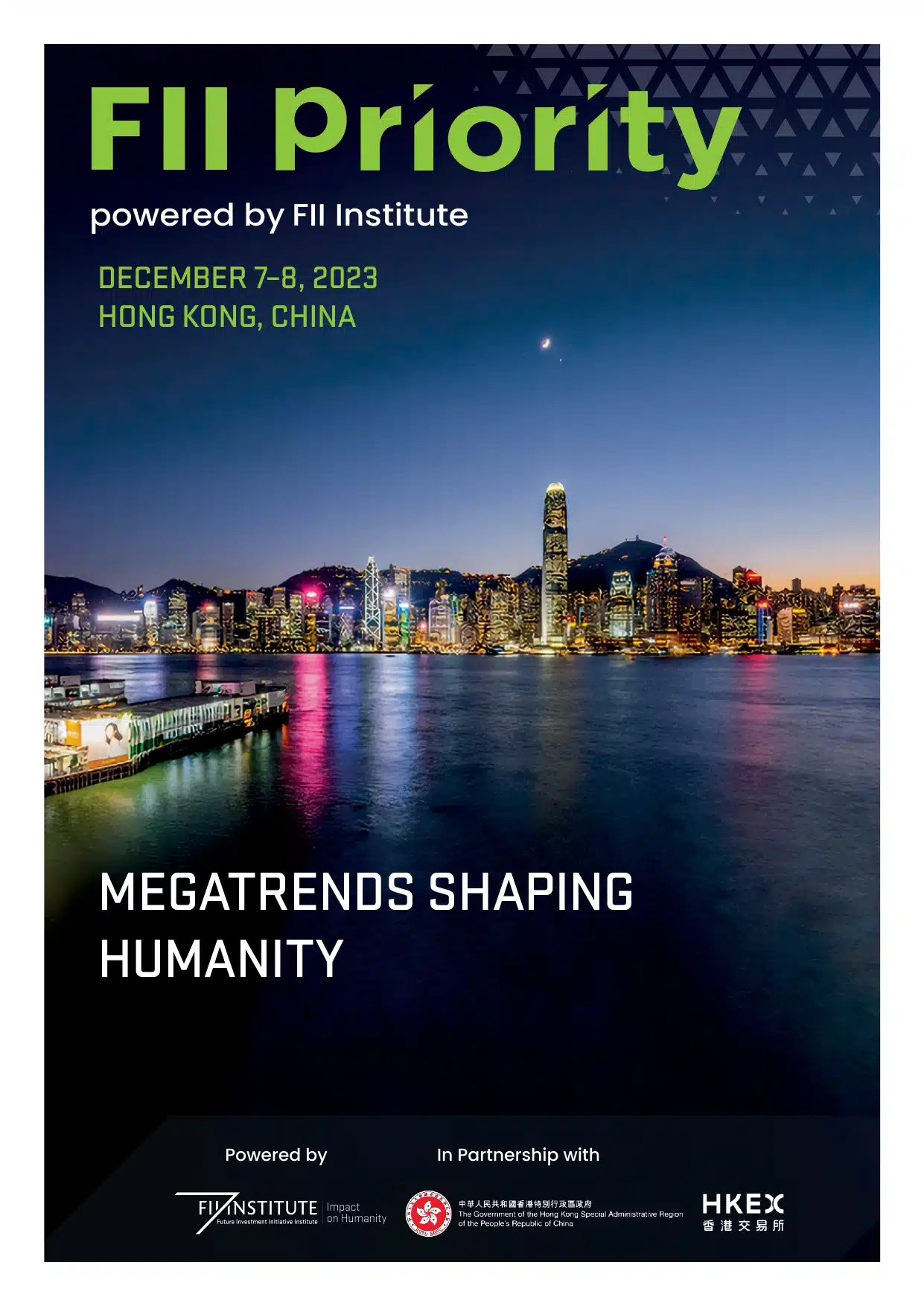
Explore the key outcomes and takeaways of the FII PRIORITY Hong Kong 2023 summit, which brought together over 1000 delegates and over 100 speakers to address ‘Megatrends Shaping Humanity.’
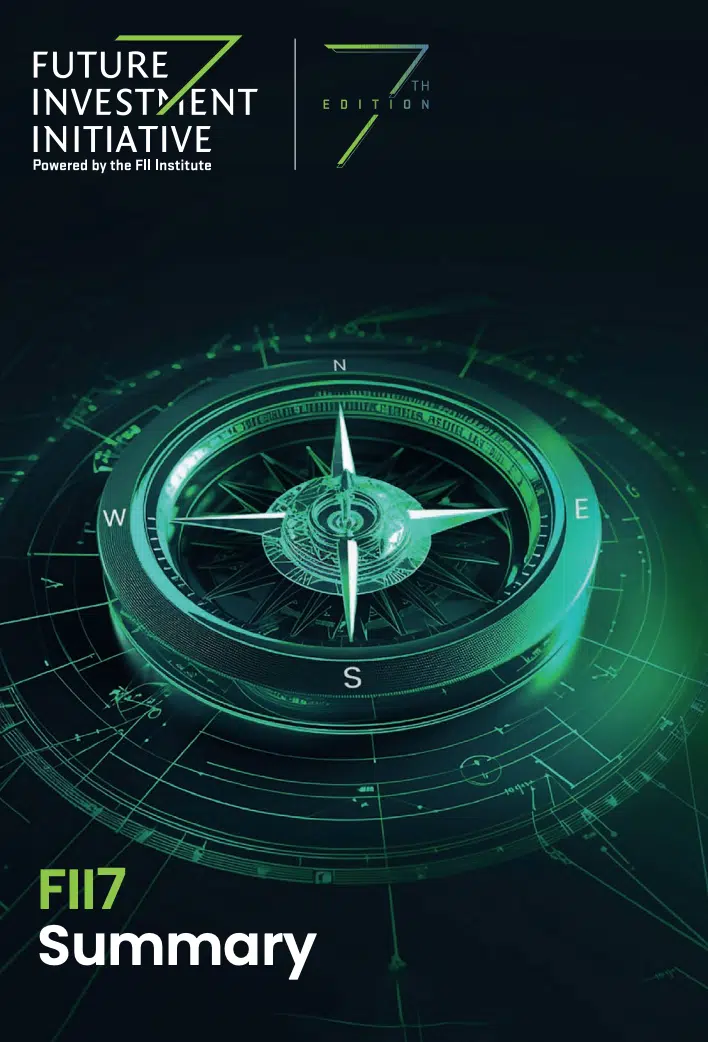
Check out the FII7 Summary for briefs and key insights from the top sessions that contributed to the groundbreaking dialogues that redefined "The New Compass."
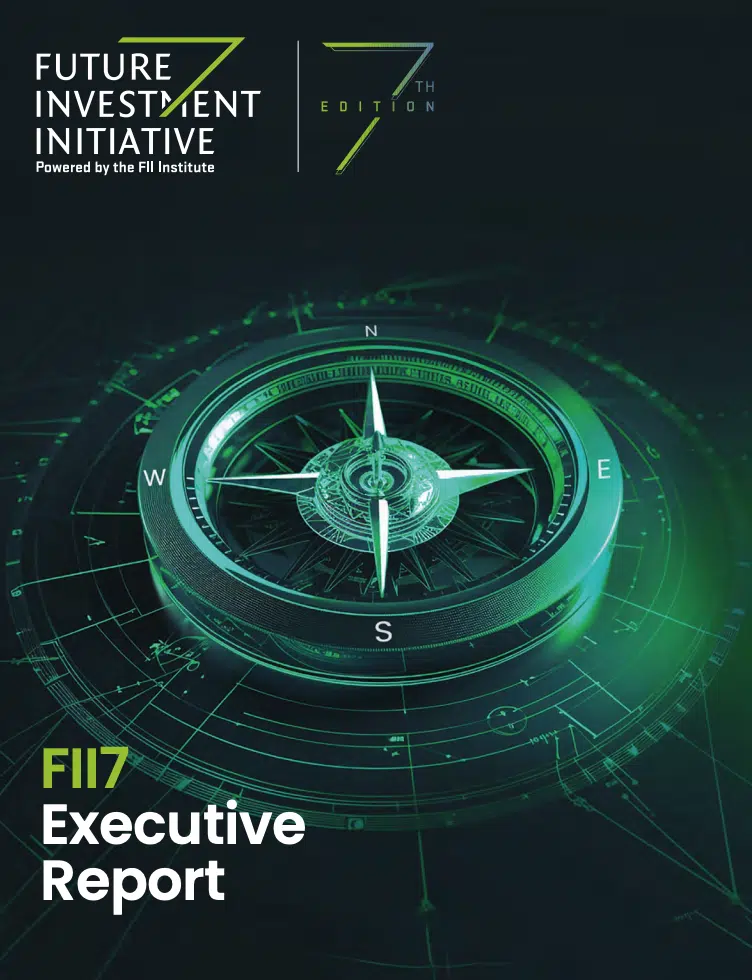
With more than 6,000 attendees from more than 85 countries, the FII7 Executive Report sheds light on common global challenges, emphasizing the need for innovative solutions in areas such as sustainable energy, AI integration, and equitable economic growth. FII7 Post Conference report also highlights the findings from the FII PRIORITY Compass, a global survey of over 50,000 participants across 23 countries, aimed at identifying humanity's top priorities. The report serves as a guide for business and political leaders to address these priorities effectively, fostering meaningful conversations and collaborative actions for a better future.
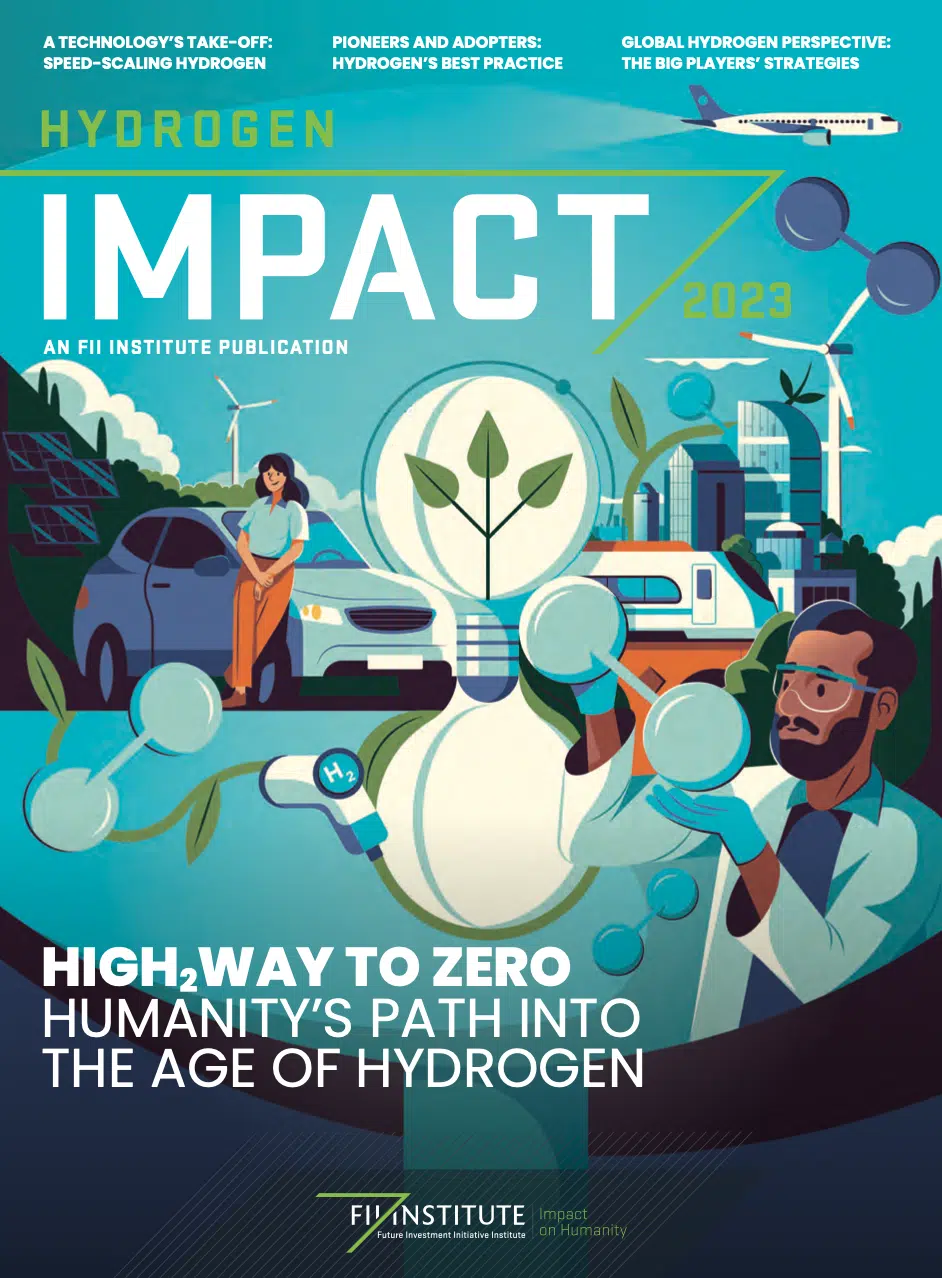
Check out the Hydrogen Impact Report to learn how hydrogen is being catalyzed around the world and plans for how it will power our future.
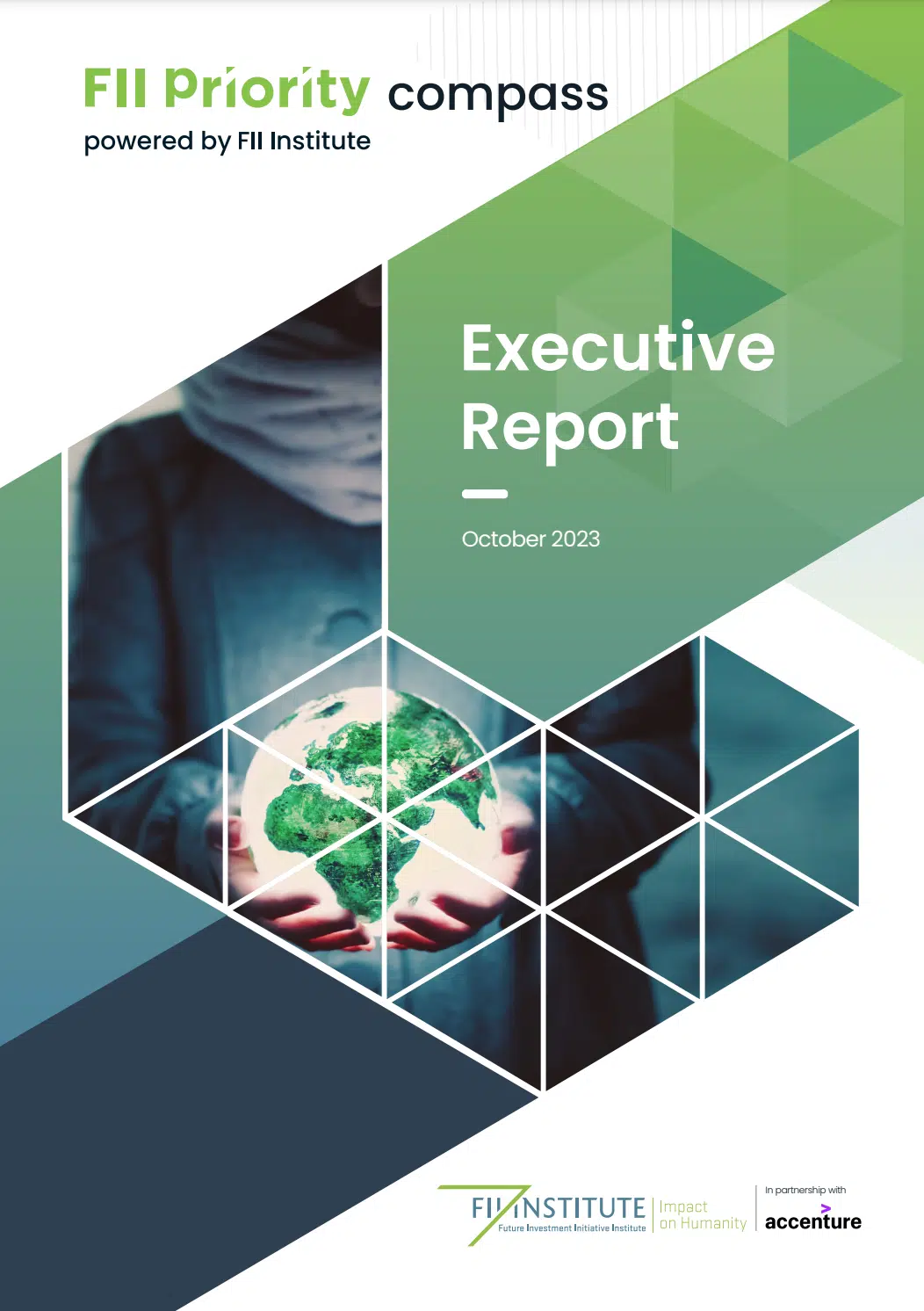
FII PRIORITY Compass aims to uncover humanity’s most pressing priorities, and help world leaders and decision makers identify the right pathways to solve for these priorities.
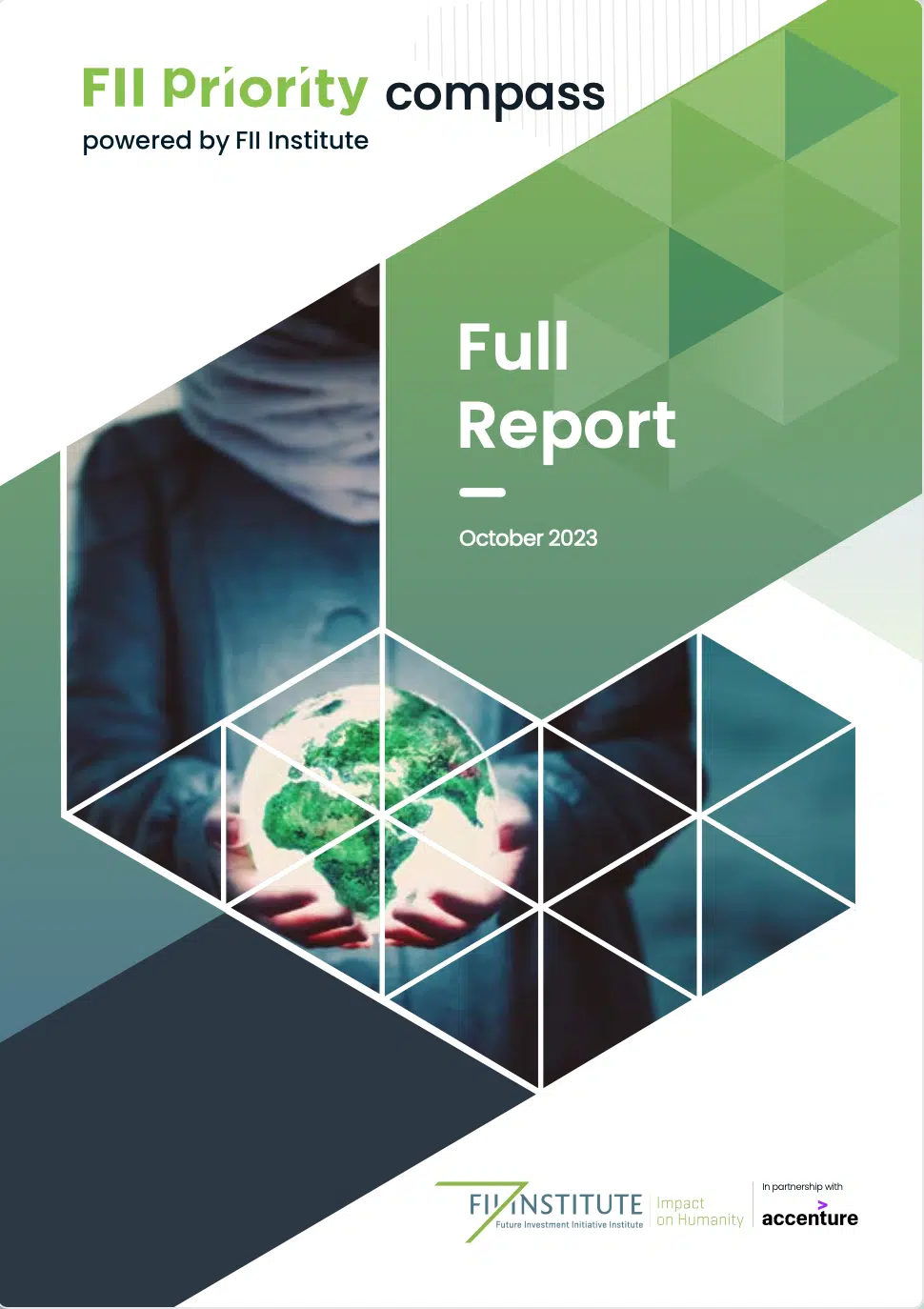
FII PRIORITY Compass aims to uncover humanity’s most pressing priorities, and help world leaders and decision makers identify the right pathways to solve for these priorities.
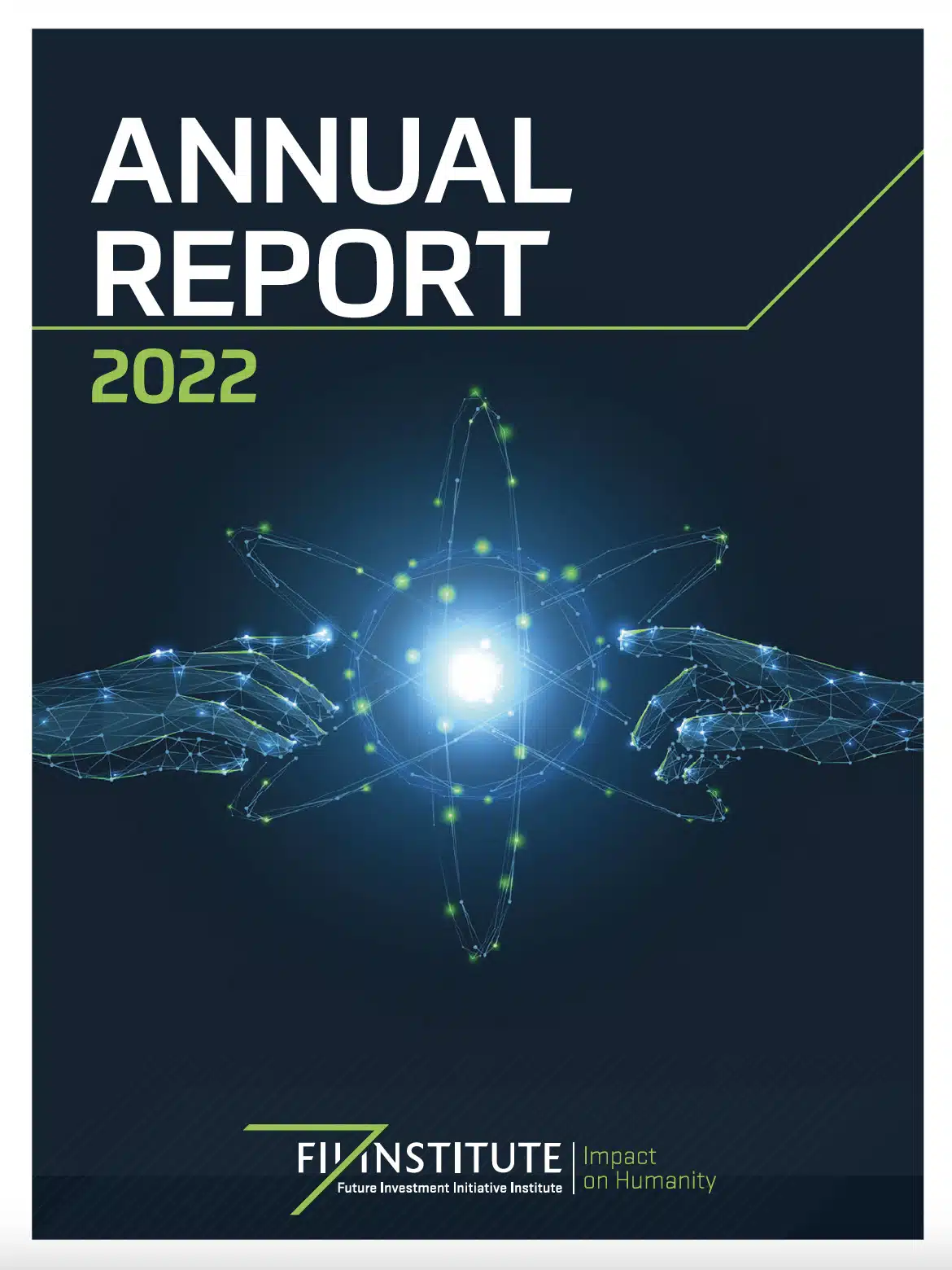
Explore our unique impact model, learn more about our calls to action, and discover our achievements for 2022.
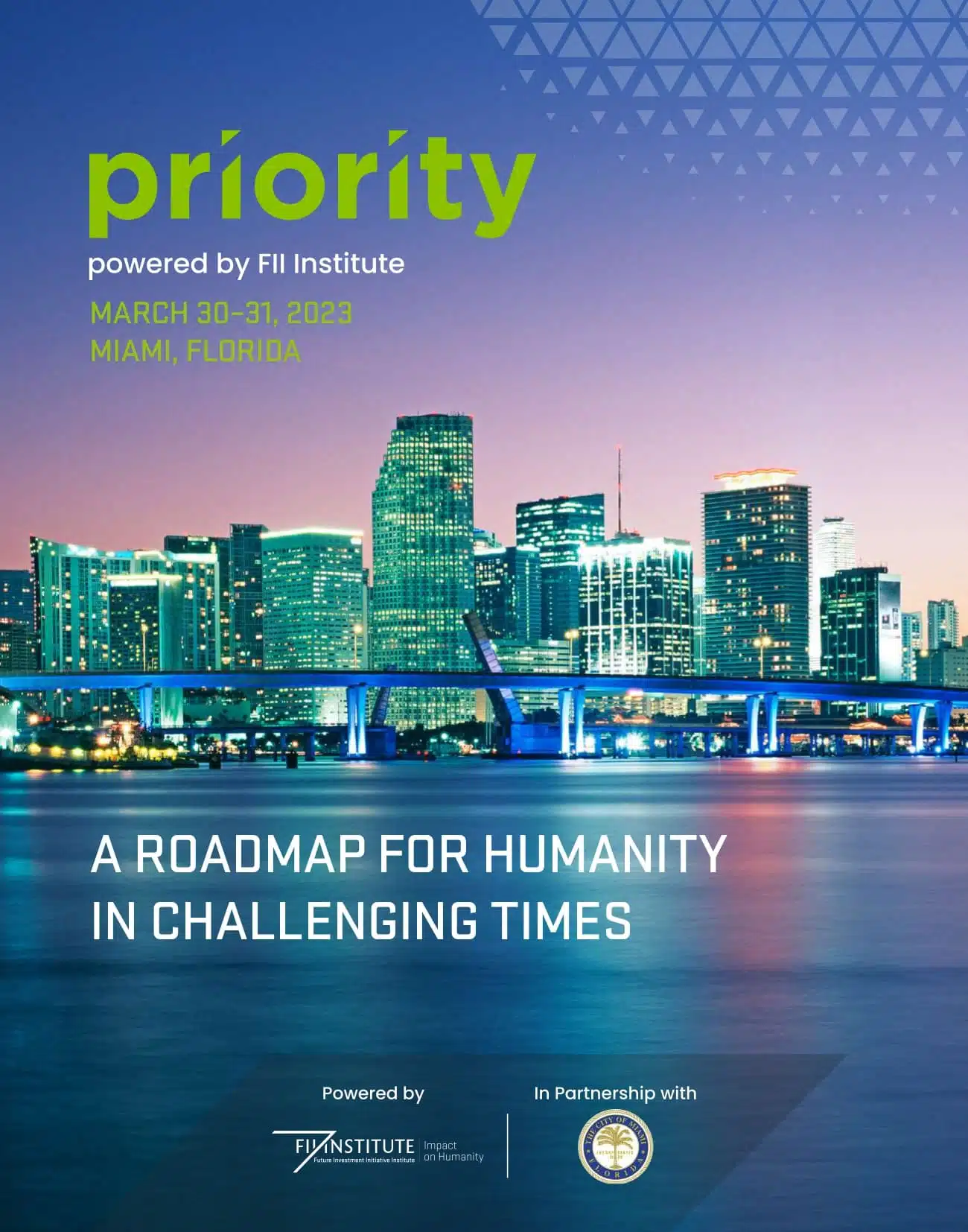
The Global PRIORITY Summit returned in 2023 in Miami, attracting an impressive lineup of 86 world-renowned speakers and over 700 delegates to discuss pressing global issues, and the FII Institute plans to host the summit in Miami again in 22-23 February 2024.
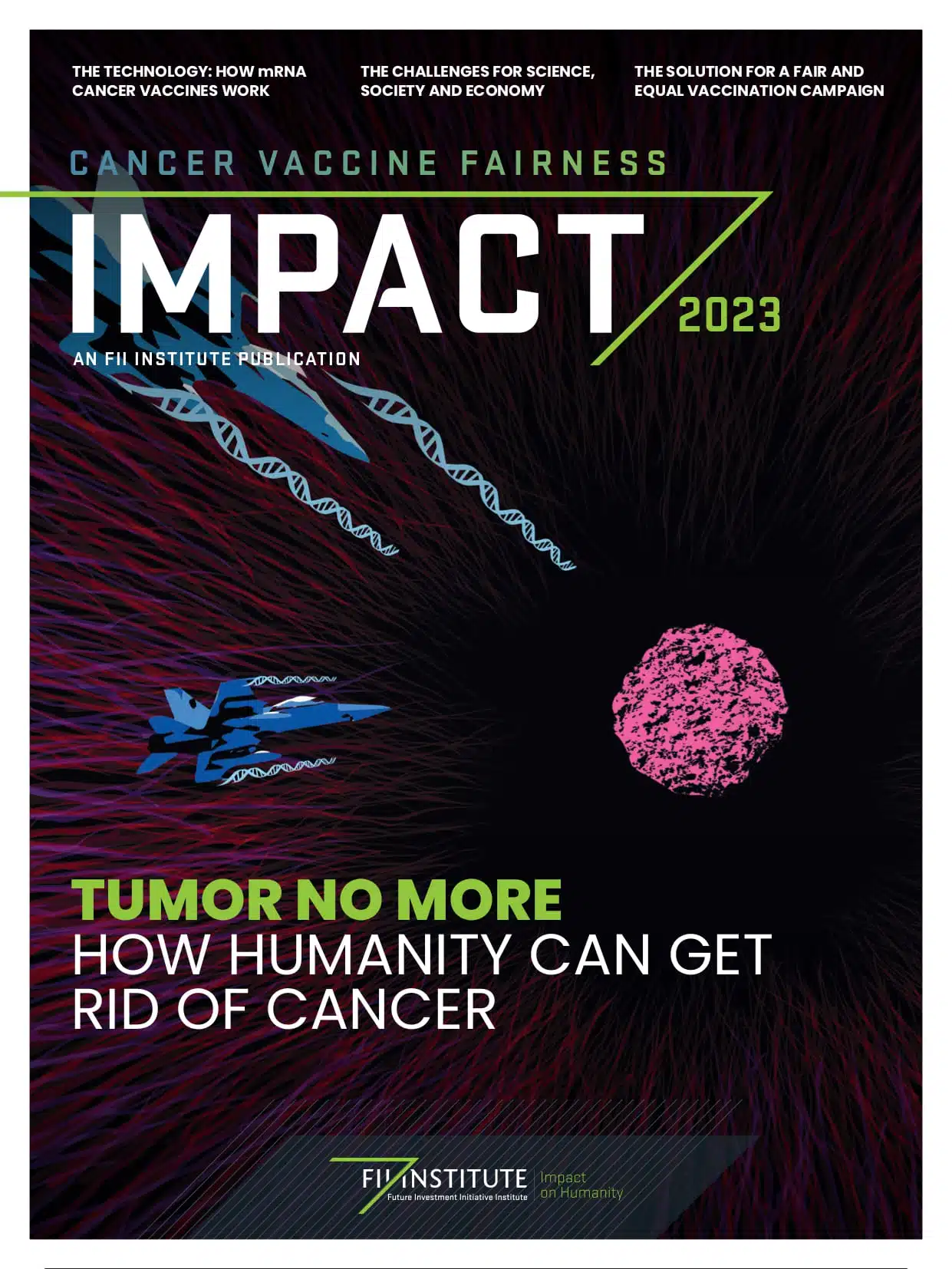
This report examines the potential impact and challenges of cancer vaccines, proposing a debate about the best and most equitable way to put an end to cancer. It includes illustrations by Daniel Hertzberg, and discusses the need for studies with clearly defined plans to treat a defined number of patients, as well as the potential of mobile production facilities for mRNA.
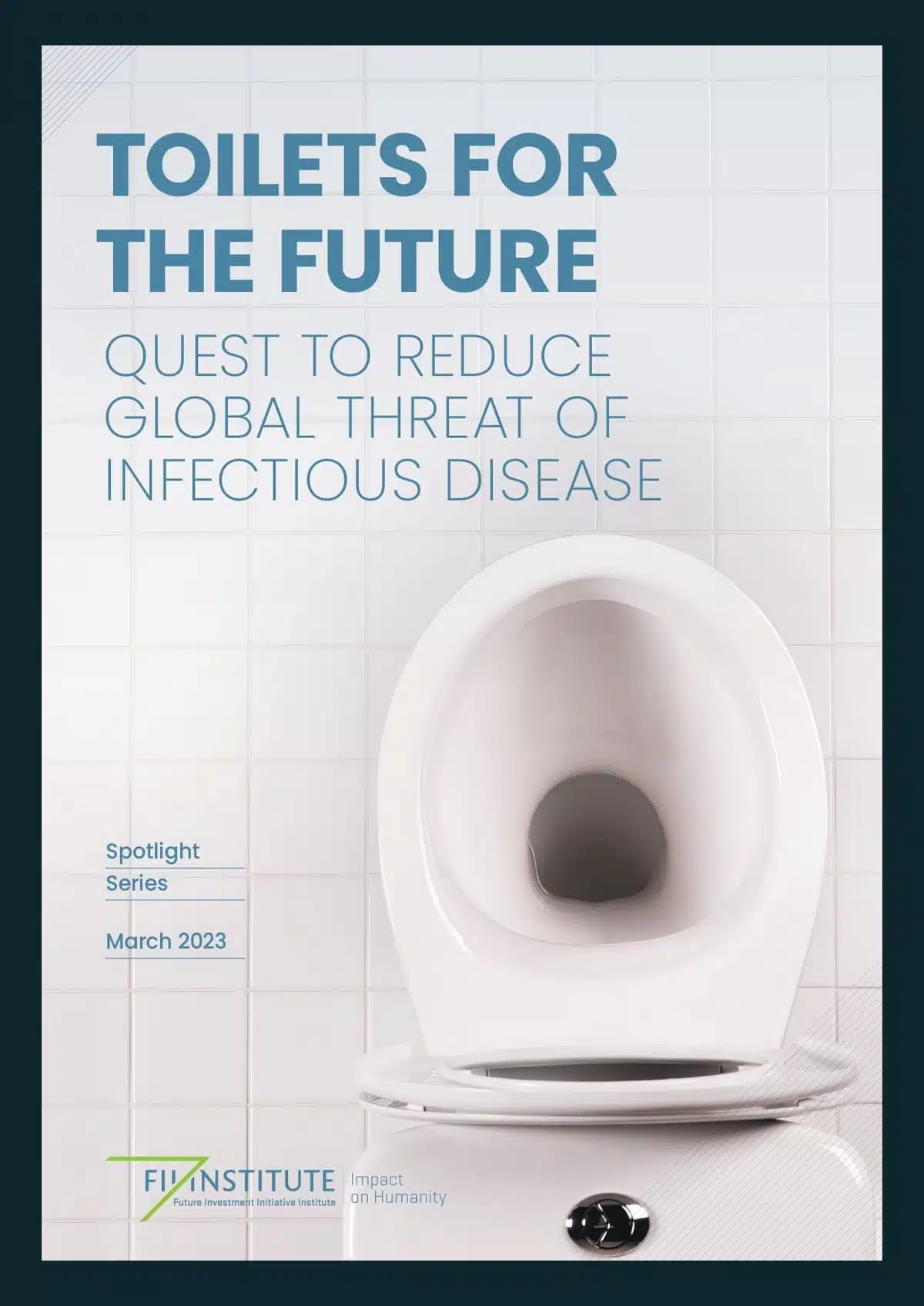
Discover the future of sanitation and its impact on global health in our comprehensive Spotlight Series Report, “Toilets for the Future.” This enlightening resource delves deep into the past, present, and promising future of sanitation systems worldwide, emphasizing reducing the global threat of infectious diseases. The report explores critical topics such as: The dire current […]
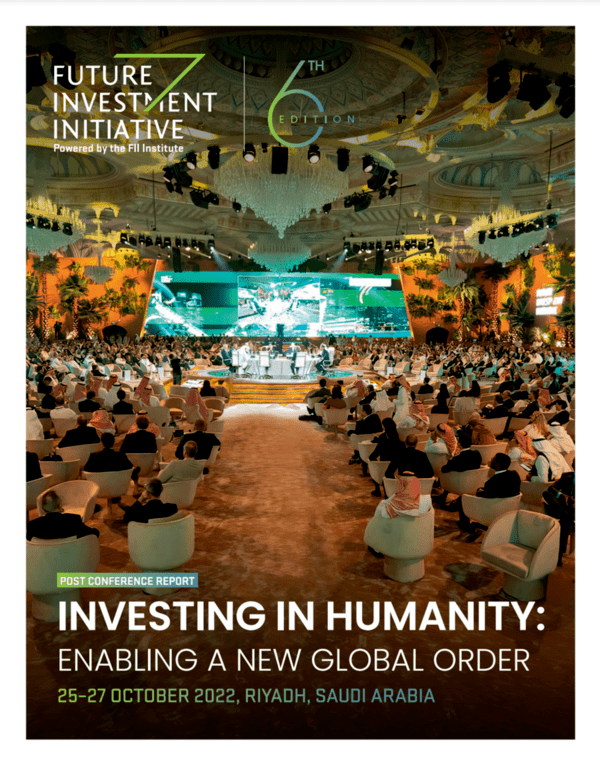
The FII Institute proudly presents its Post Conference Report on FII6, Investing in Humanity: Enabling a New Global Order. This year's conference brought together leading experts from the fields of economics, finance, and international development to explore the ways in which investments can be directed toward creating a more equitable and sustainable global order.
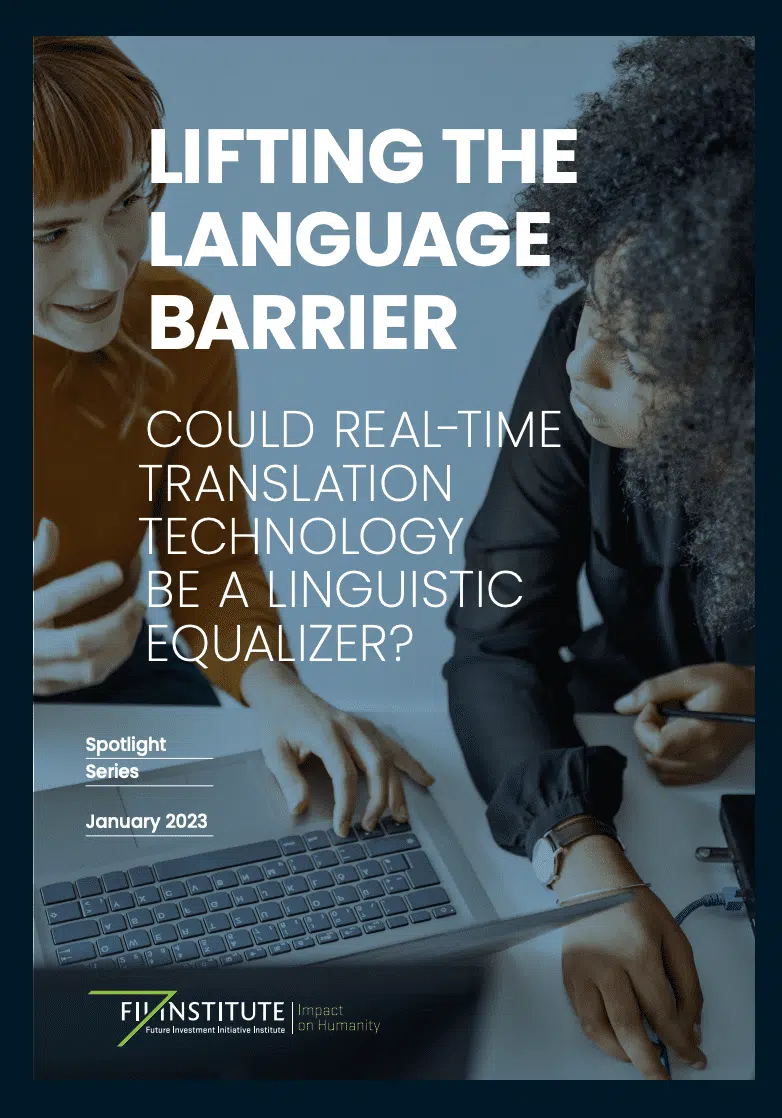
The FII Institute explores how technology can bridge linguistic barriers & create a more interconnected world through machine translation. Join us in shaping a more inclusive & compassionate global community
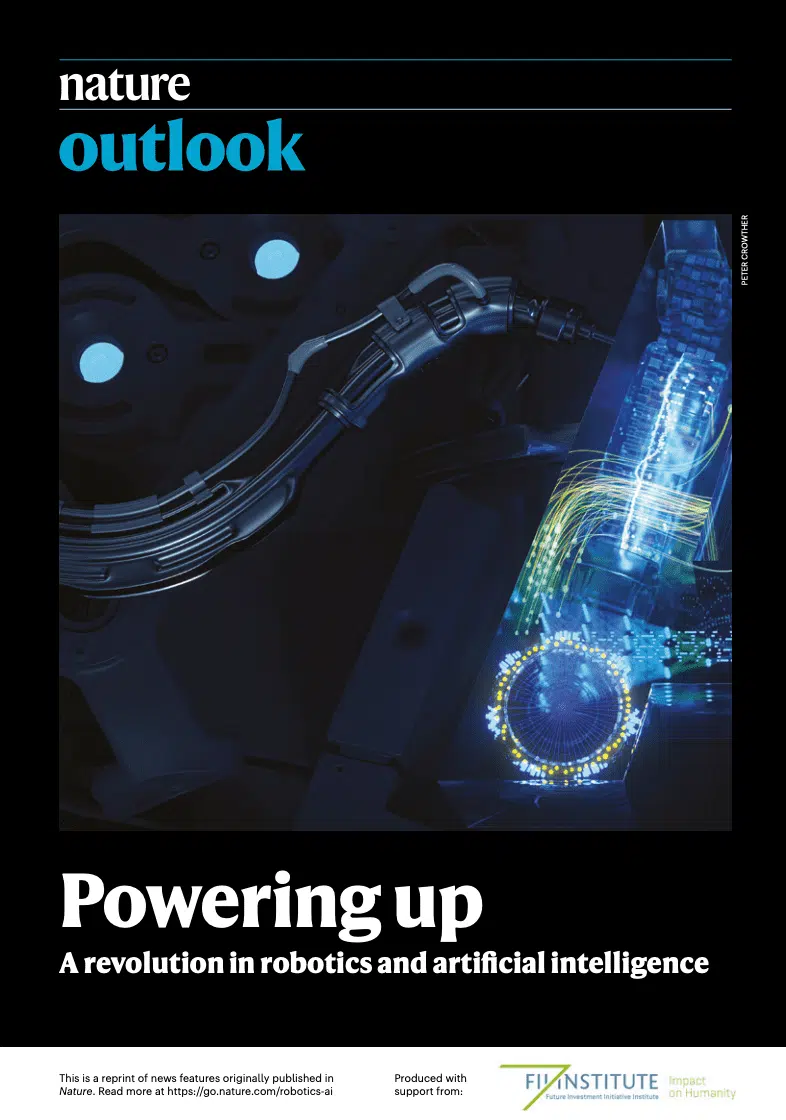
We are now living through the early stages of a similarly rapid revolution in robotics and artificial intelligence — and the effect on society could be just as enormous.
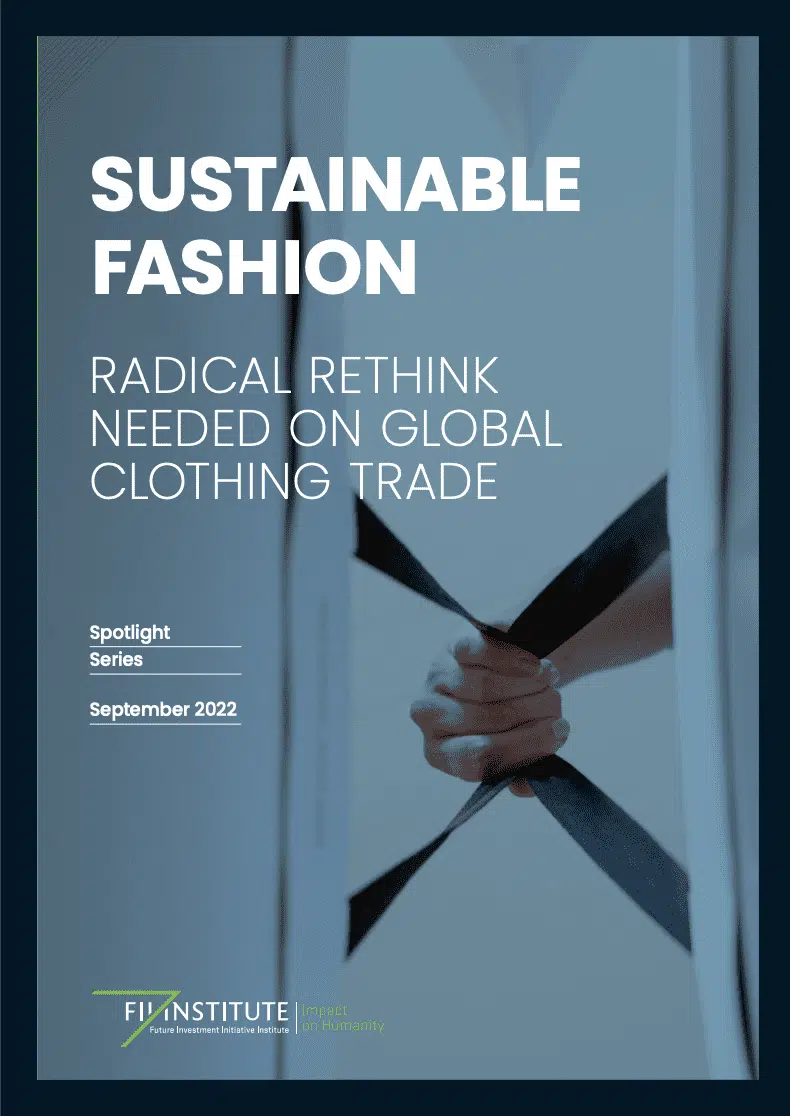
Today’s throwaway clothing or “fast fashion” has negative environmental impacts at every stage of its life cycle. Current systems are not sustainable. We need to change what our clothes are made from, where and how they are produced, and how we dispose of them.
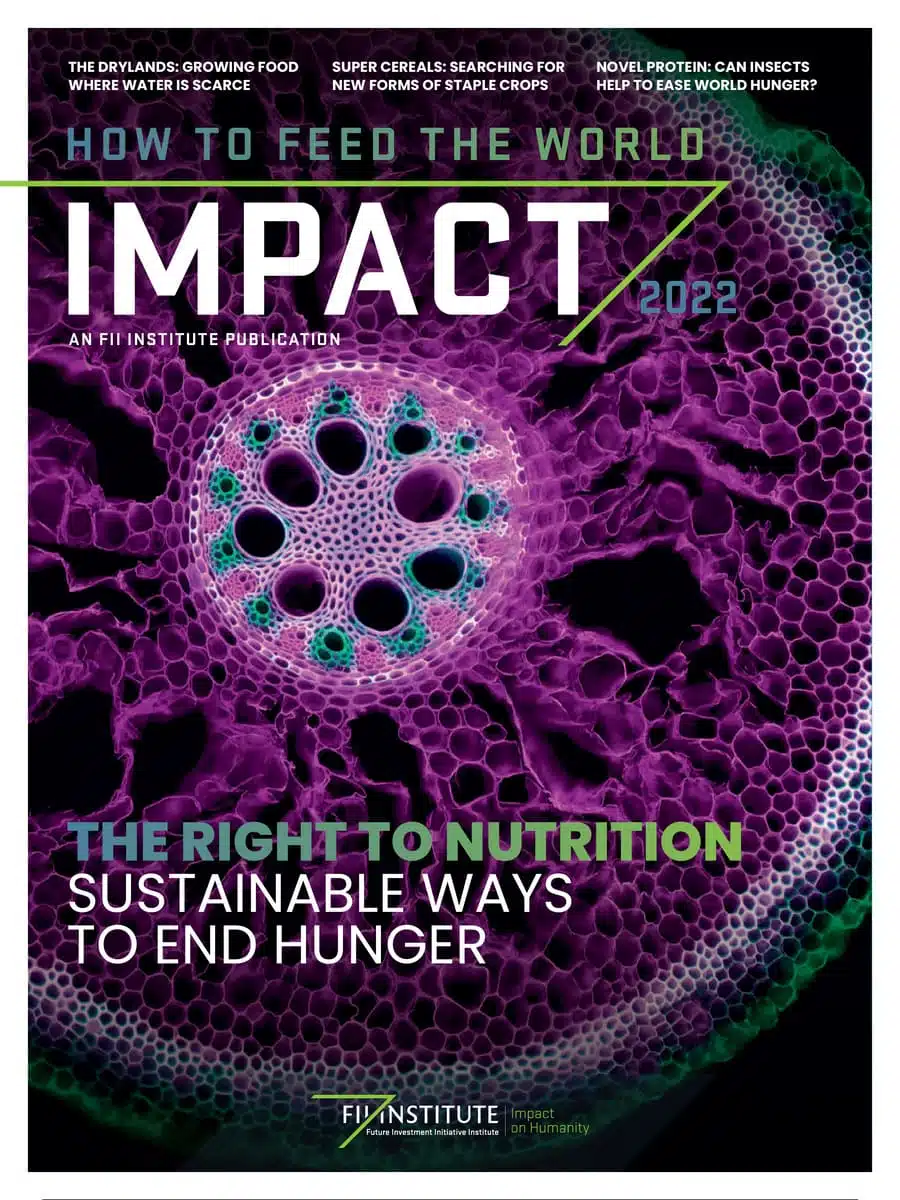
Progress made to reduce hunger in recent decades is now going into reverse. Only a concerted effort on many fronts will restore productivity to degraded soil and produce crops that can survive in the hot, dry conditions that are becoming common.
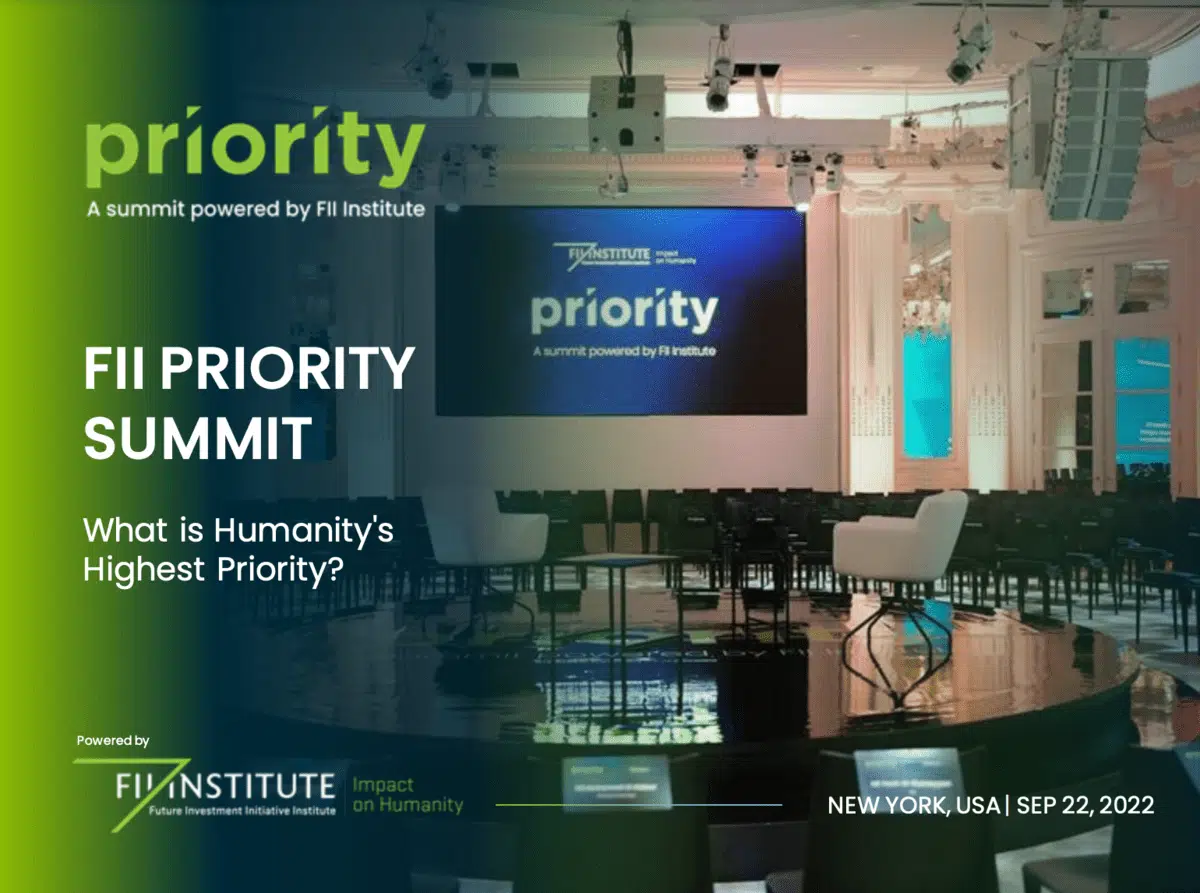
A Summit to Define Humanity’s Highest Priority Enlightenment has often followed humanity’s darkest hours. In a time of extraordinary social and economic transformations and shifting geopolitical alliances. The Future Investment Initiative (FII) Institute, in line with its mission to have a positive impact on humanity, has hosted a capstone summit to identify and explore the […]
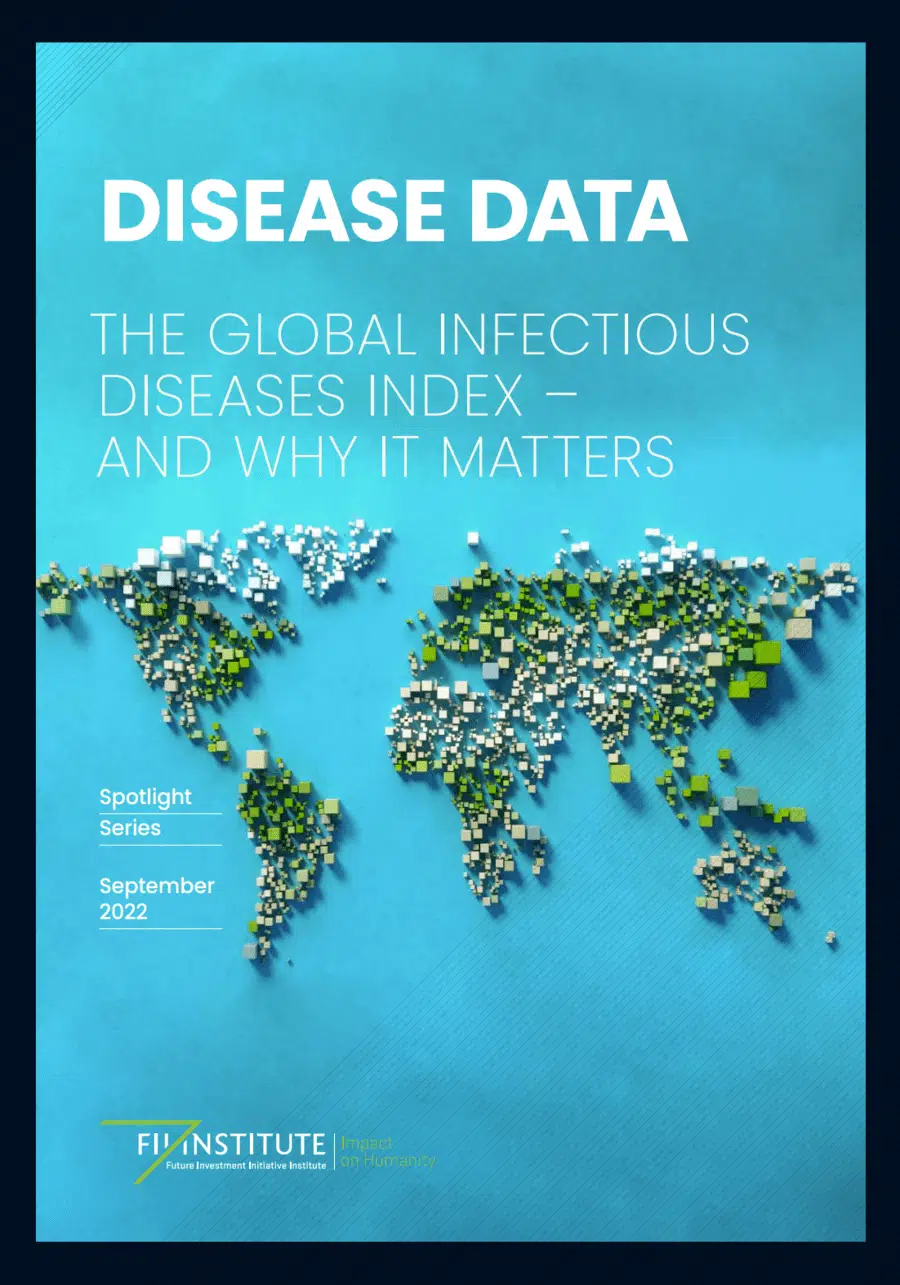
IN SEPTEMBER 2021, THE FII INSTITUTE launched its Global Infectious Disease Index (GIDI), providing valuable information to help health professionals and the general public assess the readiness and vulnerability of global healthcare systems in tackling endemic and emerging epidemic diseases. Since its launch, GIDI has acquired a reputation as a scientifically rigorous and credible resource, unique in its field, that serves as a transparent metric and a unified source of truth for anyone with an interest in infectious diseases.
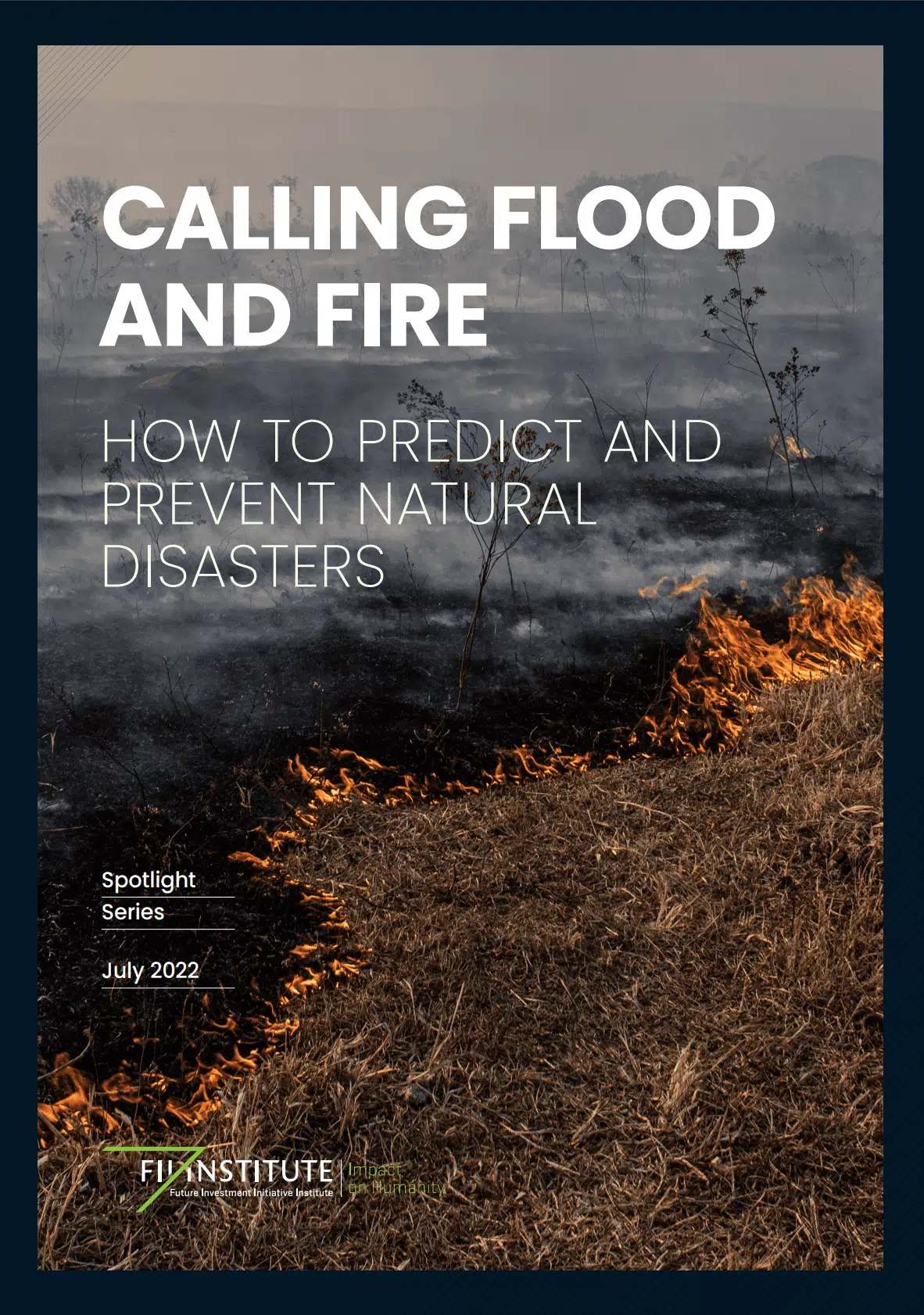
HOW TO PREDICT AND PREVENT NATURAL DISASTERS There is a critical need for better understanding of the behavior of wildfires and the causes of floods – to prevent, if not the disaster itself, at least the loss of lives. To get there, we need a combination of data and science-based monitoring systems with indigenous knowledge, as well as stronger regional and international cooperation.
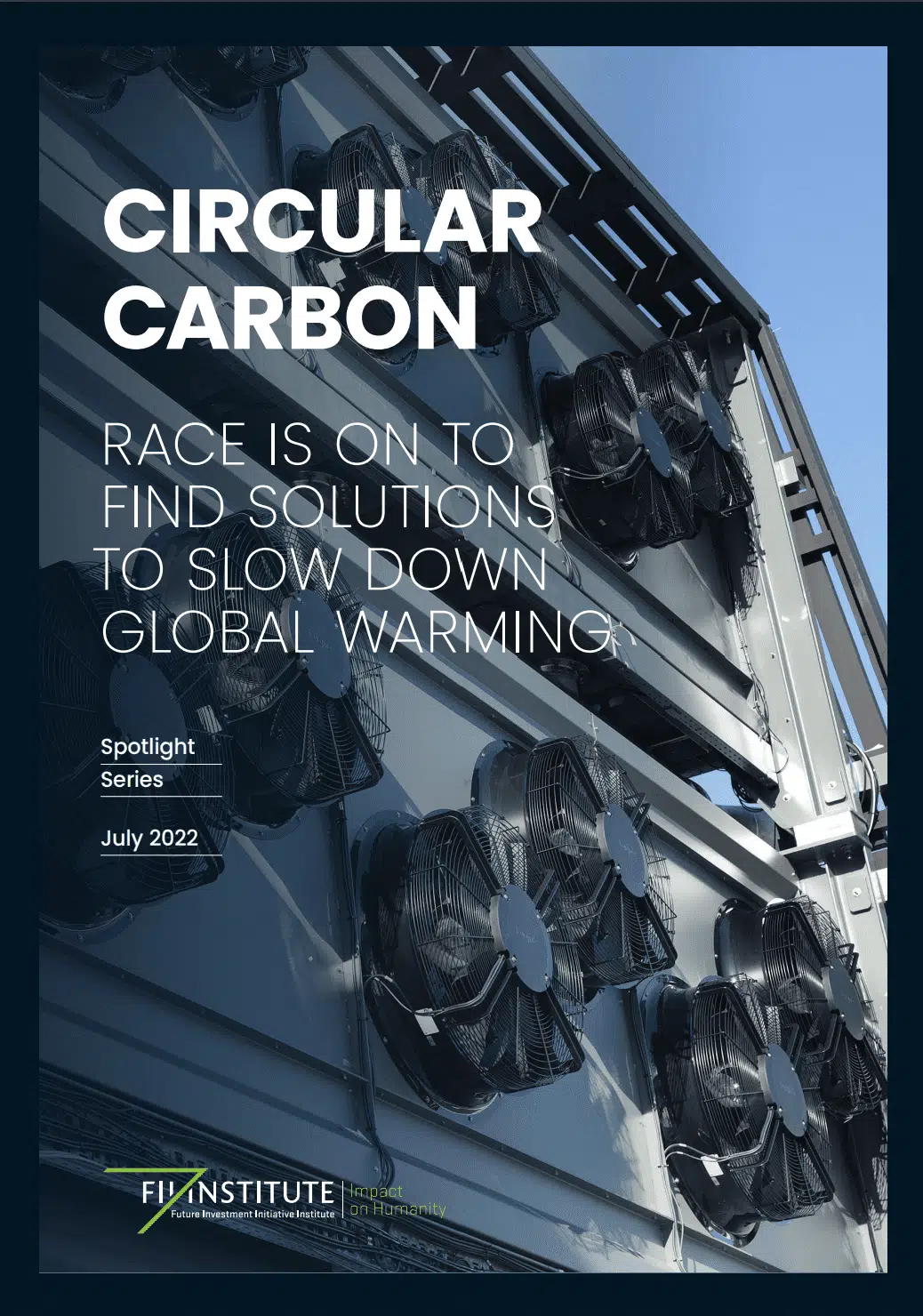
Race is on to find solutions to slow down global warming! TO SLOW DOWN GLOBAL WARMING WE NEED TO REMOVE CARBON FROM THE AIR Numerous methods have been identified, both natural and technological, for extracting carbon dioxide from the atmosphere. Experts are urgently investigating their viability, relative costs and potential trade-offs, synergies and downsides.
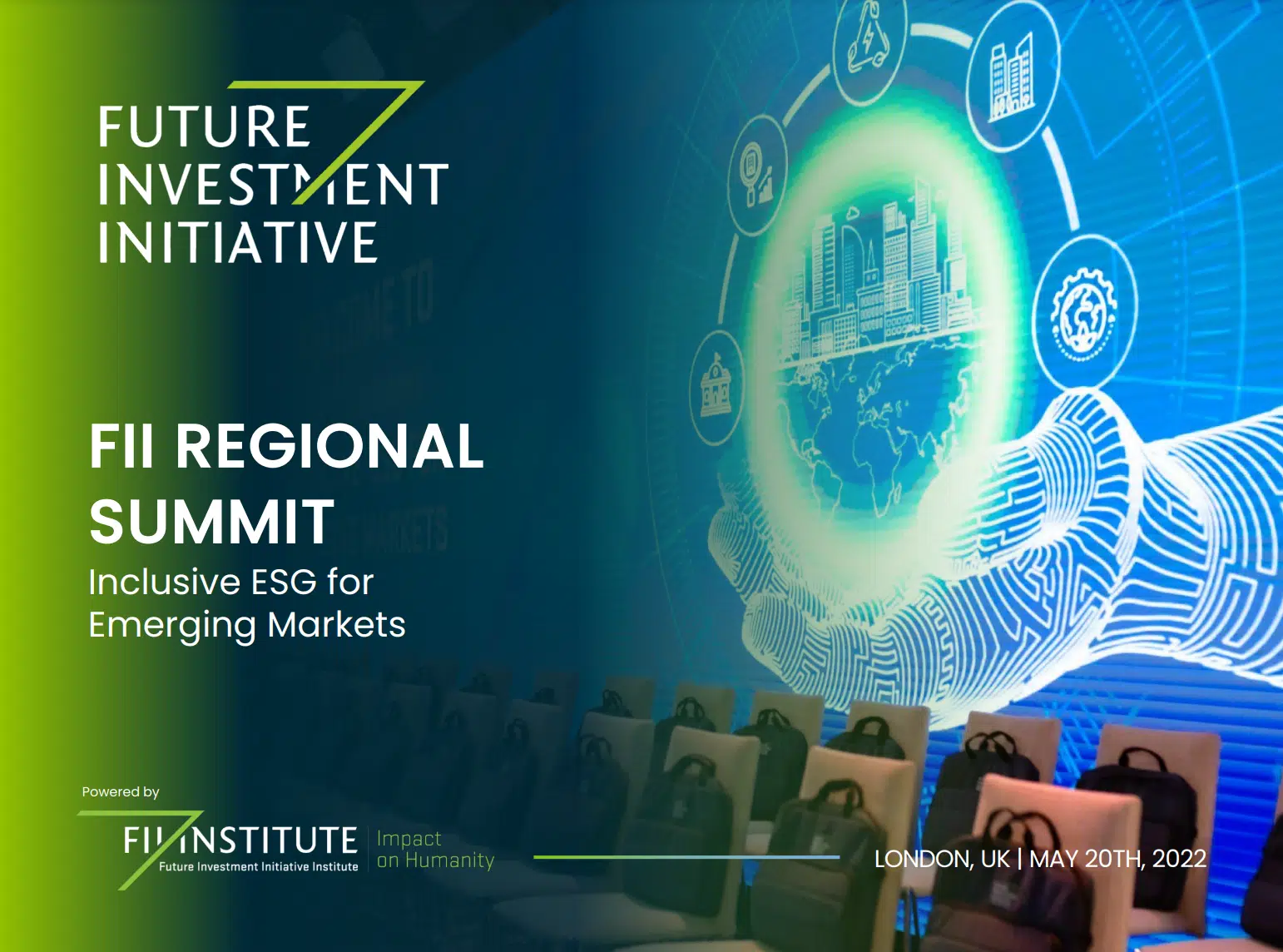
WELCOME REMARKS FROM THE CEO OF FII INSTITUTE If the planet has huge problems – its temperature has warmed up to ice-cap-melting levels and its accelerating loss of animal and plant species has been described as a sixth mass extinction – it also potentially has significant resources to devote to these problems. To stave off […]
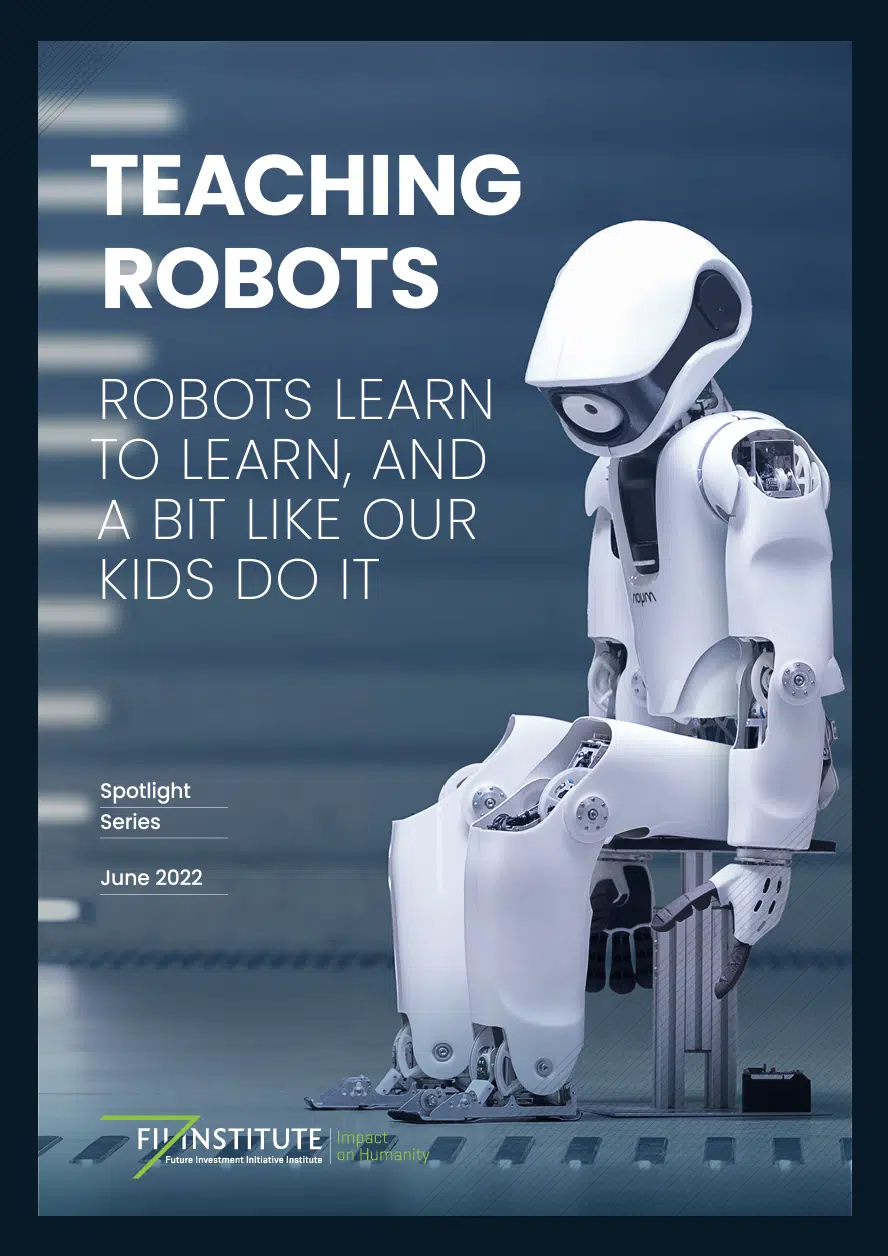
Can machines learn to walk and act in the real world in a similar way to how children do it? Starting from scratch, watching, copying, trying, failing, retrying? Learning to move is not as easy as learning to think – but the robots are getting closer.
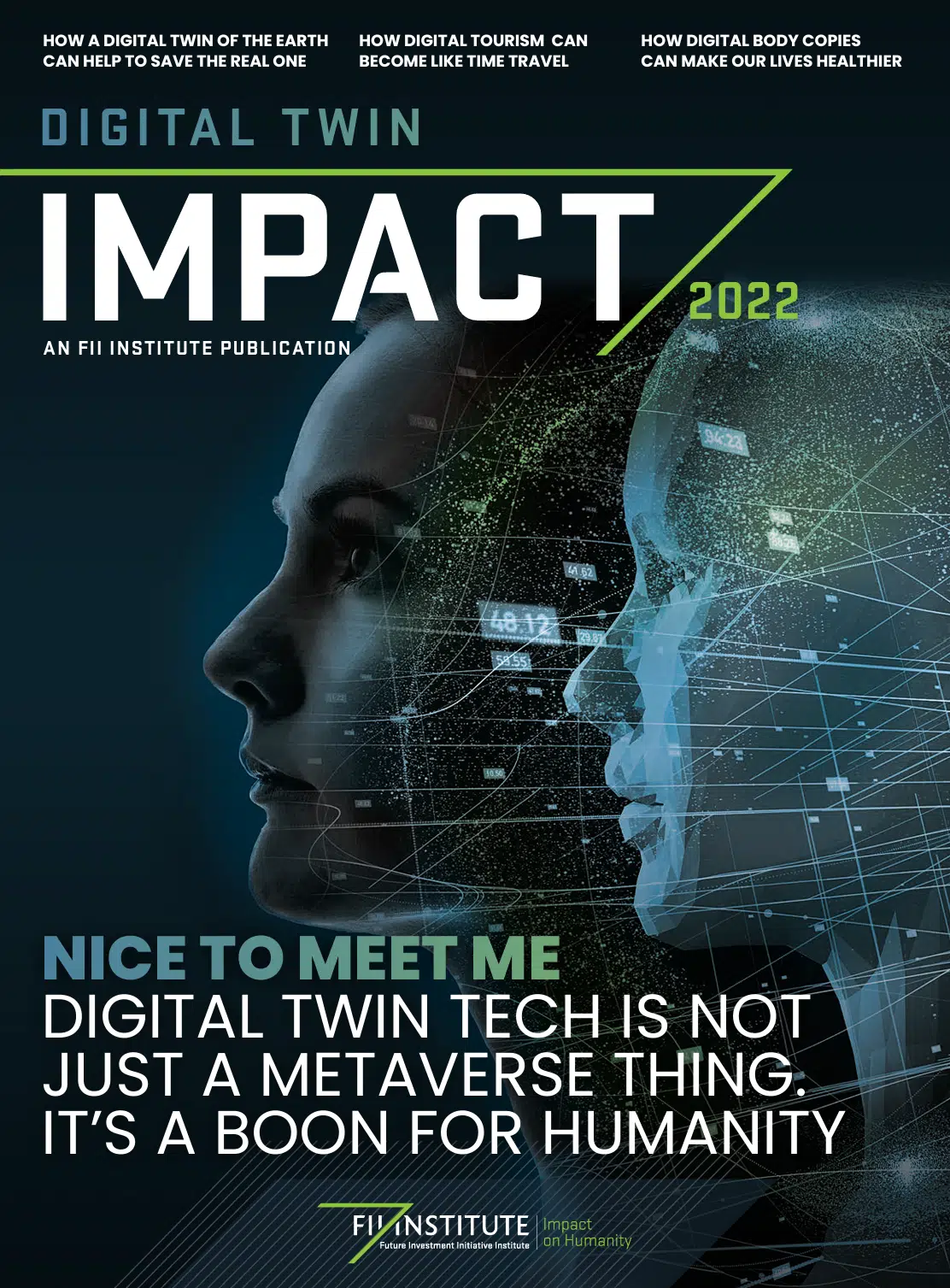
A digital twin is the virtual version of something that happens or exists in physical space – whether a process, person, or object. The digital twin operates in the same way as their physical relative, and in real time, coded as a virtual model to carry out the same tasks or think in the same way. The concept of the digital twin has now moved out of industry and into everyday life with the rise of the Metaverse, as we start to see digital twins of ourselves likely to live, work, and play within it.
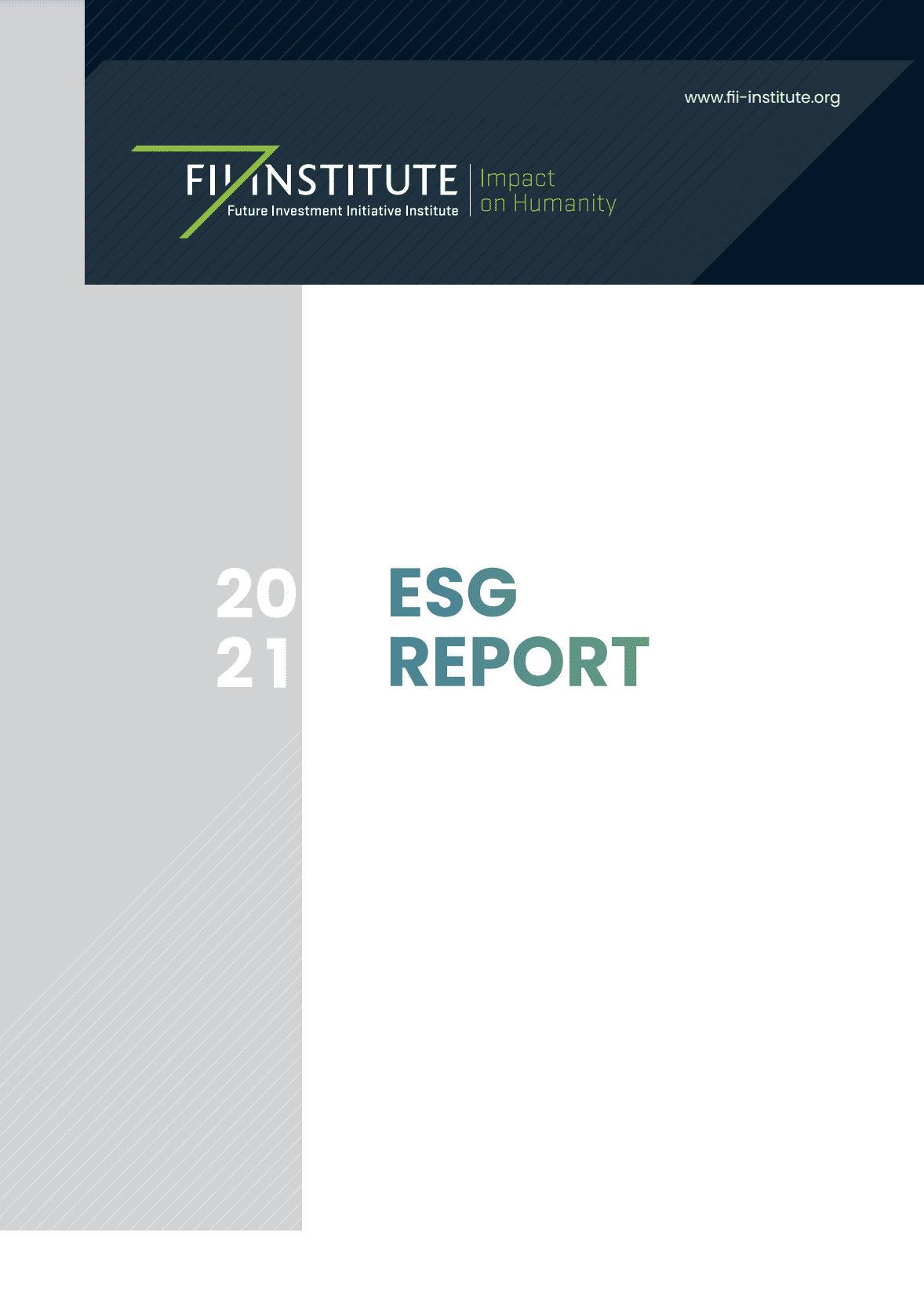
As we continue to battle a global pandemic, we need to rethink our approach to sustainability. For despite the progress achieved since the 17 Sustainable Development Goals (SDGs) were adopted, and the growing alignment of Environmental, Social, and Governance (ESG) principles with the SDGs, achieving just and inclusive sustainable development remains one of the major global challenges of our time.
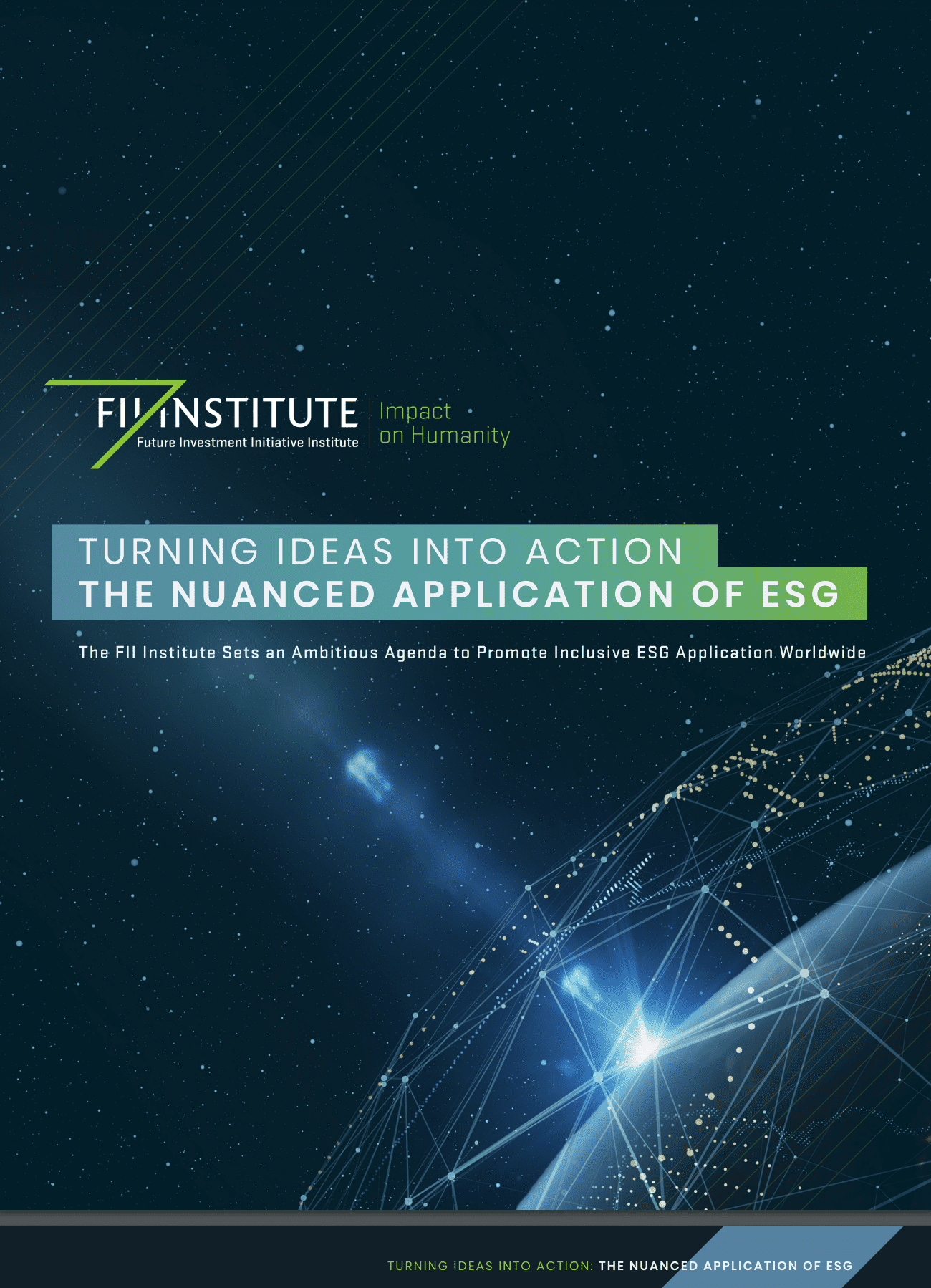
Nuanced ESG application was a dominant theme at the FII Institute Series inaugural ESG virtual event help on the 15th of April 2021. Speakers gathered virtually from around the world agreed that the tipping point for ESG in the global marketplace has passed. Today’s challenge is how ESG standards can be refined, standardized, and deployed across global markets to achieve maximum pact for society and the environment.
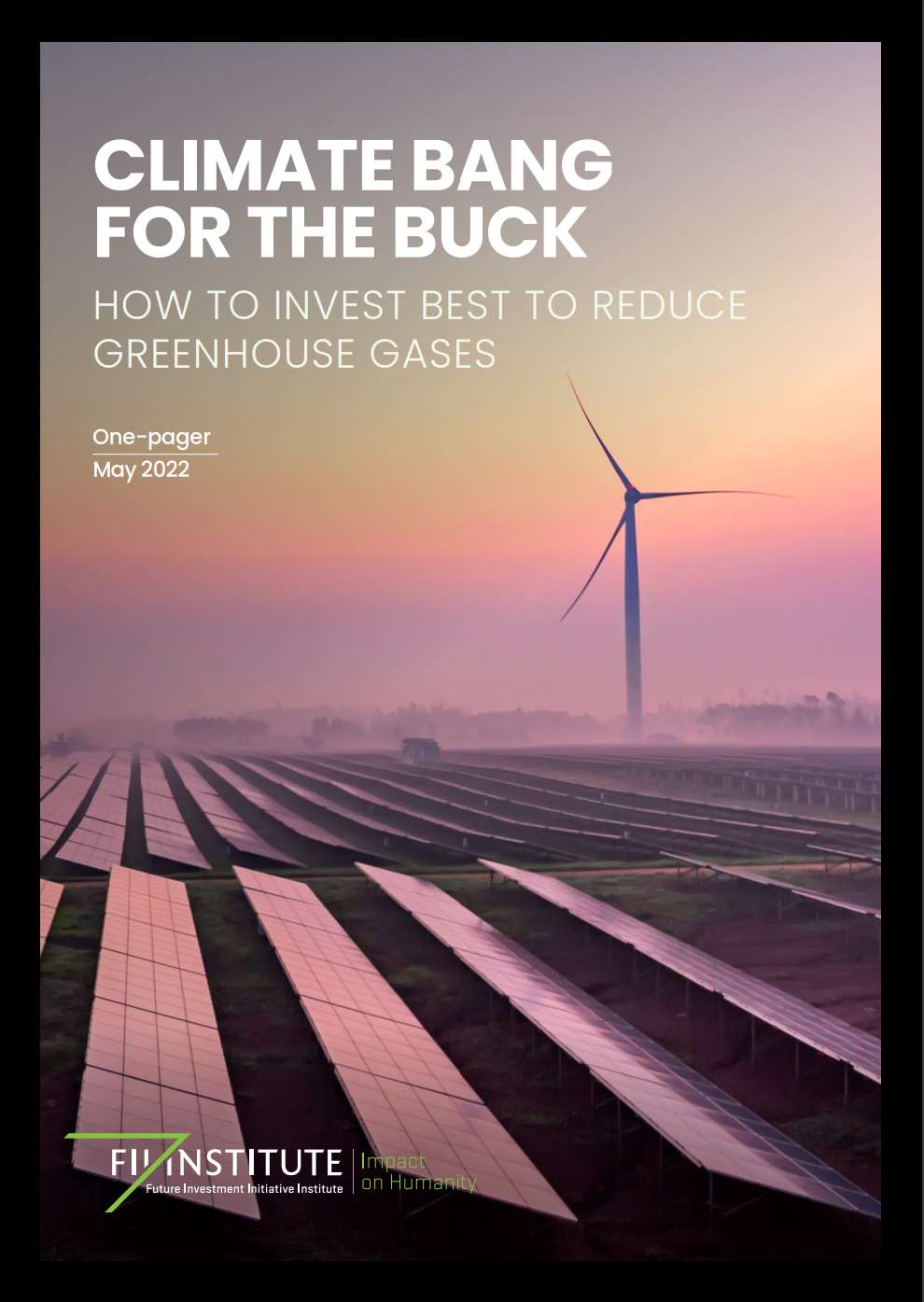
Resources are scarce, and the challenge is huge: To fight climate change as efficiently as possible, we should globally invest in the mitigation technologies that can reduce greenhouse gases most efficiently. But what are they?
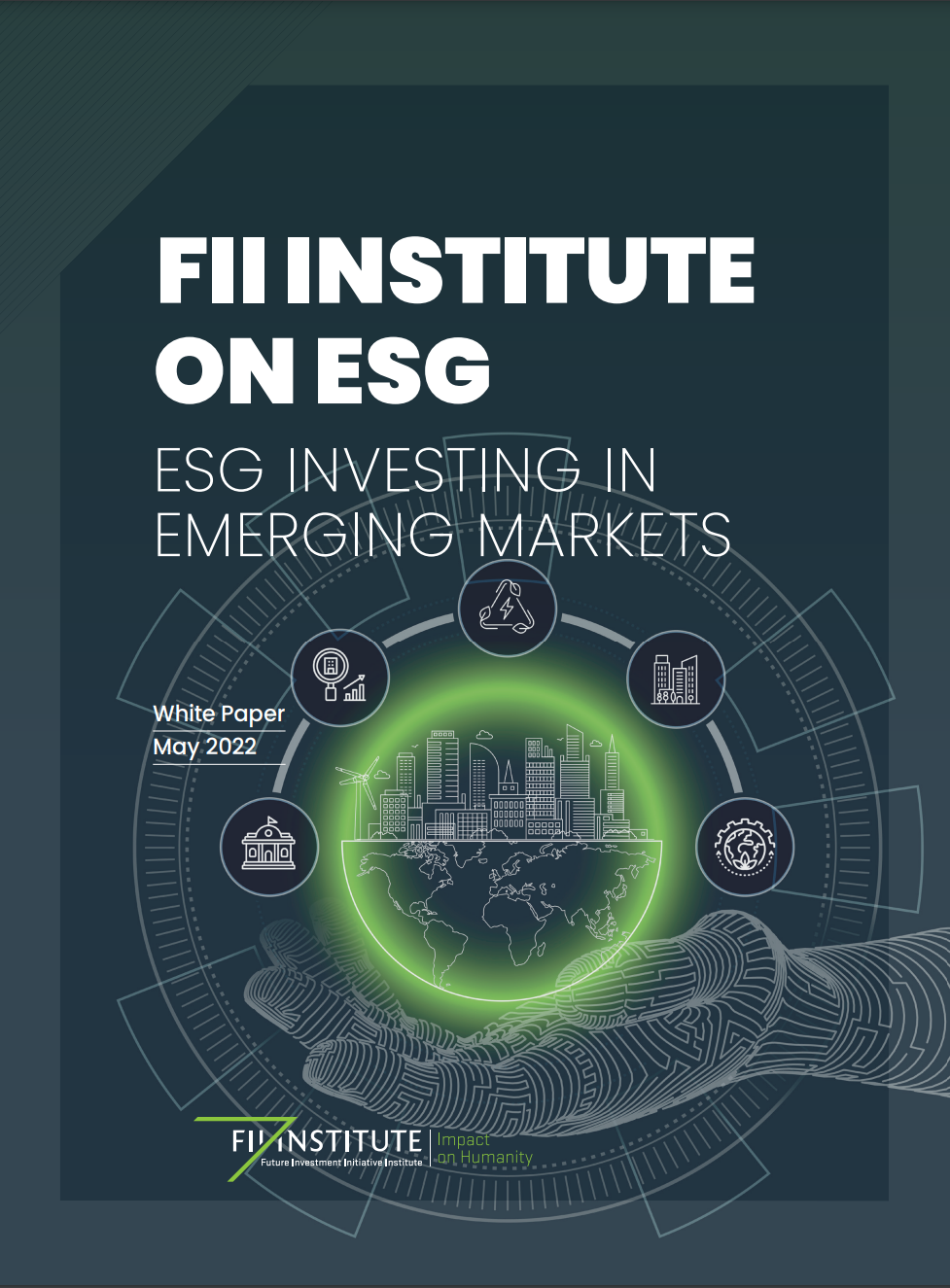
An unprecedented series of recent supply chain disruptions have highlighted the need for alternatives to complex global systems. Fast and versatile, micro-factories the size of shipping containers can make supply chains more resilient and value creation more decentralized – with significant social and environmental benefits.
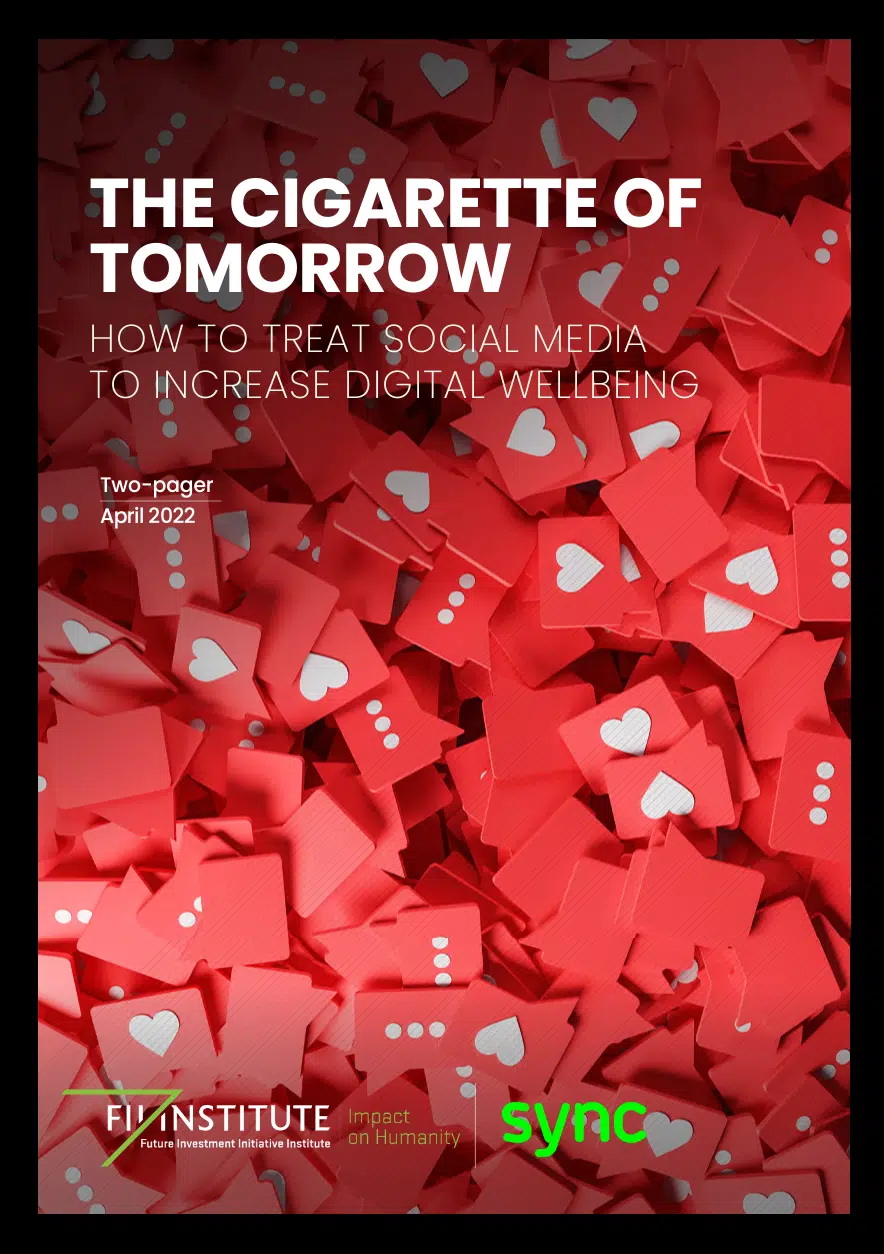
Cyber-Addiction and Cyber-Bullying pose serious risks for the health and wellbeing of the individual – especially for children and adolescents. How can society reduce these risks and increase digital wellbeing?
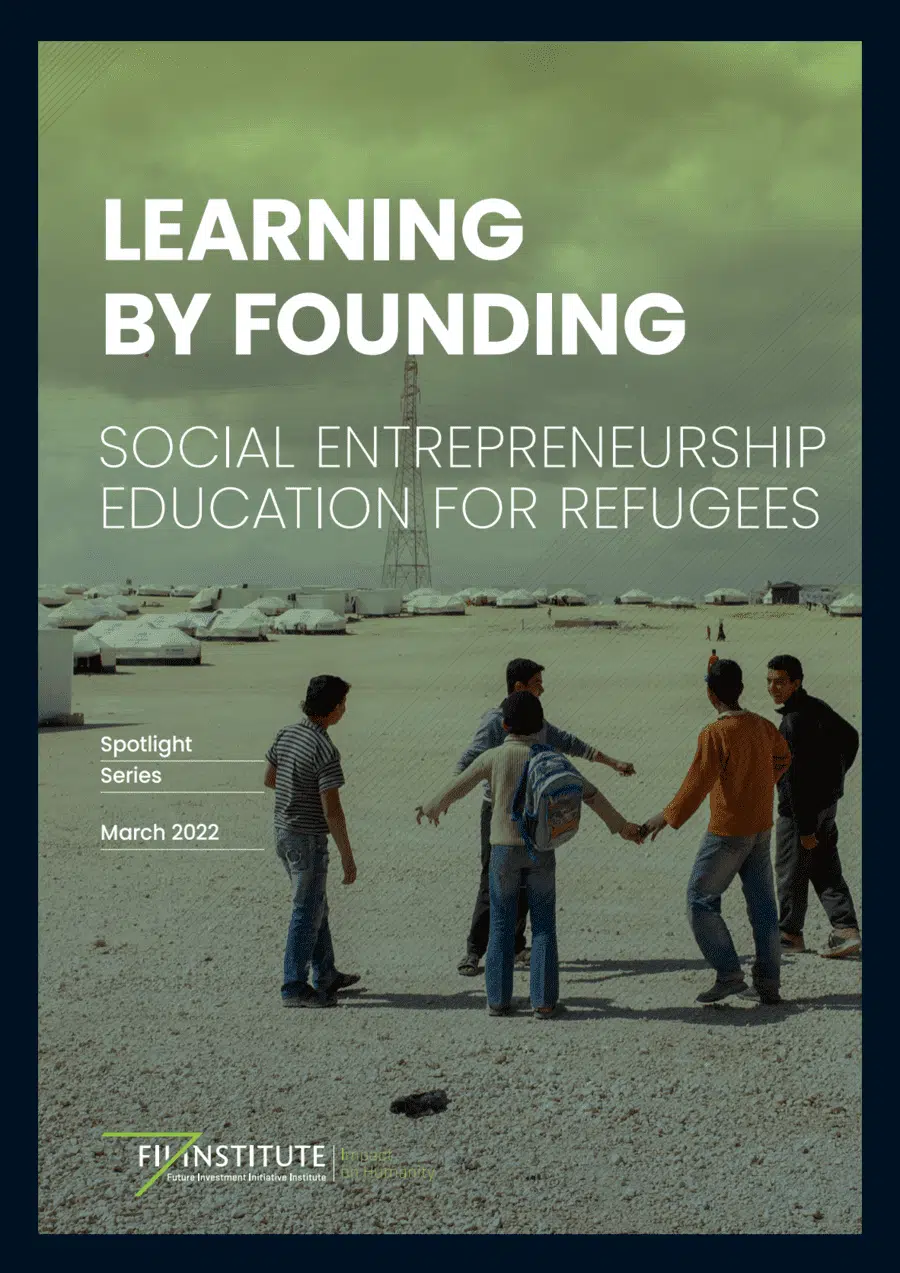
The millions of inhabitants of refugee camps are often seen as people with zero options. And especially the young generation has next to no chances to get higher education and decent work. But entrepreneurship education can change that. Not for profit in the first place – but for a chance
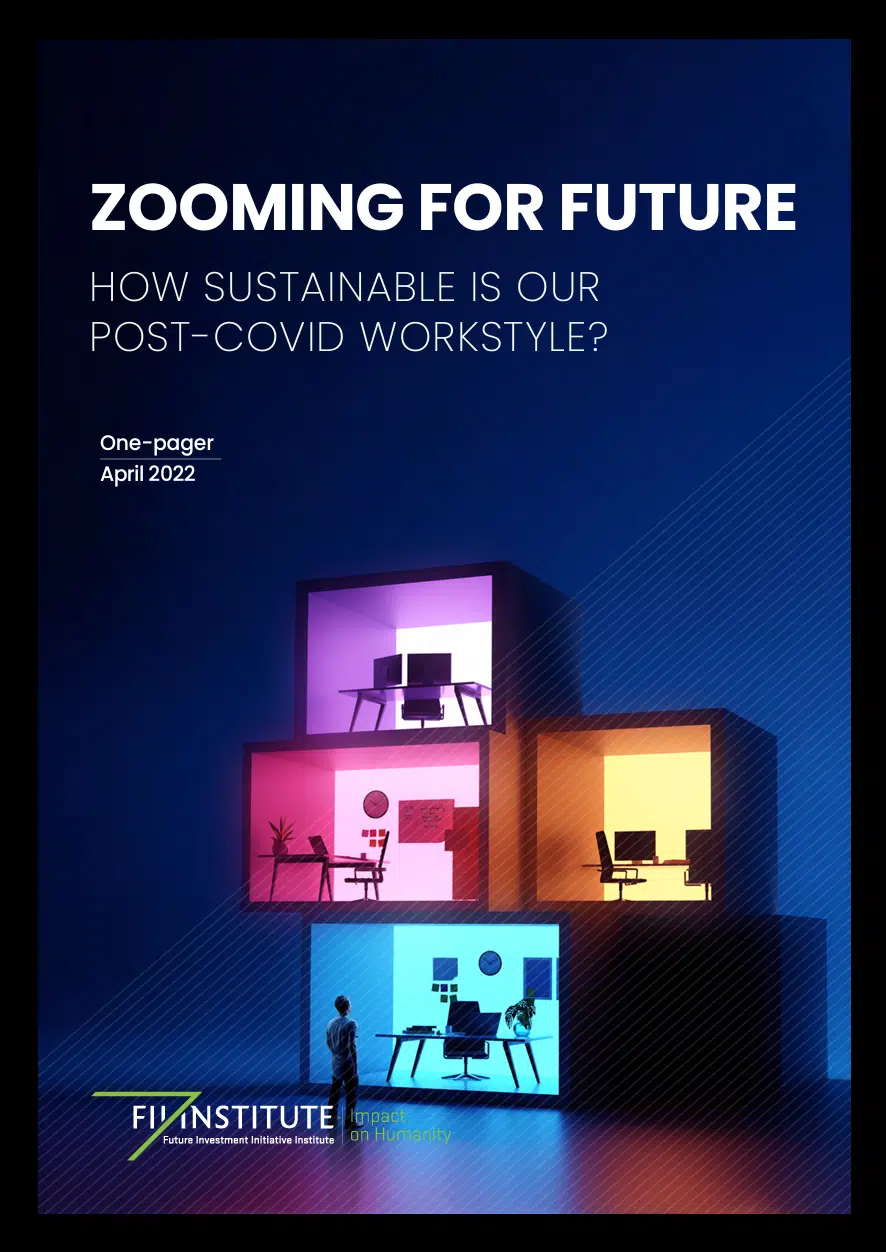
Home offices are far more sustainable than office-offices, we were told during the pandemic. But how much resources does working from home really save? And how sustainable will our post-COVID office-mix be?
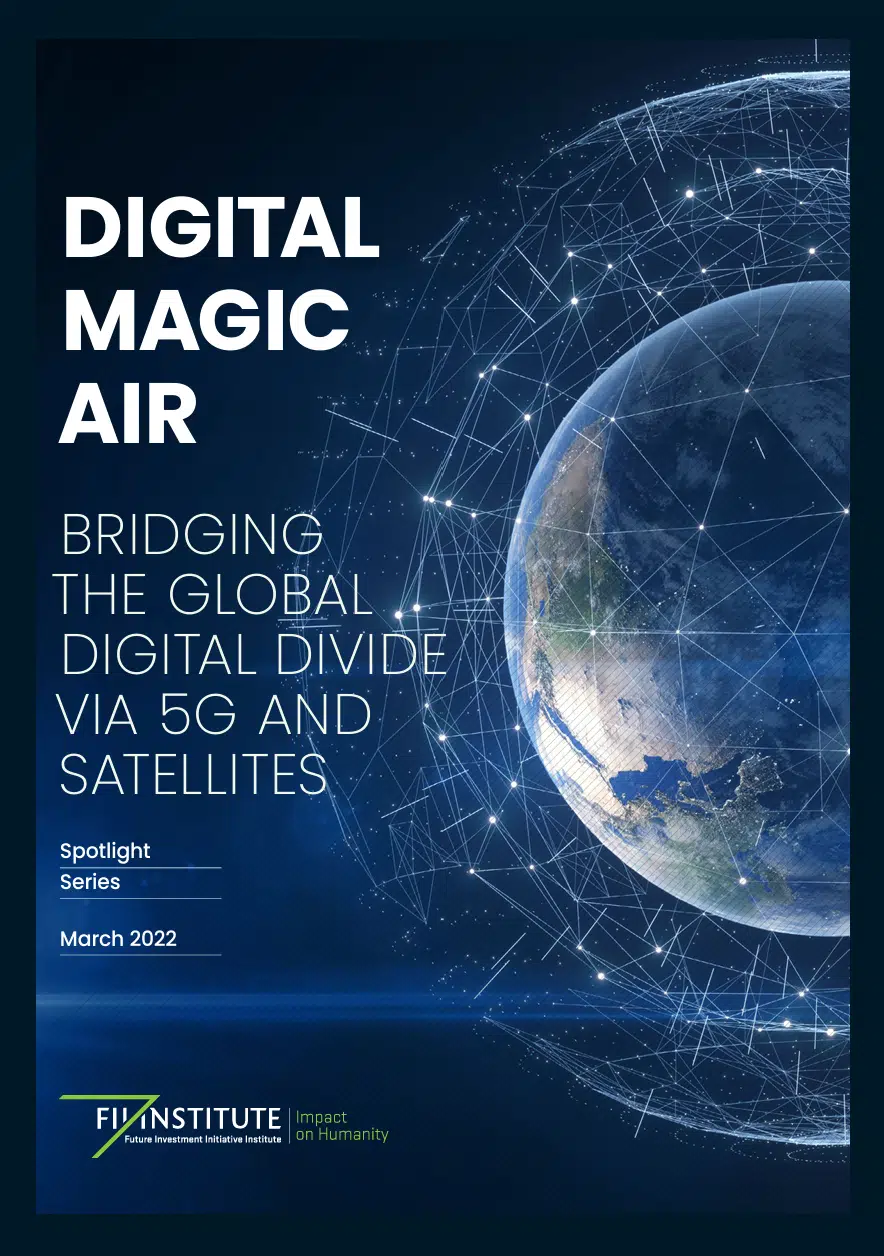
With 5G connectivity the air around us becomes magic – and our individual digital sphere will surround us continuously. And 5G even has the potential to be more than a data playground for the global elites. With a little help from space technology it can bridge the digital divide and create a level online playing field for humanity
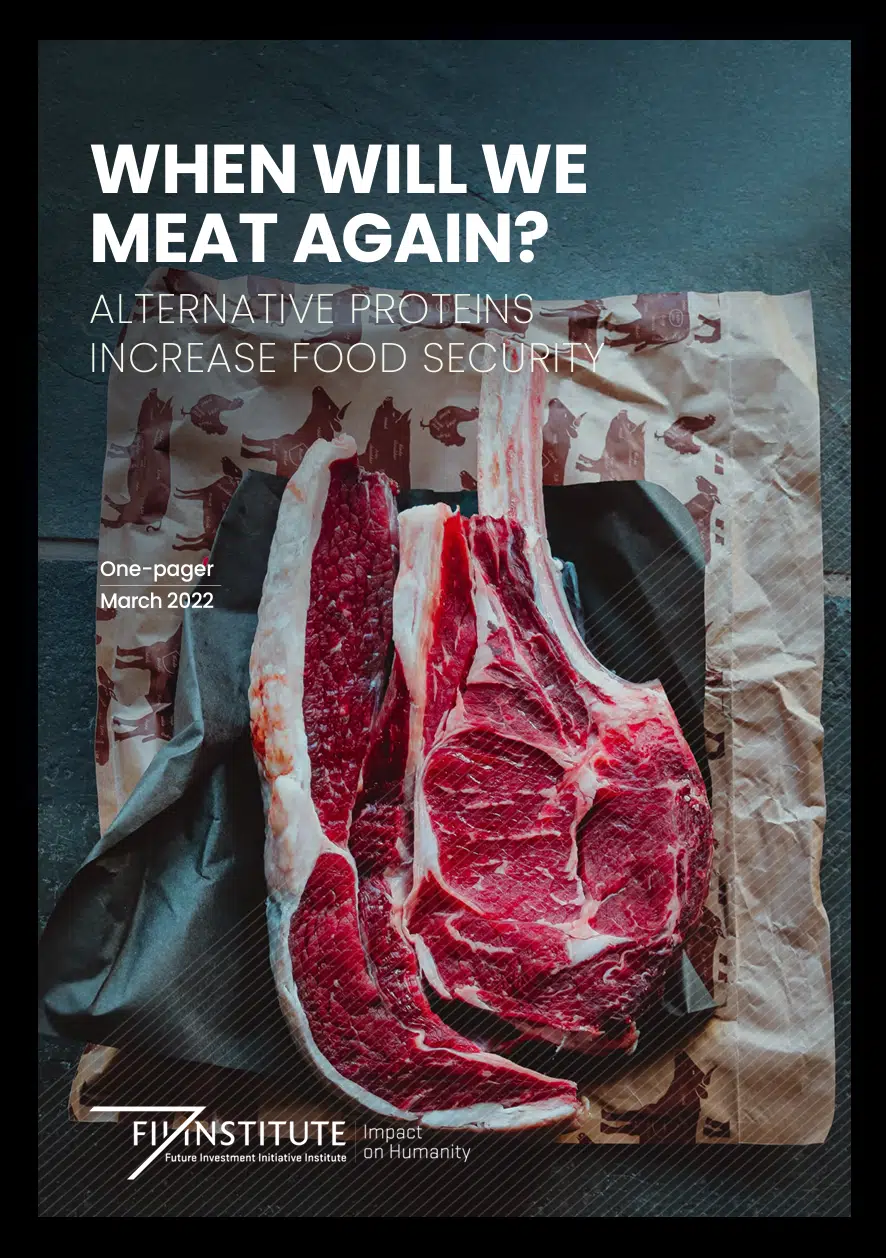
With skyrocketing food prices, the livelihood of billions of people is at risk. Plant-based alternatives to meat and milk can increase food security by decreasing livestock feed. The time is ripe for massive upscaling of meat and milk alternatives – and an equally massive down-scaling of prices.
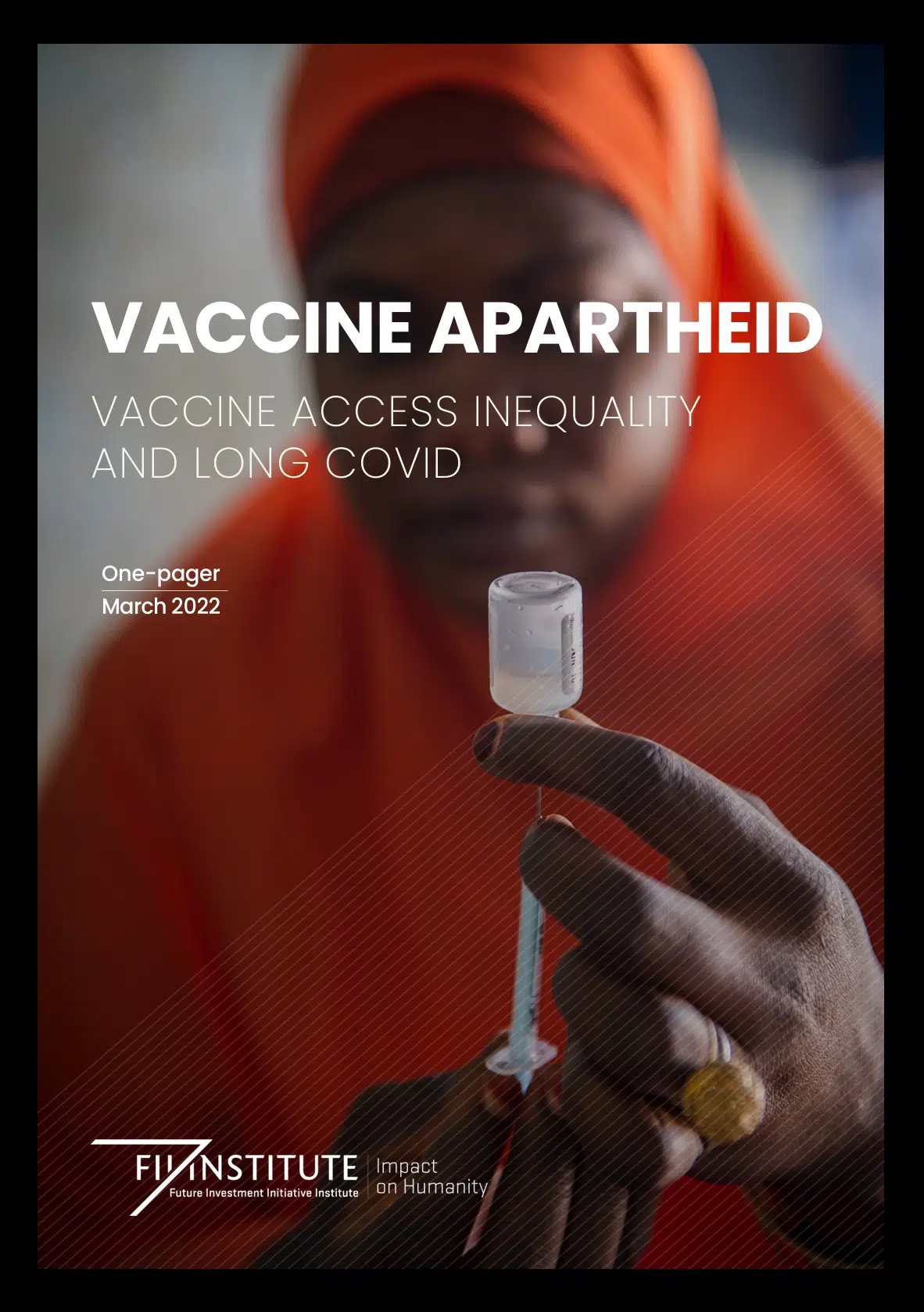
The Covid-19 pandemics offered a great opportunity for the Global community to practice international solidarity. But the opportunity was missed, the multi-national institutions have failed to ensure equitable vaccine access. The prevailing “My-interest-first” policies have reduced the overall efficacy of the vaccination campaign and damaged the trust in global solidarity. International health policy needs a shift to humanity.
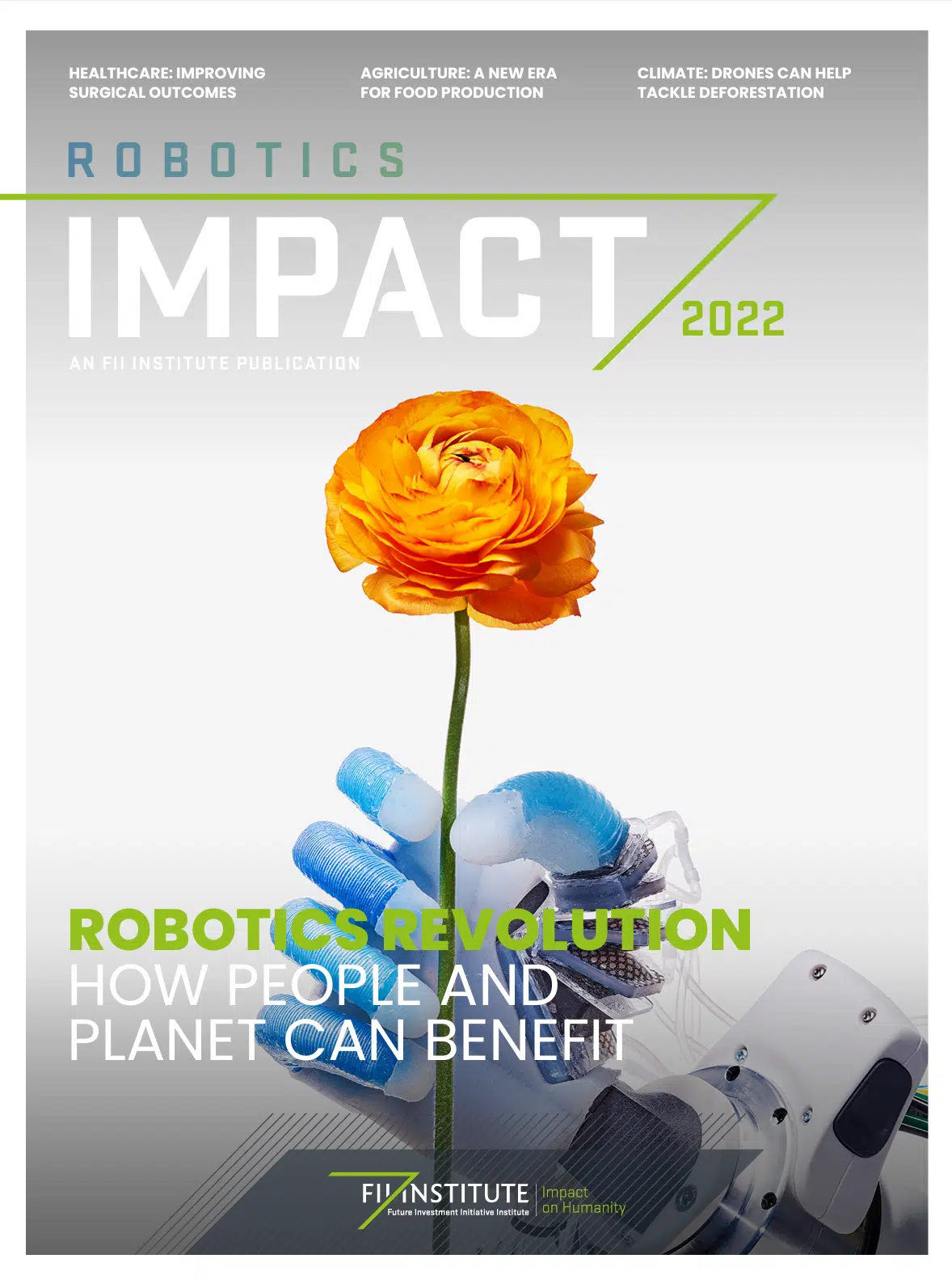
FII Institute publishes its fifth impact report as we enter a golden age for innovation in robotics. In the mid- 20th century, many scientists and writers envisioned the 2020s as full of highly intelligent robots of all shapes and sizes. While this might not have happened quite as imagined, things are now changing fast.
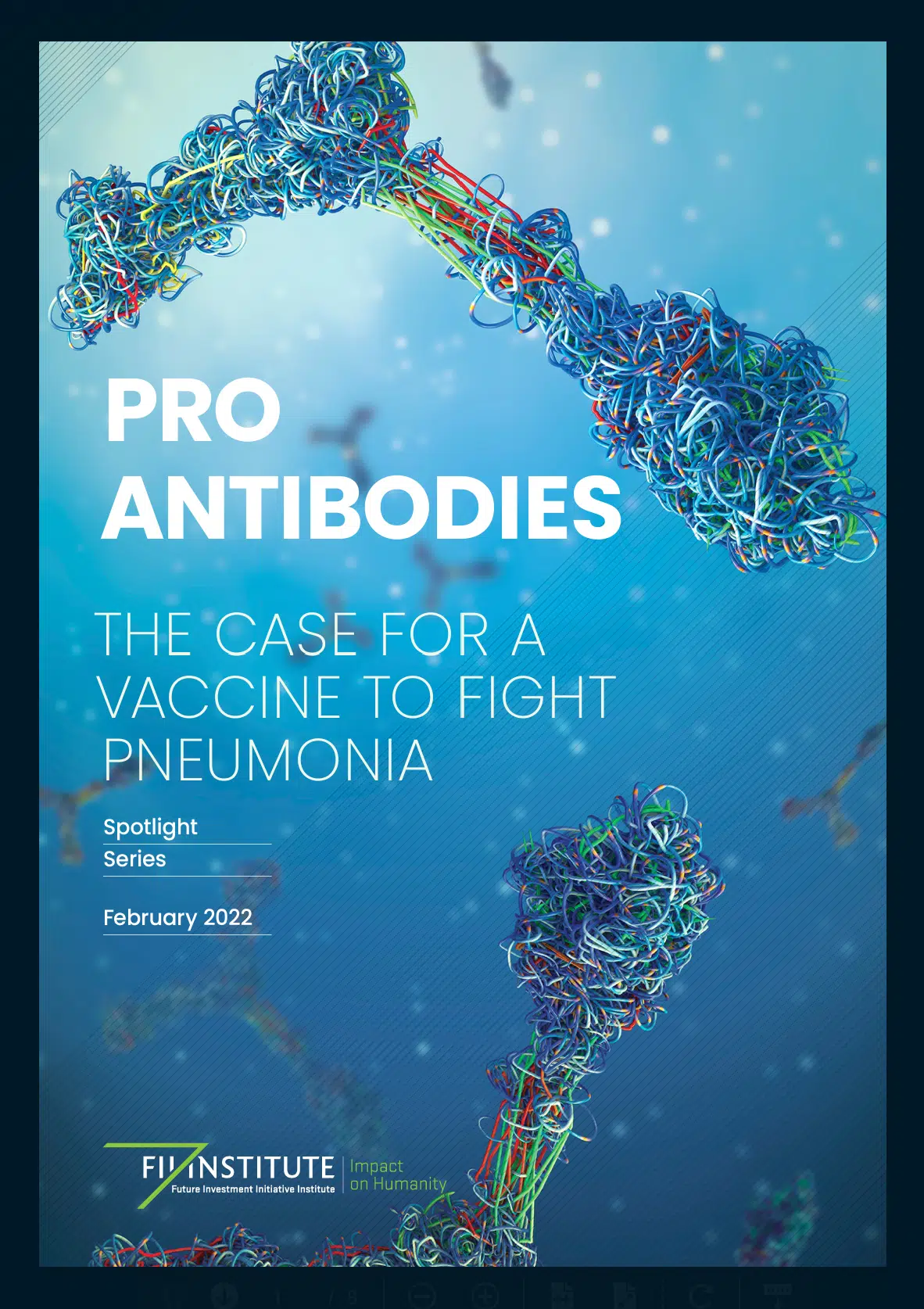
Pneumonia is, in most cases, a curable or preventable disease. But it remains the leading infectious cause of death globally among children under the age of five, disproportionately affecting the most deprived and marginalized. An effective and affordable vaccine is the best way to tackle this global challenge.
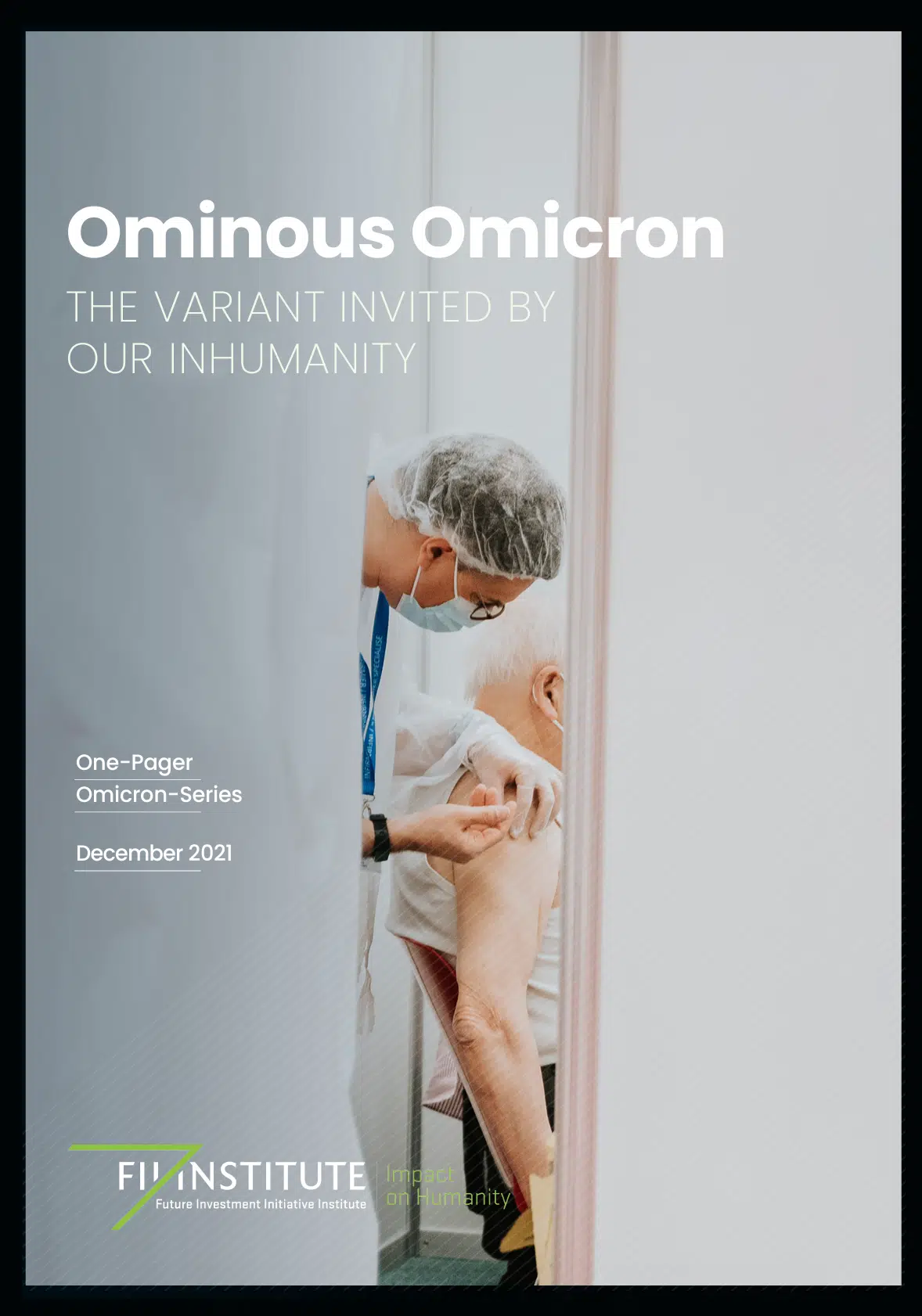
Just as the world began glimpsing the light at the end of the tunnel of an arduous battle against the COVID-19 pandemic - bolstered by the development of several highly efficient vaccines - a new variant of “high concern” as designated by WHO has emerged. And, while the debate continues to rage about the origins of SARS-CoV-2 and how much of it, if any, was human influenced, there should be no doubt that humans shoulder the lion’s share of the blame for the emergence of the Omicron variant.
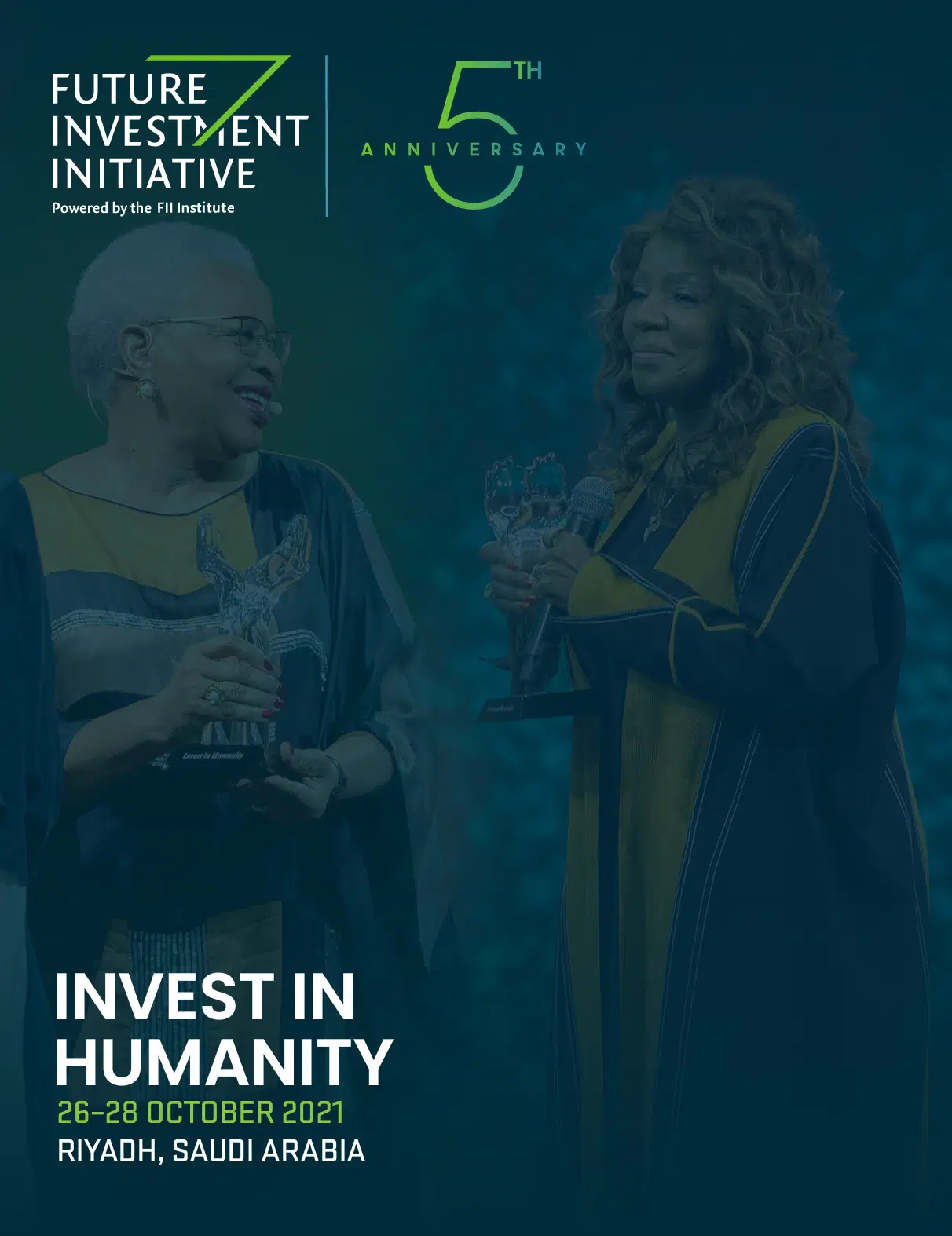
WHAT IS HUMANITY? Humanity bears two distinct yet complementary meanings: the adjectives “human” and “humane” reveal the complexity of a notion that is both scientific and spiritThe Future Investment Initiative has come a long way in its first years, and this 5th anniversary showed, that it will continue on its dynamic and impactful journey, The success of FII to date is testament to the eagerness of the private and public sectors to play an active role in addressing the issues we face as a global commu-nity. By leveraging the enormous economic opportunities that will lie ahead in the post-Covid era, we will also catalyze the changes needed to achieve an equitable, prosperous future for all. HE Yasir Al-Rumayyan, Chairman of the FII Institute Board of Trustees.
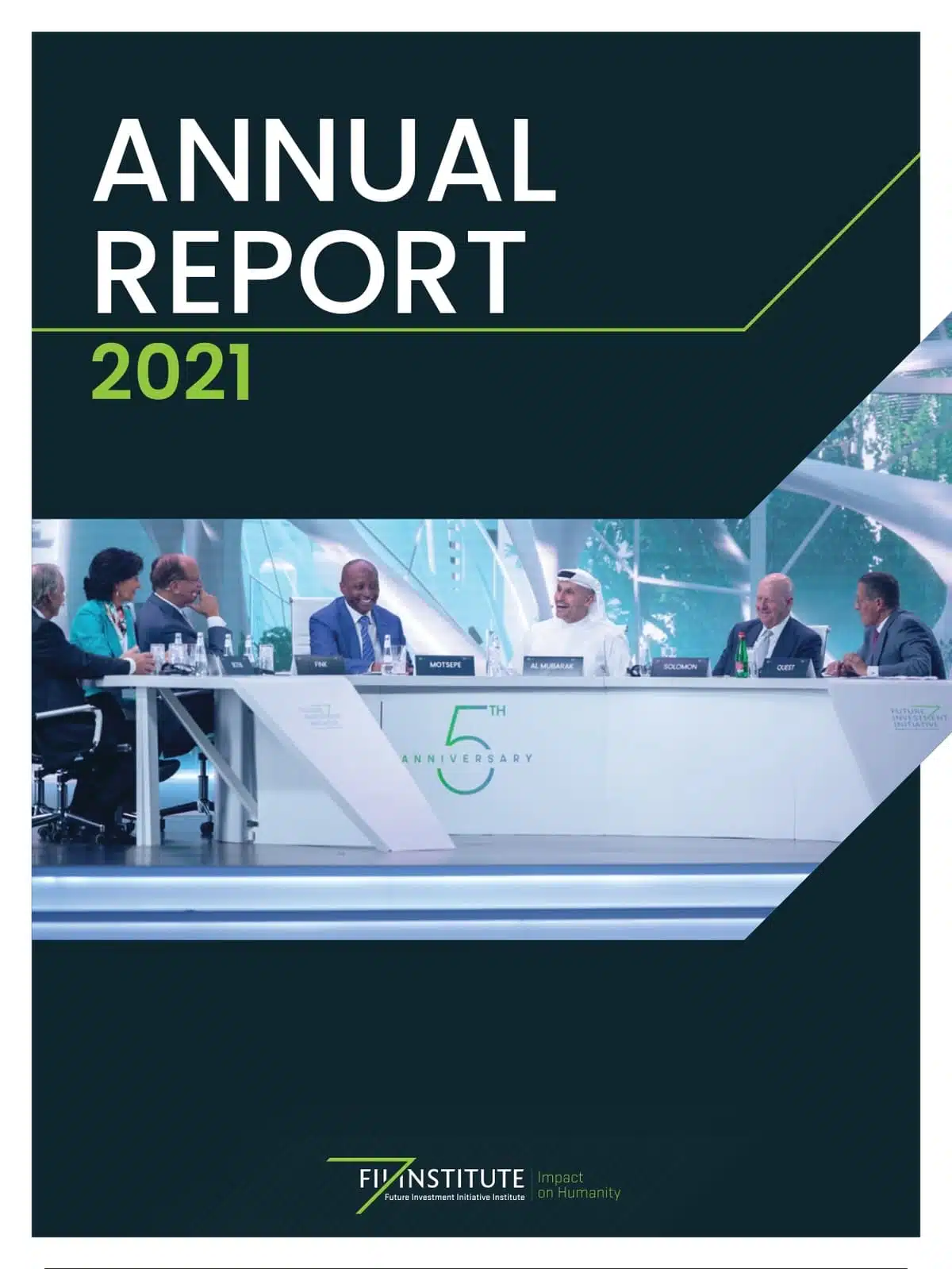
Explore the FII Institute's 2021 accomplishments and their commitment to global impact solutions.
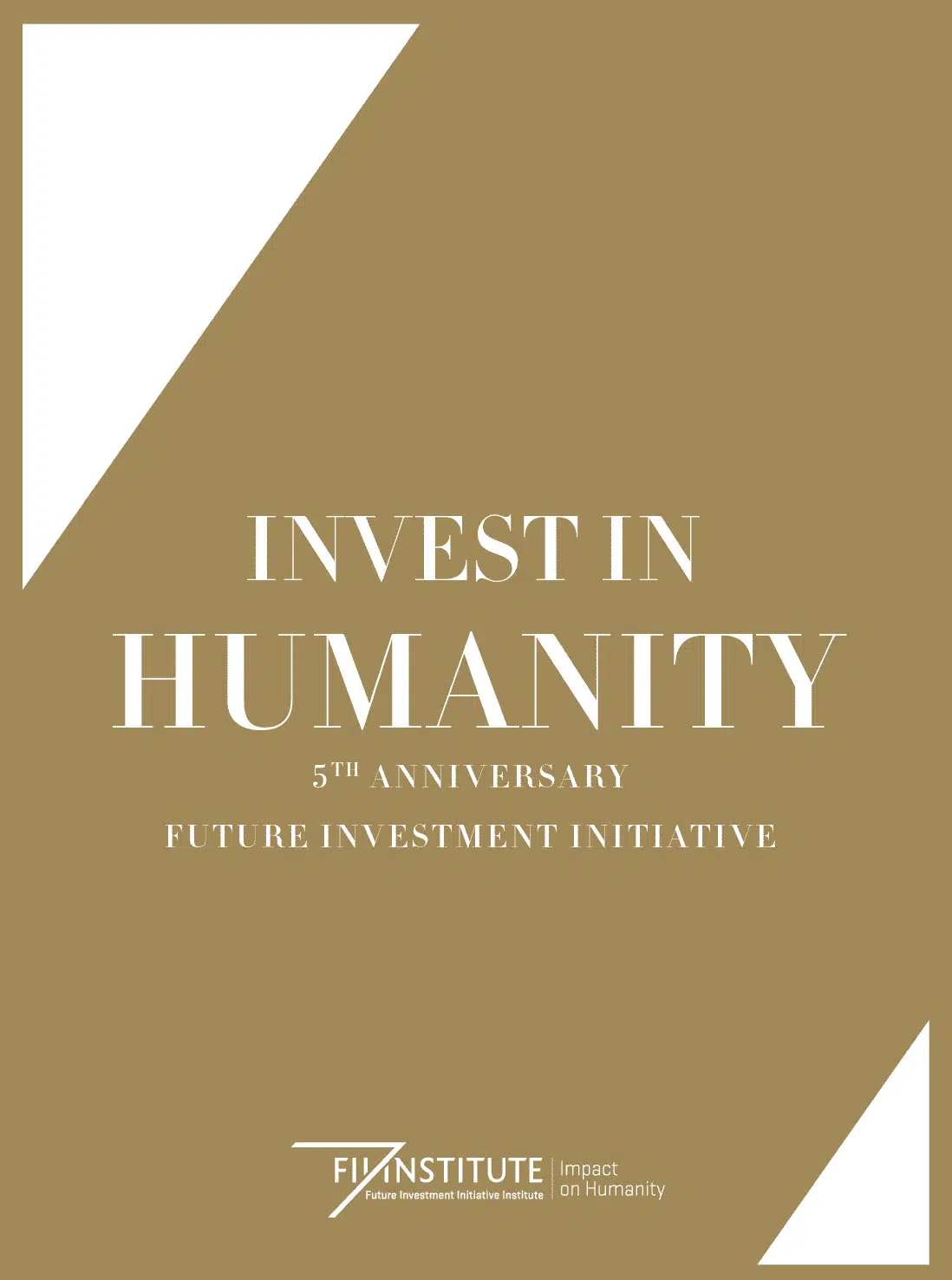
WHAT IS HUMANITY? Humanity bears two distinct yet complementary meanings: the adjectives “human” and “humane” reveal the complexity of a notion that is both scientific and spiritual.
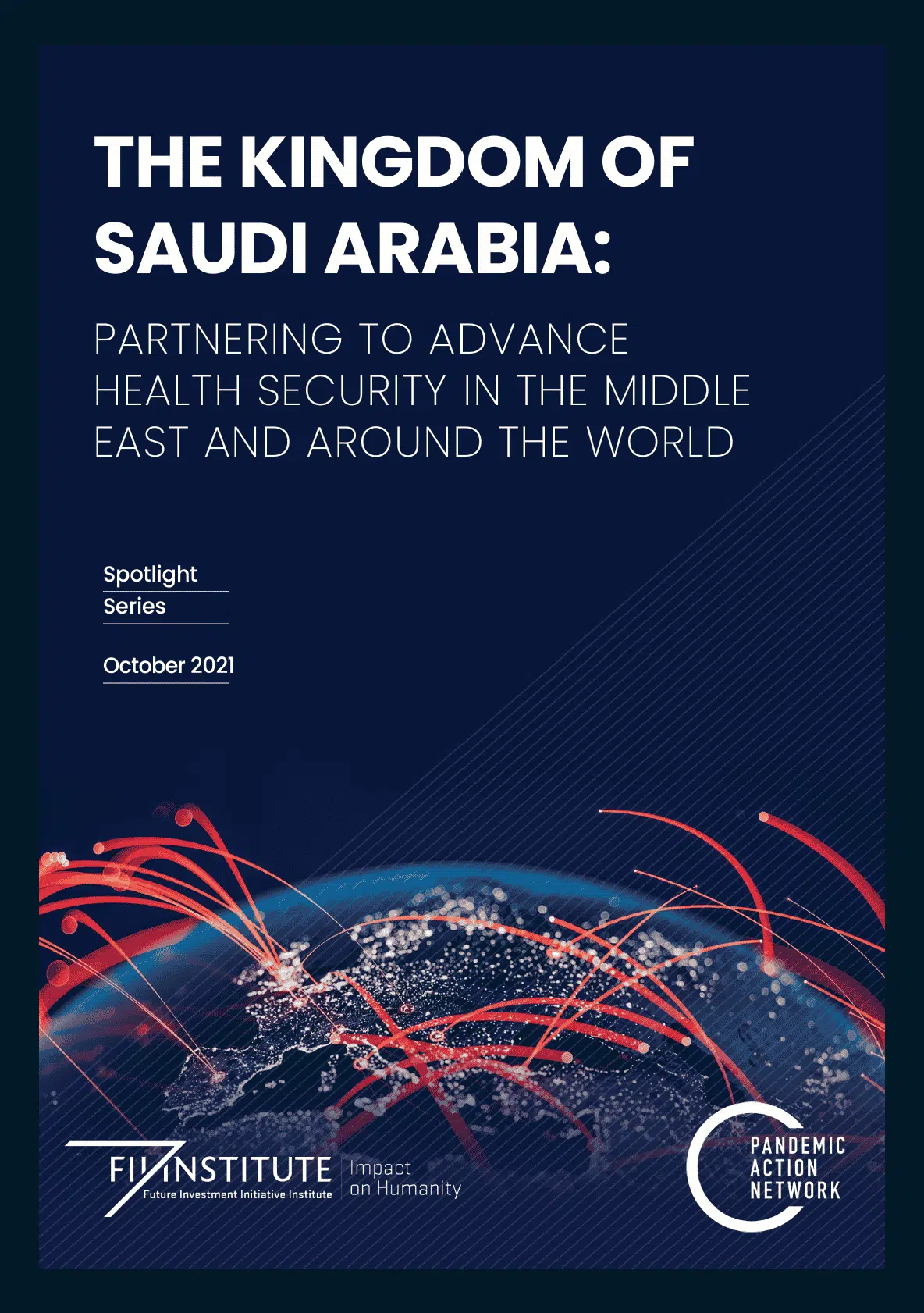
As previously witnessed with the major outbreaks of West Africa Ebola virus in 2014, Middle East Respiratory Syndrome (MERS) in 2012, and Zika in 2016, emerging infectious diseases (EIDs) have too often been neglected or perceived as distant problems. Despite repeated warnings of the increasing threat of epidemics and pandemics, both public and private sector actors have repeatedly failed to prioritize the forward-looking investments, systems, and structures that are necessary to ensure that vaccines, therapeutics, diagnostics, and other medical countermeasures and lifesaving tools are ready to deploy right at the outset of an outbreak to curb the spread of disease before it becomes a global health emergency.
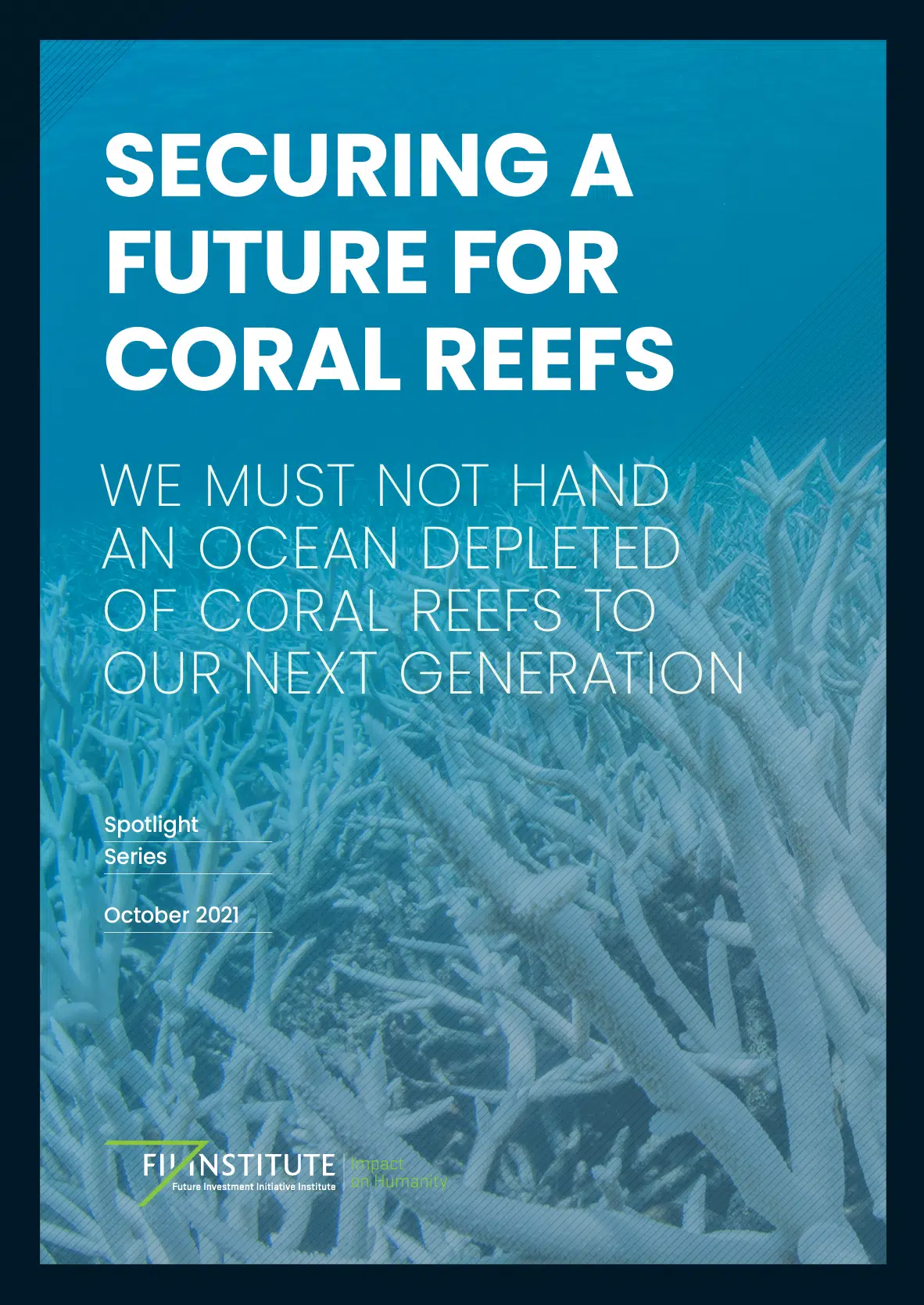
ABOUT TWO-THIRDS OF THE GLOBAL extent of tropical coral reefs has al- ready been lost – 14 percent of that in the last decade alone, largely as a result of cli- mate change. Even if we reach the most ambitious goal of the Paris Agreement, 75–90 percent of those remaining are projected to disappear by 2035. Securing a future for coral reefs requires an all-hands-on-deck effort. We must mobilize scientists, technologists, innovators, policymakers and philanthropists. We need to develop and deploy at scale the next generation technologies and science that will enable us to conserve and restore coral reefs.
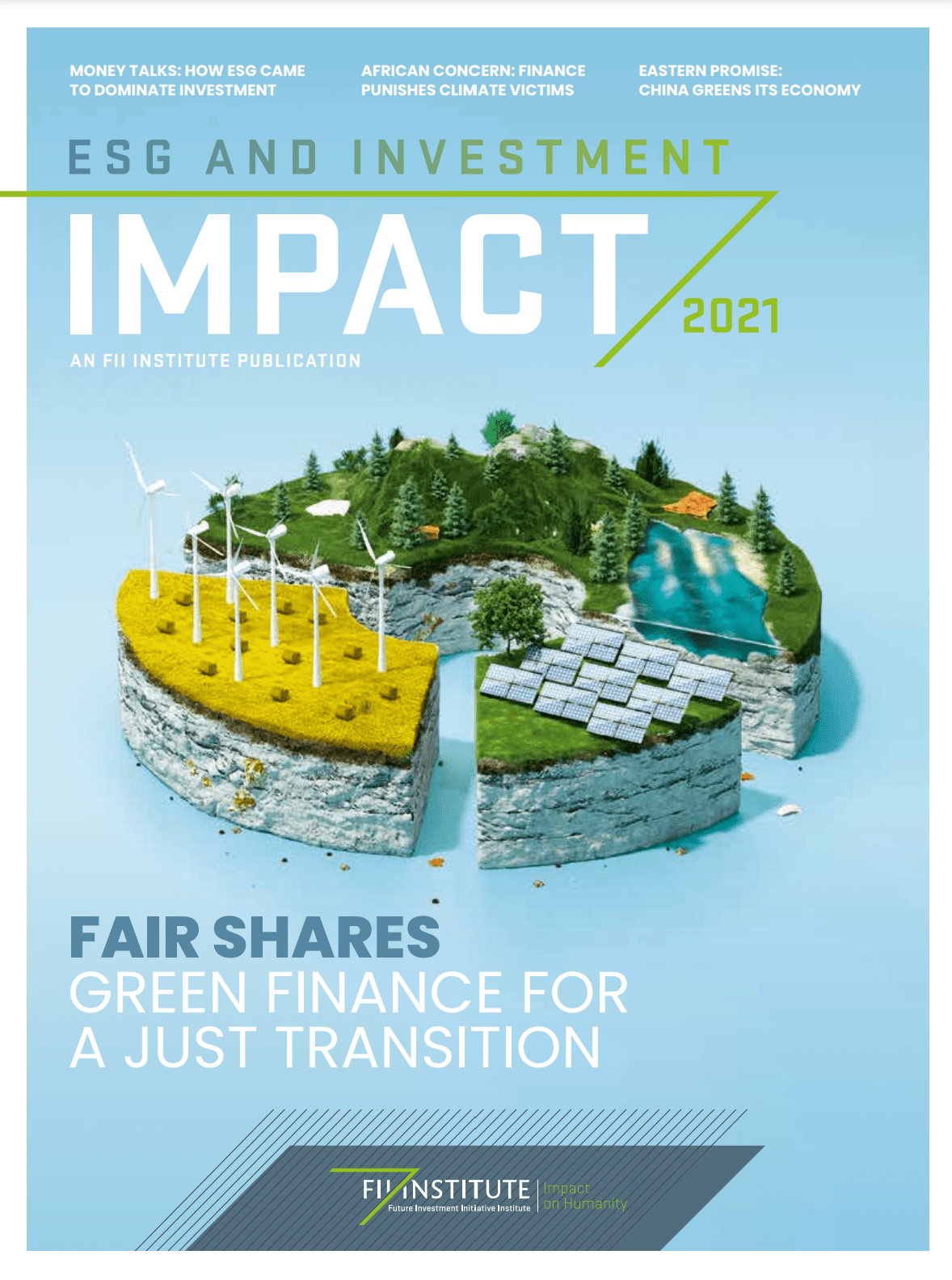
FII INSTITUTE publishes its fourth impact report as the world slowly begins to settle on its “new normal,” the boundaries of which are still being defined. The pandemic has caused tremendous loss and suffering but has also focused attention on the need for concerted action to pre-event and respond to future health and environmental crises.
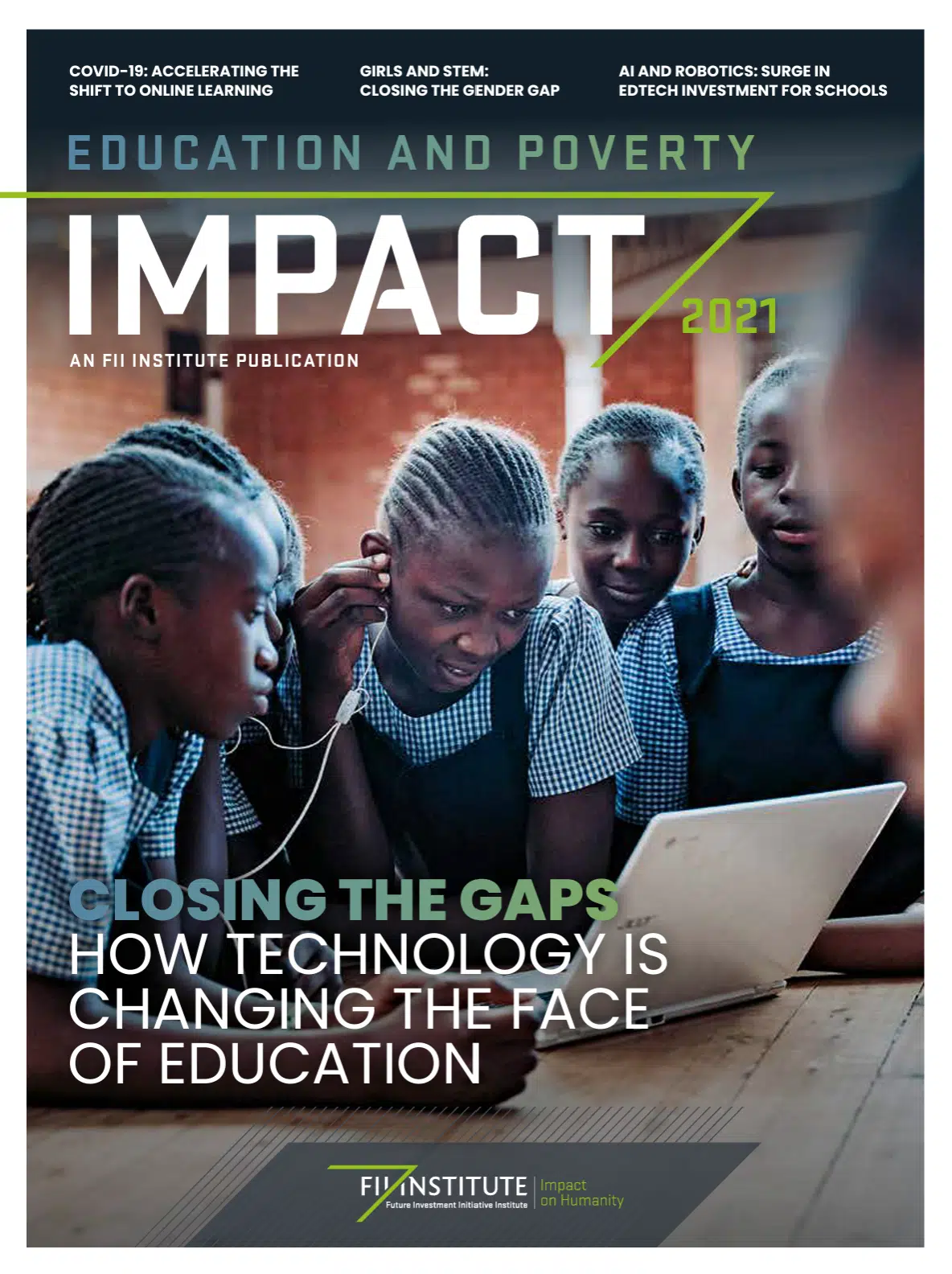
FII INSTITUTE publishes the fifth of our report series as millions of children remain without access to basic education. The digital divide is growing wider between people and regions that have access to modern information and communications technology and those that don’t. It cuts across class, race and national borders, leaving the ‘haves’ with the highest-quality education available, and the ‘have-nots’ with little or no access to quality education.
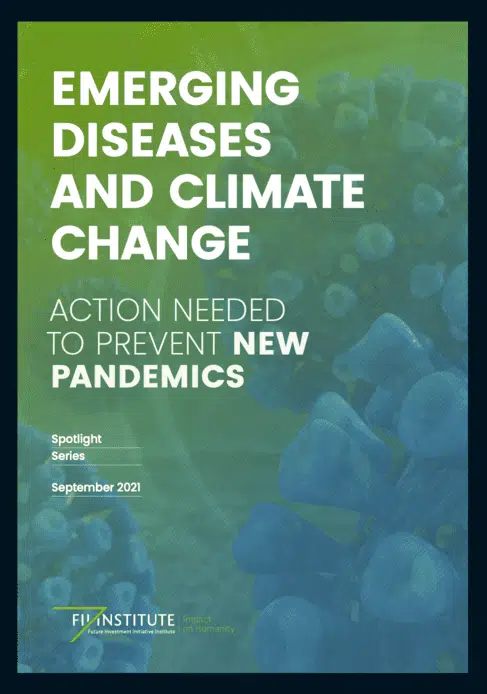
Climate change is a growing factor in the emergence of infectious disease. We need decisive action now to limit global warming, more investment in research to improve our understanding, and “One Health” policies that consider together the well-being of people, animals and ecosystems.
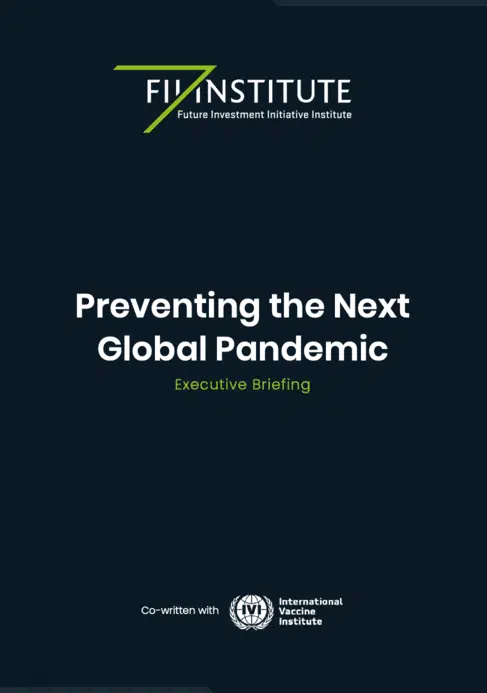
Tuberculosis (TB) is among the world’s most lethal diseases, killing 1.4 million people each year, equivalent to more than 80% of the victims of COVID-19 in 20201 .The majority (66%) of new cases come from 8 developing countries2, but the threat of a global pandemic is real as cases of drug-resistant TB rise3 with a 10% increase between 2018 and 20194. As we emerge from the ravages of the COVID-19 pandemic, we must learn from our mistakes and act now to develop an effective TB vaccine before TB brings tomorrow's global health catastrophe.
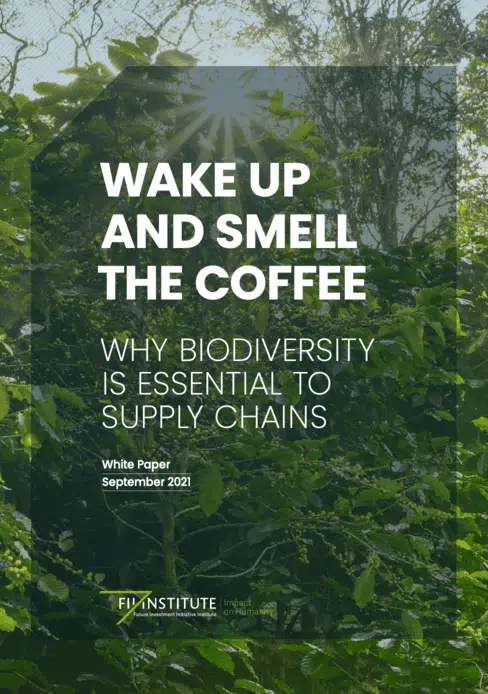
WHY BIODIVERSITY IS ESSENTIAL TO SUPPLY CHAINS ECOSYSTEMS AND SPECIES IN JEOPARDY Deforestation is the greatest threat to biodiversity worldwide and the rate of species extinction is accelerating. But changes to our diet can help to save the planet.
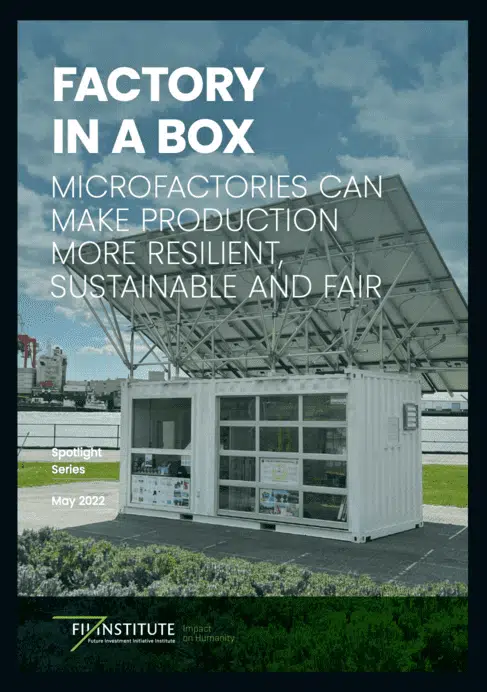
An unprecedented series of recent supply chain disruptions has highlighted the need for alternatives to complex global systems. Fast and versatile, microfactories the size of shipping containers can make supply chains more resilient and value creation more decentralized – with significant social and environmental benefits.
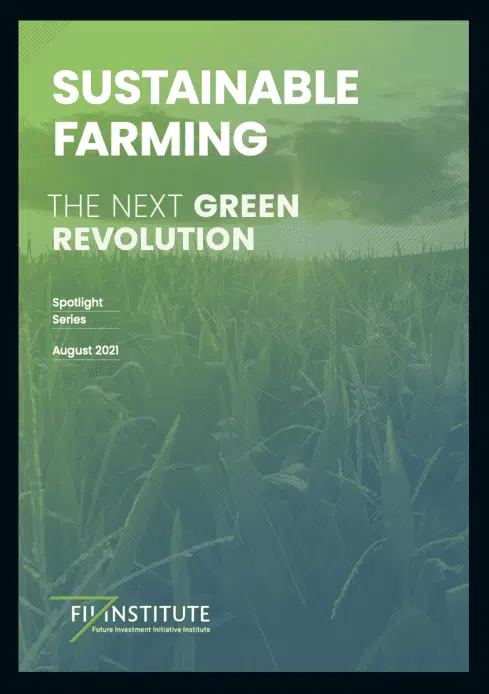
In the Green Revolution of the 1960s and ’70s, high-yield crops and agro-tech dramatically increased land productivity and food output. This time it’s different: To feed a growing population and to cope with harsh environmental constraints, agriculture must increase resource productivity and sustainability. This requires a New Green Revolution.
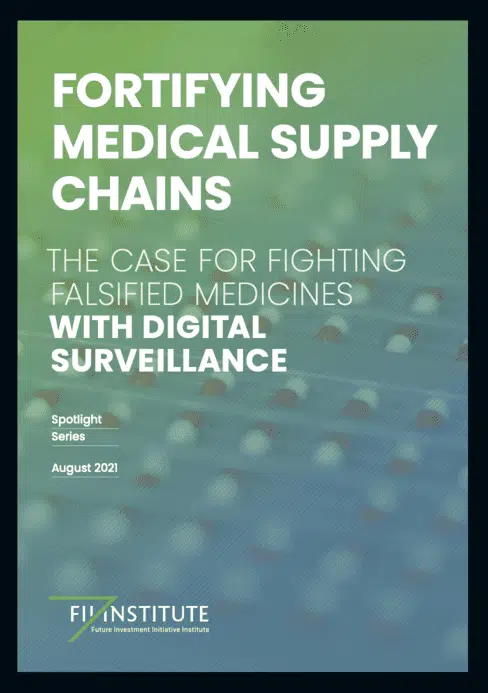
Substandard and falsified medicines are a major threat to public health and responsible for hundreds of thousands of deaths each year – mostly in low- and middle-income countries. Digital, AI-based control systems throughout the supply chain and at end-user level can help to curb the activities of the global counterfeit crime networks.
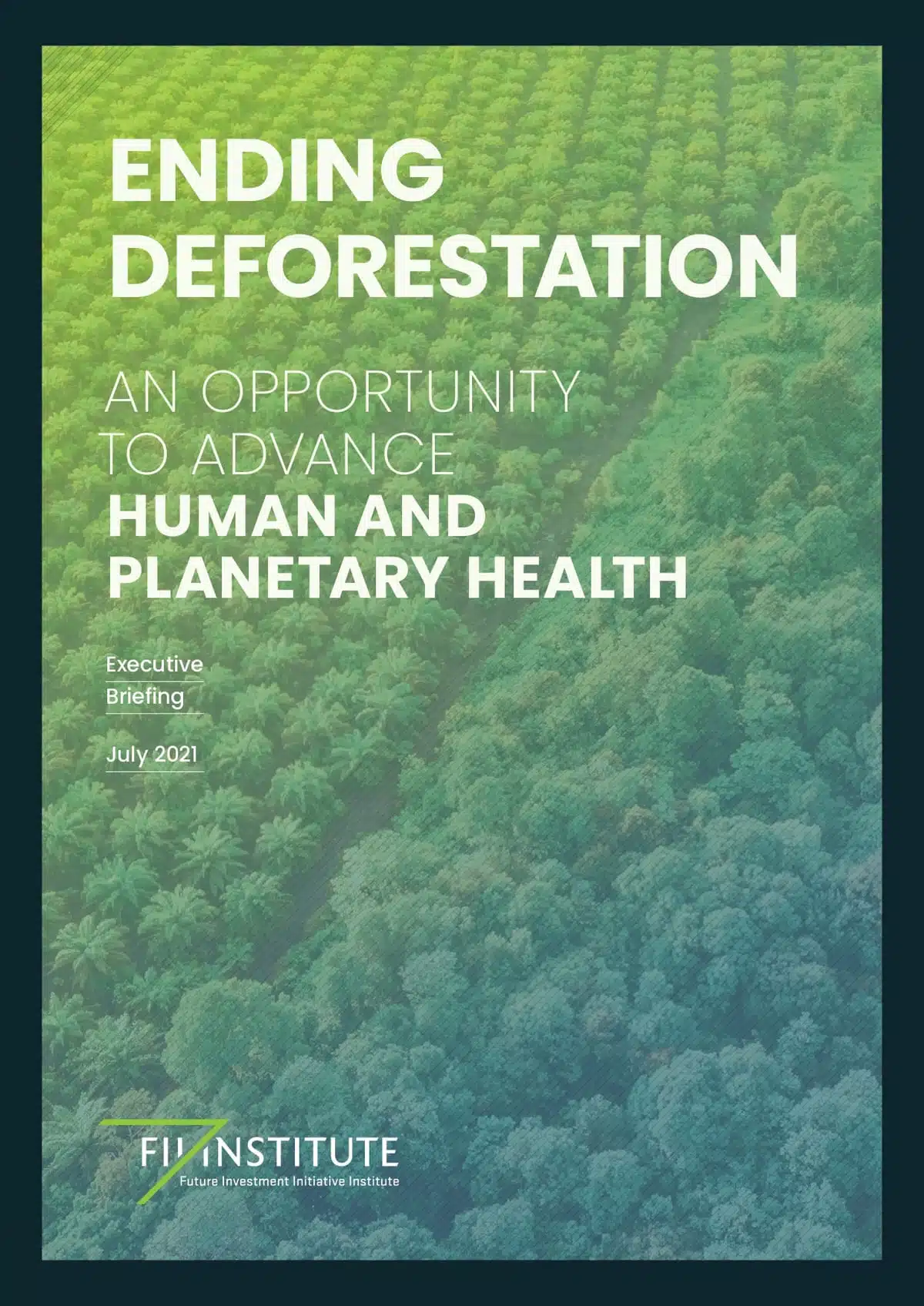
Explore the pressing issue of deforestation, its impact on climate change, biodiversity, and human health, and the global action needed to address it.
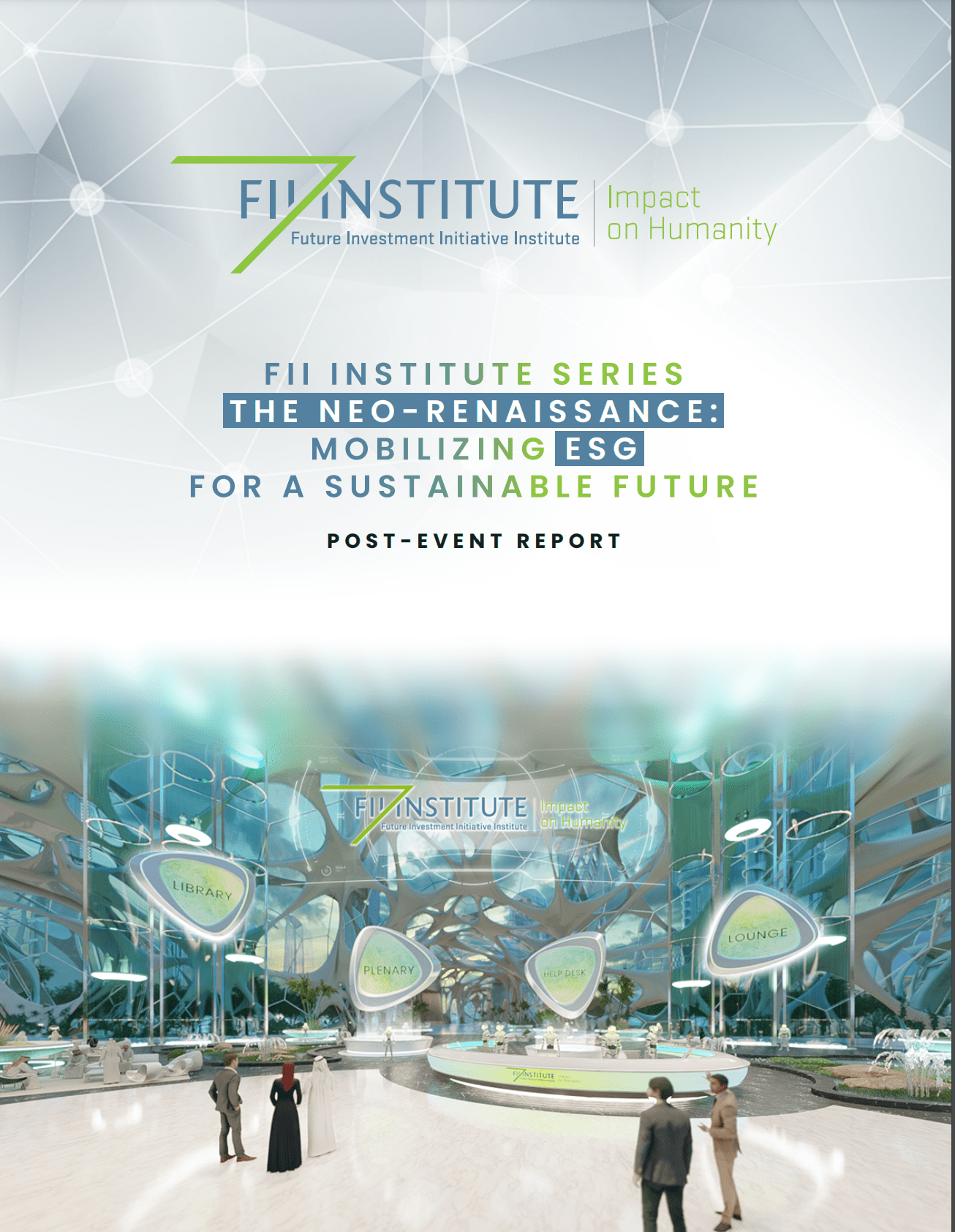
With the beginning of economic recovery in sight, attention is turning to the kind of future we want to live in. we have an unprecedented opportunity to build a sustainable world characterized by just and inclusive growth.
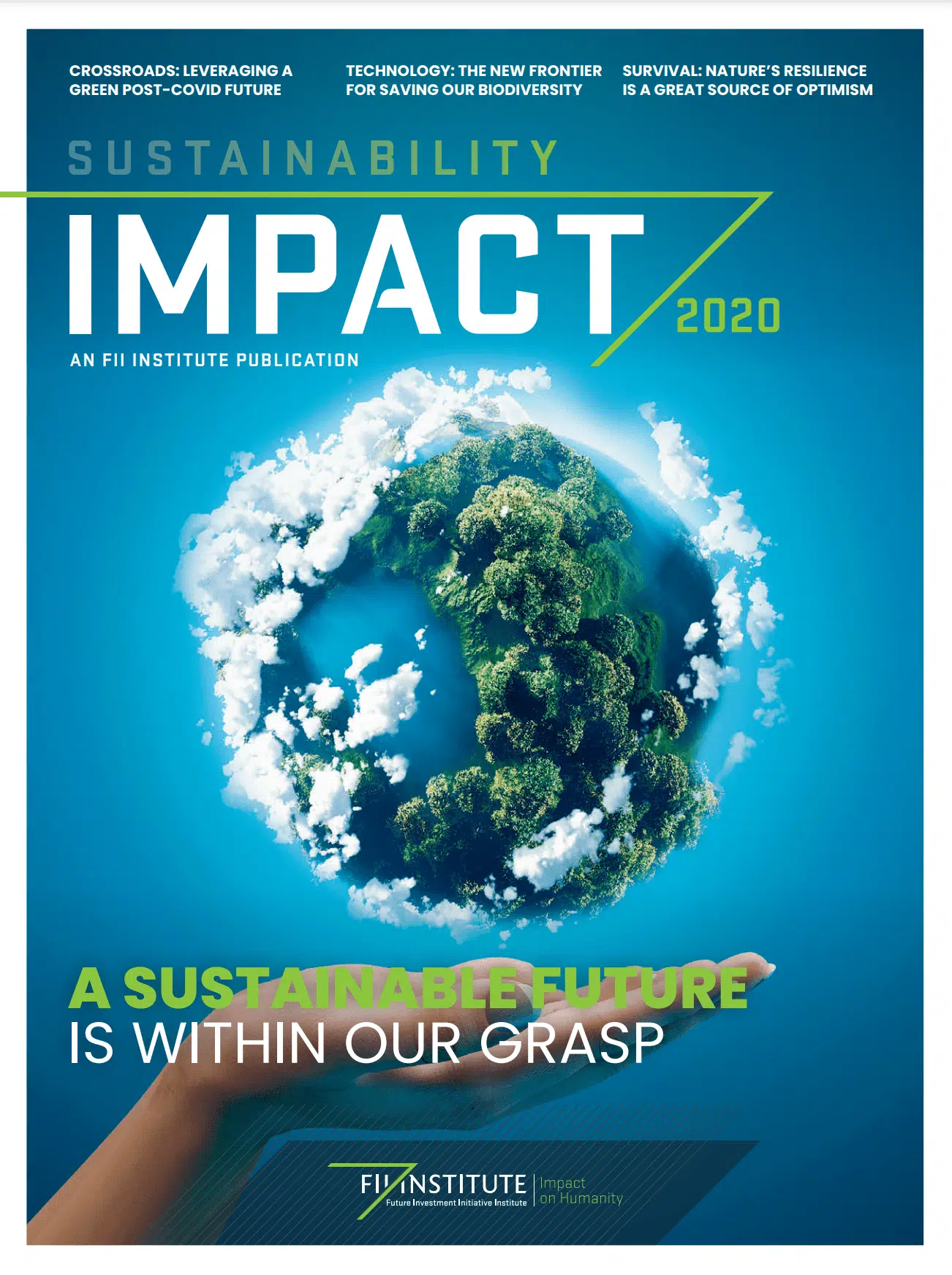
We published this Impact report as the world sits at a crossroads, being pulled in two directions. Covid-19 has devastated economies as an estimated 1.6 billion workers globally face threatened livelihoods. Economic recovery and job creation are now a top priority. At the same time, we face a climate crisis that prevents us from firing up those engines of economic growth that have proved so environmentally damaging in the past.
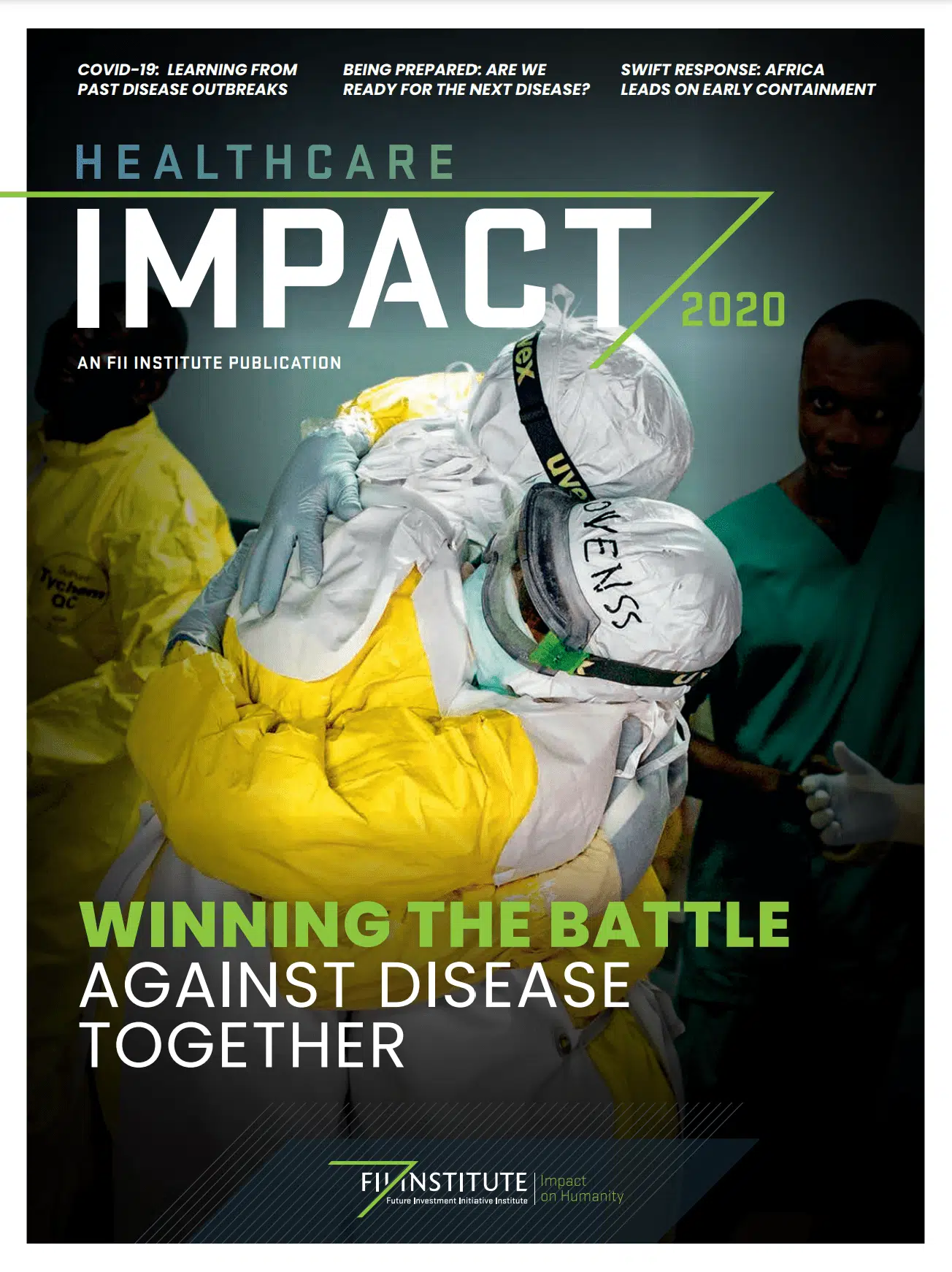
A report series as we face one of the greatest global challenges in recent history. Covid-19 is unprecedented in its scale, impact, and speed. At the same time, we may have a unique opportunity to shift our thinking on key health concerns, drive an exceptional level of global collaboration, and support the development of ground-breaking technologies.
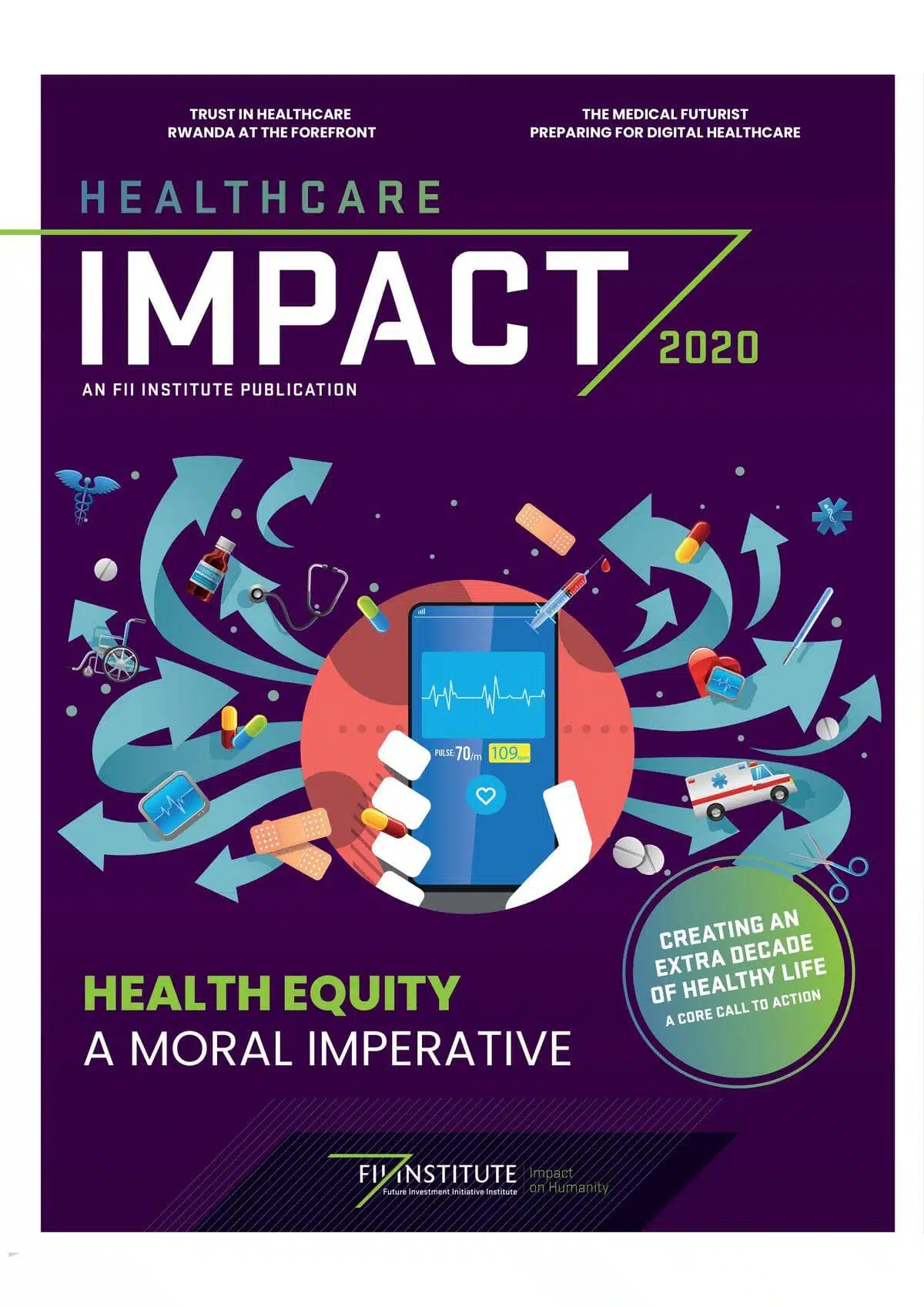
The “Healthcare Impact report 2020” published by the FII Institute emphasizes health equity as a moral imperative. There’s a stark global health inequity exhibited by the vast difference in life expectancy depending on where one is born. Additionally, a double burden arises when healthcare costs exceed a certain percentage of household income, forcing difficult decisions […]
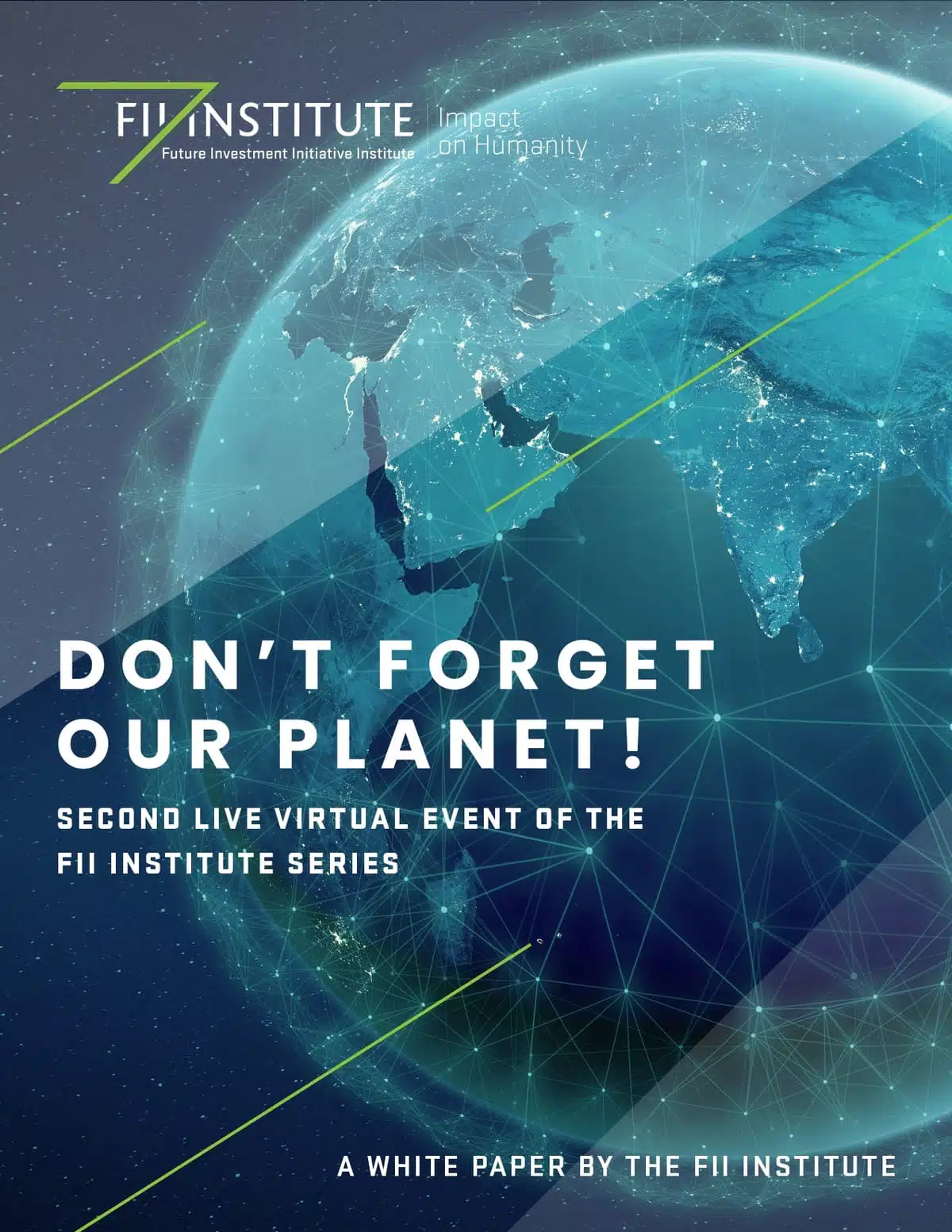
Dive into a green recovery; explore nature-based solutions for a sustainable, resilient future.

The FII Institute's latest impact report emphasizes the importance of inclusivity in the AI revolution, advocating for equitable benefits across all levels of society. It outlines the AI Inclusive initiative, which aims to address societal challenges through collaboration, innovation, and knowledge exchange. The report highlights the potential of AI to drive economic growth and social impact, particularly in emerging markets, while stressing the moral imperative of ensuring that advancements in technology do not leave any community behind.

The FII Institute's Healthy Humanity initiative emphasizes the urgent need for preventive healthcare, innovation, and equity to address global health challenges. By harnessing advanced technologies like AI and quantum computing, the initiative aims to enhance early disease detection, improve access to diagnostics, and promote healthier lifestyles, ultimately benefiting economies and societies.

The AI & Longevity Impact report highlights the transformative role of AI in healthcare, emphasizing its potential to enhance drug discovery, personalize medical treatments, and improve understanding of complex biological systems.

This comprehensive report delves into the transformative impact on tech-driven solutions and sustainable practices such as precision farming, AI analytics, and blockchain on agriculture in the face of climate change and population growth.

In our Impact Report “How AI Can Innovate and Improve ESG & Sustainable Finance Performance," we join forces with subject matter experts from our strategic partners at HSBC and Franklin Templeton and delve deeper into the complexities of sustainable finance and explore innovative solutions to navigate this intricate landscape.

Our AI and the Future Impact Report explores the transition from the once speculative idea of artificial intelligence to its current reality as a transformative force in human-machine interaction, thanks to advanced generative AI models.

Check out our Desalination Impact Report to explore how desalination stands out as a game-changing technology that has proven valuable in making an Impact on Humanity.

Check out the Hydrogen Impact Report to learn how hydrogen is being catalyzed around the world and plans for how it will power our future.

This report examines the potential impact and challenges of cancer vaccines, proposing a debate about the best and most equitable way to put an end to cancer. It includes illustrations by Daniel Hertzberg, and discusses the need for studies with clearly defined plans to treat a defined number of patients, as well as the potential of mobile production facilities for mRNA.

Progress made to reduce hunger in recent decades is now going into reverse. Only a concerted effort on many fronts will restore productivity to degraded soil and produce crops that can survive in the hot, dry conditions that are becoming common.

A digital twin is the virtual version of something that happens or exists in physical space – whether a process, person, or object. The digital twin operates in the same way as their physical relative, and in real time, coded as a virtual model to carry out the same tasks or think in the same way. The concept of the digital twin has now moved out of industry and into everyday life with the rise of the Metaverse, as we start to see digital twins of ourselves likely to live, work, and play within it.

FII Institute publishes its fifth impact report as we enter a golden age for innovation in robotics. In the mid- 20th century, many scientists and writers envisioned the 2020s as full of highly intelligent robots of all shapes and sizes. While this might not have happened quite as imagined, things are now changing fast.

FII INSTITUTE publishes its fourth impact report as the world slowly begins to settle on its “new normal,” the boundaries of which are still being defined. The pandemic has caused tremendous loss and suffering but has also focused attention on the need for concerted action to pre-event and respond to future health and environmental crises.

FII INSTITUTE publishes the fifth of our report series as millions of children remain without access to basic education. The digital divide is growing wider between people and regions that have access to modern information and communications technology and those that don’t. It cuts across class, race and national borders, leaving the ‘haves’ with the highest-quality education available, and the ‘have-nots’ with little or no access to quality education.

We published this Impact report as the world sits at a crossroads, being pulled in two directions. Covid-19 has devastated economies as an estimated 1.6 billion workers globally face threatened livelihoods. Economic recovery and job creation are now a top priority. At the same time, we face a climate crisis that prevents us from firing up those engines of economic growth that have proved so environmentally damaging in the past.

A report series as we face one of the greatest global challenges in recent history. Covid-19 is unprecedented in its scale, impact, and speed. At the same time, we may have a unique opportunity to shift our thinking on key health concerns, drive an exceptional level of global collaboration, and support the development of ground-breaking technologies.

The “Healthcare Impact report 2020” published by the FII Institute emphasizes health equity as a moral imperative. There’s a stark global health inequity exhibited by the vast difference in life expectancy depending on where one is born. Additionally, a double burden arises when healthcare costs exceed a certain percentage of household income, forcing difficult decisions […]

AI Enabled Carbon Markets: As the world grapples with climate change, the urgency for innovative solutions to reduce carbon emissions has never been greater. Our latest report delves into the transformative potential of AI in carbon markets, revealing how it can enhance transparency, combat greenwashing, and optimize pricing strategies.

This priority champion publication in collaboration with Roshn Group and Bain & Company delves into the transformative potential of smart living and connected communities, highlighting the integration of advanced technologies to enhance comfort, efficiency, and sustainability. It addresses current industry challenges and behavioral trends, offering strategic insights to accelerate the adoption of innovative solutions. By exploring case studies and frameworks, this work sheds light on the future of urban living, emphasizing the importance of human-centric design and community engagement in creating sustainable environments.

The priority champion report in partnership with WAVE, Prince Albert II Of Monaco Foundation and Red Sea Global outlines the critical role of oceans in sustainable economic growth, emphasizing their potential to generate renewable energy, ensure food security, and create millions of jobs. It highlights the urgent need to address anthropogenic stressors like overfishing and […]

Industry 5.0 marks a shift beyond technological adoption, focusing on individual empowerment, human-centricity, personalization, decentralization, resilience, sustainability and transparency. The priority champion report in partnership with Franklin Templeton and Oliver Wyman discusses the transition to Industry 5.0, emphasizing individual empowerment, human-centricity, and sustainability, while highlighting the evolution of investment management through technological advancements and decentralized […]

The report in partnership with Kearney highlights the critical role of Public-Private Partnerships (PPPs) in addressing urban challenges such as resource constraints, social inequality, and climate change.

Explore our latest whitepaper, "Hong Kong’s Dual Focus on Sustainable Investment and Green Innovation," which highlights the city's robust efforts in enhancing its green finance ecosystem.

Discover the groundbreaking insights from our latest report, "Revolutionizing Water Safety," in partnership with Hydroquo+. This comprehensive analysis highlights the urgent need for innovative solutions to combat the global water crisis, focusing on the transformative potential of real-time monitoring technologies like the Autonomous Microbiological Alert Sensor (AMAS). Join us in exploring how these advancements can enhance water safety, protect public health, and ensure sustainable access to clean water for all.

The FII Institute proudly presents its latest report in partnership with our strategic partner, THIQAH which delves into the critical intersection of digital transformation and environmental sustainability. This publication highlights the urgent need for businesses to integrate Environmental, Social, and Governance (ESG) principles into their strategies to combat the growing carbon footprint and e-waste crisis. By showcasing innovative solutions and promoting green technologies, the report aims to inspire collective action towards a sustainable future for humanity. Join us in exploring how we can harness digital advancements to create a brighter, greener world!

Immerse yourself and discover how this SP Perspectives' White paper report in collaboration with Minerva Foods can benefit you by gaining valuable insights into sustainable livestock production, carbon sequestration, and the potential of nature-based carbon credit markets.

As we grapple with climate change and dwindling resources, can artificial intelligence truly be the game-changer we need for sustainability? The Future Investment Initiative (FII) Institute, in collaboration with Arthur D. Little, presents a groundbreaking white paper exploring the pivotal role of Artificial Intelligence (AI) in driving sustainability.

Have you ever wondered how geopolitics, demographics, technology, and climate are shaping the global economic landscape? Our latest whitepaper, "Mapping the Future: Where to Invest for True Resilience," delves into the dynamic forces of geopolitics, demographics, technology, and climate that are reshaping the global economic landscape.

We are thrilled to share the latest groundbreaking whitepaper report in collaboration with Gavi, Rwanda, the UPS Foundation and Zipline, that dives deep into the future of vaccination distribution, highlighting the pivotal role of drone technology in revolutionizing healthcare delivery worldwide.

Join us on a journey to explore our latest launch of white paper report "CLIMATE RESILIENCE IN EMERGING MARKETS: THE UNAVOIDABLE OPPORTUNITY FOR GROWTH INVESTMENT" that delves into how climate change is reshaping the investment landscape and driving growth in technologies that build resilience and adaptation.

Learn more about the transformative power of entrepreneurship, investment, and cutting-edge technologies in securing Europe's technological future.

State Street’s experts Mostapha Tahiri and Brian Franz present a comprehensive examination of the transformative possibilities that AI has when it comes to data-driven institutional investment decisions around the globe.

Explore our publication that delves into the critical learnings from the COVID-19 pandemic and its unprecedented impact on our world. This compelling piece sheds insights on the undeniable connection between our health and the global dynamics that govern it, emphasizing the vital need for comprehensive health systems capable of preventing disease outbreaks from escalating into global crises.

An unprecedented series of recent supply chain disruptions have highlighted the need for alternatives to complex global systems. Fast and versatile, micro-factories the size of shipping containers can make supply chains more resilient and value creation more decentralized – with significant social and environmental benefits.

WHY BIODIVERSITY IS ESSENTIAL TO SUPPLY CHAINS ECOSYSTEMS AND SPECIES IN JEOPARDY Deforestation is the greatest threat to biodiversity worldwide and the rate of species extinction is accelerating. But changes to our diet can help to save the planet.

Dive into a green recovery; explore nature-based solutions for a sustainable, resilient future.

Discover the future of sanitation and its impact on global health in our comprehensive Spotlight Series Report, “Toilets for the Future.” This enlightening resource delves deep into the past, present, and promising future of sanitation systems worldwide, emphasizing reducing the global threat of infectious diseases. The report explores critical topics such as: The dire current […]

The FII Institute explores how technology can bridge linguistic barriers & create a more interconnected world through machine translation. Join us in shaping a more inclusive & compassionate global community

Today’s throwaway clothing or “fast fashion” has negative environmental impacts at every stage of its life cycle. Current systems are not sustainable. We need to change what our clothes are made from, where and how they are produced, and how we dispose of them.

IN SEPTEMBER 2021, THE FII INSTITUTE launched its Global Infectious Disease Index (GIDI), providing valuable information to help health professionals and the general public assess the readiness and vulnerability of global healthcare systems in tackling endemic and emerging epidemic diseases. Since its launch, GIDI has acquired a reputation as a scientifically rigorous and credible resource, unique in its field, that serves as a transparent metric and a unified source of truth for anyone with an interest in infectious diseases.

HOW TO PREDICT AND PREVENT NATURAL DISASTERS There is a critical need for better understanding of the behavior of wildfires and the causes of floods – to prevent, if not the disaster itself, at least the loss of lives. To get there, we need a combination of data and science-based monitoring systems with indigenous knowledge, as well as stronger regional and international cooperation.

Race is on to find solutions to slow down global warming! TO SLOW DOWN GLOBAL WARMING WE NEED TO REMOVE CARBON FROM THE AIR Numerous methods have been identified, both natural and technological, for extracting carbon dioxide from the atmosphere. Experts are urgently investigating their viability, relative costs and potential trade-offs, synergies and downsides.

Can machines learn to walk and act in the real world in a similar way to how children do it? Starting from scratch, watching, copying, trying, failing, retrying? Learning to move is not as easy as learning to think – but the robots are getting closer.

The millions of inhabitants of refugee camps are often seen as people with zero options. And especially the young generation has next to no chances to get higher education and decent work. But entrepreneurship education can change that. Not for profit in the first place – but for a chance

With 5G connectivity the air around us becomes magic – and our individual digital sphere will surround us continuously. And 5G even has the potential to be more than a data playground for the global elites. With a little help from space technology it can bridge the digital divide and create a level online playing field for humanity

Pneumonia is, in most cases, a curable or preventable disease. But it remains the leading infectious cause of death globally among children under the age of five, disproportionately affecting the most deprived and marginalized. An effective and affordable vaccine is the best way to tackle this global challenge.

As previously witnessed with the major outbreaks of West Africa Ebola virus in 2014, Middle East Respiratory Syndrome (MERS) in 2012, and Zika in 2016, emerging infectious diseases (EIDs) have too often been neglected or perceived as distant problems. Despite repeated warnings of the increasing threat of epidemics and pandemics, both public and private sector actors have repeatedly failed to prioritize the forward-looking investments, systems, and structures that are necessary to ensure that vaccines, therapeutics, diagnostics, and other medical countermeasures and lifesaving tools are ready to deploy right at the outset of an outbreak to curb the spread of disease before it becomes a global health emergency.

ABOUT TWO-THIRDS OF THE GLOBAL extent of tropical coral reefs has al- ready been lost – 14 percent of that in the last decade alone, largely as a result of cli- mate change. Even if we reach the most ambitious goal of the Paris Agreement, 75–90 percent of those remaining are projected to disappear by 2035. Securing a future for coral reefs requires an all-hands-on-deck effort. We must mobilize scientists, technologists, innovators, policymakers and philanthropists. We need to develop and deploy at scale the next generation technologies and science that will enable us to conserve and restore coral reefs.

Climate change is a growing factor in the emergence of infectious disease. We need decisive action now to limit global warming, more investment in research to improve our understanding, and “One Health” policies that consider together the well-being of people, animals and ecosystems.

An unprecedented series of recent supply chain disruptions has highlighted the need for alternatives to complex global systems. Fast and versatile, microfactories the size of shipping containers can make supply chains more resilient and value creation more decentralized – with significant social and environmental benefits.

In the Green Revolution of the 1960s and ’70s, high-yield crops and agro-tech dramatically increased land productivity and food output. This time it’s different: To feed a growing population and to cope with harsh environmental constraints, agriculture must increase resource productivity and sustainability. This requires a New Green Revolution.

Substandard and falsified medicines are a major threat to public health and responsible for hundreds of thousands of deaths each year – mostly in low- and middle-income countries. Digital, AI-based control systems throughout the supply chain and at end-user level can help to curb the activities of the global counterfeit crime networks.

The FII PRIORITY Miami Summit 2025 marked a transformative moment in global economic collaboration, featuring key discussions on artificial intelligence, sustainable investment, and geopolitical shifts.

FII8 Post Event Report: Explore key insights, highlights, and takeaways from FII8 in our post-event report—featuring influential speakers, groundbreaking discussions, and the future of global investment.

Under the theme, "Invest in Dignity," FII PRIORITY Summit in Rio de Janeiro delved into the enduring global megatrends that continue to shape our world, emphasizing the importance of staying ahead of technological disruptions and investing in sustainable solutions. Revisit those critical conversations and explore the key takeaways in our FII PRIORITY Summit in Rio de Janeiro Post Event Report.

Explore the key outcomes and takeaways of the FII PRIORITY Miami 2024 summit, which brought together over 1200 delegates and over 120 speakers to have an Impact on Humanity.

Explore the key outcomes and takeaways of the FII PRIORITY Hong Kong 2023 summit, which brought together over 1000 delegates and over 100 speakers to address ‘Megatrends Shaping Humanity.’

Check out the FII7 Summary for briefs and key insights from the top sessions that contributed to the groundbreaking dialogues that redefined "The New Compass."

With more than 6,000 attendees from more than 85 countries, the FII7 Executive Report sheds light on common global challenges, emphasizing the need for innovative solutions in areas such as sustainable energy, AI integration, and equitable economic growth. FII7 Post Conference report also highlights the findings from the FII PRIORITY Compass, a global survey of over 50,000 participants across 23 countries, aimed at identifying humanity's top priorities. The report serves as a guide for business and political leaders to address these priorities effectively, fostering meaningful conversations and collaborative actions for a better future.

The Global PRIORITY Summit returned in 2023 in Miami, attracting an impressive lineup of 86 world-renowned speakers and over 700 delegates to discuss pressing global issues, and the FII Institute plans to host the summit in Miami again in 22-23 February 2024.

The FII Institute proudly presents its Post Conference Report on FII6, Investing in Humanity: Enabling a New Global Order. This year's conference brought together leading experts from the fields of economics, finance, and international development to explore the ways in which investments can be directed toward creating a more equitable and sustainable global order.

A Summit to Define Humanity’s Highest Priority Enlightenment has often followed humanity’s darkest hours. In a time of extraordinary social and economic transformations and shifting geopolitical alliances. The Future Investment Initiative (FII) Institute, in line with its mission to have a positive impact on humanity, has hosted a capstone summit to identify and explore the […]

WELCOME REMARKS FROM THE CEO OF FII INSTITUTE If the planet has huge problems – its temperature has warmed up to ice-cap-melting levels and its accelerating loss of animal and plant species has been described as a sixth mass extinction – it also potentially has significant resources to devote to these problems. To stave off […]

WHAT IS HUMANITY? Humanity bears two distinct yet complementary meanings: the adjectives “human” and “humane” reveal the complexity of a notion that is both scientific and spiritThe Future Investment Initiative has come a long way in its first years, and this 5th anniversary showed, that it will continue on its dynamic and impactful journey, The success of FII to date is testament to the eagerness of the private and public sectors to play an active role in addressing the issues we face as a global commu-nity. By leveraging the enormous economic opportunities that will lie ahead in the post-Covid era, we will also catalyze the changes needed to achieve an equitable, prosperous future for all. HE Yasir Al-Rumayyan, Chairman of the FII Institute Board of Trustees.

With the beginning of economic recovery in sight, attention is turning to the kind of future we want to live in. we have an unprecedented opportunity to build a sustainable world characterized by just and inclusive growth.

The FII Institute's Annual Report 2024 highlights its unwavering commitment to creating a sustainable future through impactful initiatives.

FII Institute is delighted to unveil the 2023 Annual Report to our community. We invite you to explore the report to gain insights into our initiatives, impact, and future goals.

Explore our unique impact model, learn more about our calls to action, and discover our achievements for 2022.

Explore the FII Institute's 2021 accomplishments and their commitment to global impact solutions.

Resources are scarce, and the challenge is huge: To fight climate change as efficiently as possible, we should globally invest in the mitigation technologies that can reduce greenhouse gases most efficiently. But what are they?

Cyber-Addiction and Cyber-Bullying pose serious risks for the health and wellbeing of the individual – especially for children and adolescents. How can society reduce these risks and increase digital wellbeing?

Home offices are far more sustainable than office-offices, we were told during the pandemic. But how much resources does working from home really save? And how sustainable will our post-COVID office-mix be?

With skyrocketing food prices, the livelihood of billions of people is at risk. Plant-based alternatives to meat and milk can increase food security by decreasing livestock feed. The time is ripe for massive upscaling of meat and milk alternatives – and an equally massive down-scaling of prices.

The Covid-19 pandemics offered a great opportunity for the Global community to practice international solidarity. But the opportunity was missed, the multi-national institutions have failed to ensure equitable vaccine access. The prevailing “My-interest-first” policies have reduced the overall efficacy of the vaccination campaign and damaged the trust in global solidarity. International health policy needs a shift to humanity.

Just as the world began glimpsing the light at the end of the tunnel of an arduous battle against the COVID-19 pandemic - bolstered by the development of several highly efficient vaccines - a new variant of “high concern” as designated by WHO has emerged. And, while the debate continues to rage about the origins of SARS-CoV-2 and how much of it, if any, was human influenced, there should be no doubt that humans shoulder the lion’s share of the blame for the emergence of the Omicron variant.

Discover how Positive Ventures, led by Founding Partner Fabio Kestenbaum, is revolutionizing venture capital through impact investing.

The oped piece sheds light on the urgent need for investment in quantum technology and workforce development, as well as the importance of collaboration between academia, government, and industry to harness quantum computing's capabilities effectively.

We must address the urgent reality of climate change and its dire consequences in 2050. If humanity does not achieve carbon neutrality, one-third of humanity will be living in too hot and inundated areas by then. Therefore, reaching carbon neutrality in 2050 is a goal and a necessity.

Find out critical insights from the recent op-ed launched in partnership with Plínio Ribeiro, highlighting the vital role of forests in addressing the biodiversity and climate crisis.

In his op-ed, Professor Jeffrey Sachs explores the transformative power of technology through the ages, culminating in the current era of digital globalization driven by artificial intelligence. Sachs outlines the profound societal shifts brought about by past technological breakthroughs and emphasizes the urgent need for economic and political institutions to adapt to the rapid advancements in AI.

In her op-ed, Courtney Powell emphasizes the urgency of addressing climate challenges through innovation and collaboration. She highlights the critical role of venture capitalists in funding startups that can develop technologies to mitigate climate impacts, particularly in emerging markets.

It explores the transformative impact of Artificial Intelligence (AI) in healthcare. The publication delves into the opportunities AI presents for improving diagnostics, personalizing treatments, and enhancing operational efficiency, while also addressing challenges such as workforce shortages, rising costs, and ethical concerns.

FII Institute launched the second series of publication exploring the profound implications of Artificial Intelligence (AI) in collaboration with Columbia Climate School Center for Sustainable Development on macroeconomics, healthcare, and workforce development.

Explore how emerging technologies like AI are reshaping the way we learn, teach, and work, emphasizing the importance of preparing for the future job market. It aims to bridge the digital gap between regions and ensure that all learners and educators have access to the latest advancements in AI.